
Session Speakers
Structural Biology: From Complex to Membrane-less Organelle
Molecular mechanisms of DNA repair in bacteria
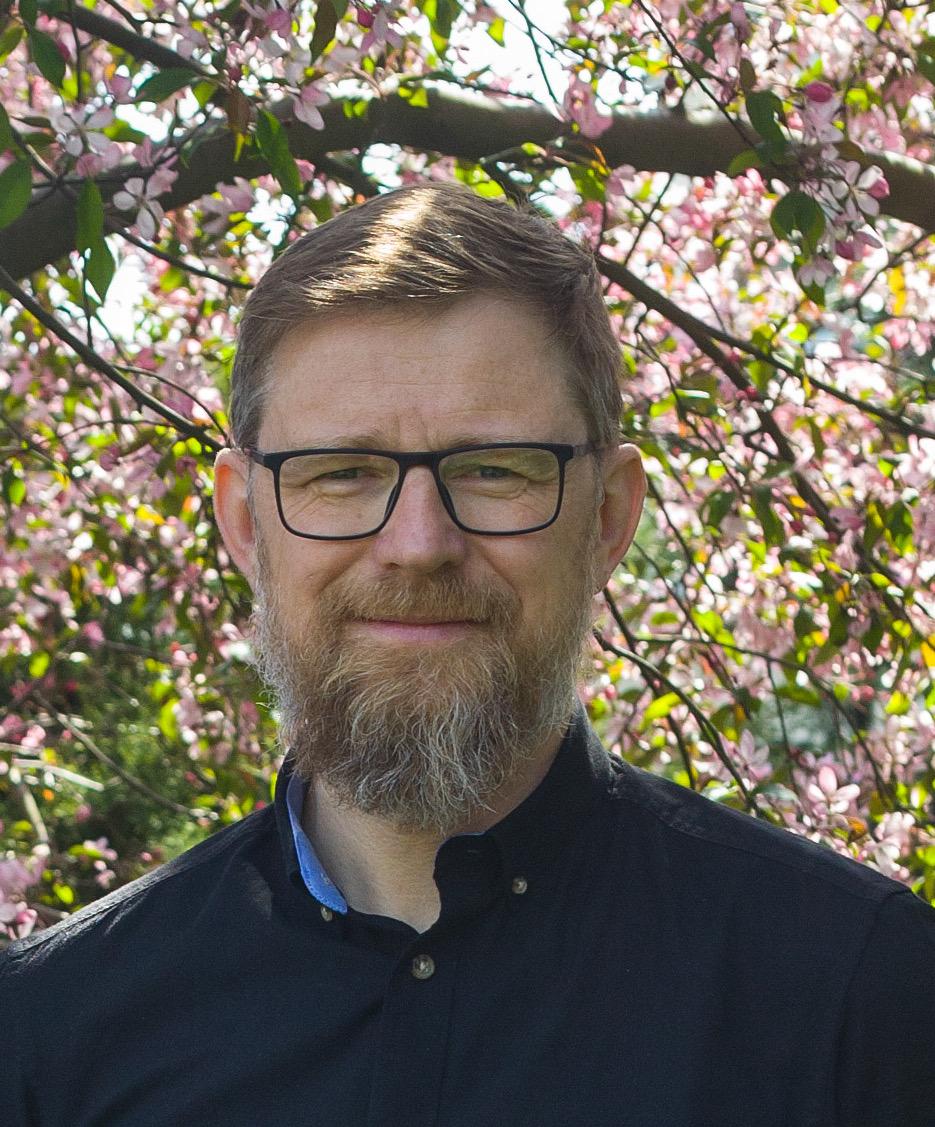
Marcin Nowotny
International Institute of Molecular and Cell Biology, Warsaw, Poland
Marcin Nowotny heads the Laboratory of Protein Structure at the International Institute of Molecular and Cell Biology (IIMCB) in Warsaw. He graduated from the Faculty of Chemistry at the University of Warsaw in 1997. In 2002 he received a Ph.D. degree in Biochemistry from the Nencki Institute of Experimental Biology in the group of prof. Jacek Kuźnicki. Between 2003 and 2008 he was a postdoctoral fellow at the National Institutes of Health in Bethesda, Maryland in the group of Dr. Wei Yang. Since 2008, Dr. Nowotny has been leading a group at the IIMCB. His research uses structural biology and protein biochemistry to study the mechanism of enzymes involved in nucleic acid processing. Recent major achievements of his group include elucidation of the mechanism of unique bacterial template- and priming-independent DNA polymerases with anti-phage activity, elucidation of the molecular architecture of RecFOR - a key complex in bacterial homologous recombination, and determination of structure and mechanism of TnsB transposase from one of the most common bacterial transposons Tn7. Dr. Nowotny's group is also involved in several collaborations with pharmaceutical companies. For example, in collaboration with Ionis Pharmaceuticals, his group described how proteins bind phosphorothioate DNA with enhanced affinity. Marcin Nowotny is a member of EMBO and the Academia Europaea. In 2022, he received the Prize of the Foundation for Polish Science - the highest award of its kind in Poland.
Decoding molecular plasticity in the dark proetome
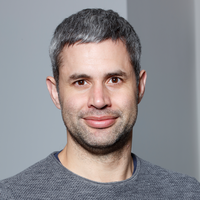
Edward A. Lemke
Institue of Molecular Physiology, Johannes Gutenberg University Mainz, Germany
Edward Lemke started his professorship for synthetic biophysics of protein disorder at the faculty of biology at Johannes Gutenberg University in Mainz in 2018 and was appointed as adjunct director at the Institute for Molecular Biology (IMB). Lemke is one of the leading experts in the field of intrinsically disordered protein research, as which he also led an Emmy-Noether-group at the European Molecular Biology Laboratory (EMBL) in Heidelberg and won an ERC Consolidator Grant in 2015 as well as an ERC Advanced Grant in 2020. His team makes important contributions to the field by combining chemical, synthetic, biotechnological and cell biological expertise with high-resolution and single-molecule fluorescence measurements of protein plasticity. Lemke is the spokesperson of the DFG priority program for “Molecular mechanisms of phase separation” (SPP2191), the coordinated research Centre SFB1551 on “Polymer concepts in the Cell”. His research paves the way for interdisciplinary life science research in Mainz with his work on the “dark” (i.e. disordered) proteome and its impact on ageing.
Master of cell division: Structure and assembly of the kinetochore
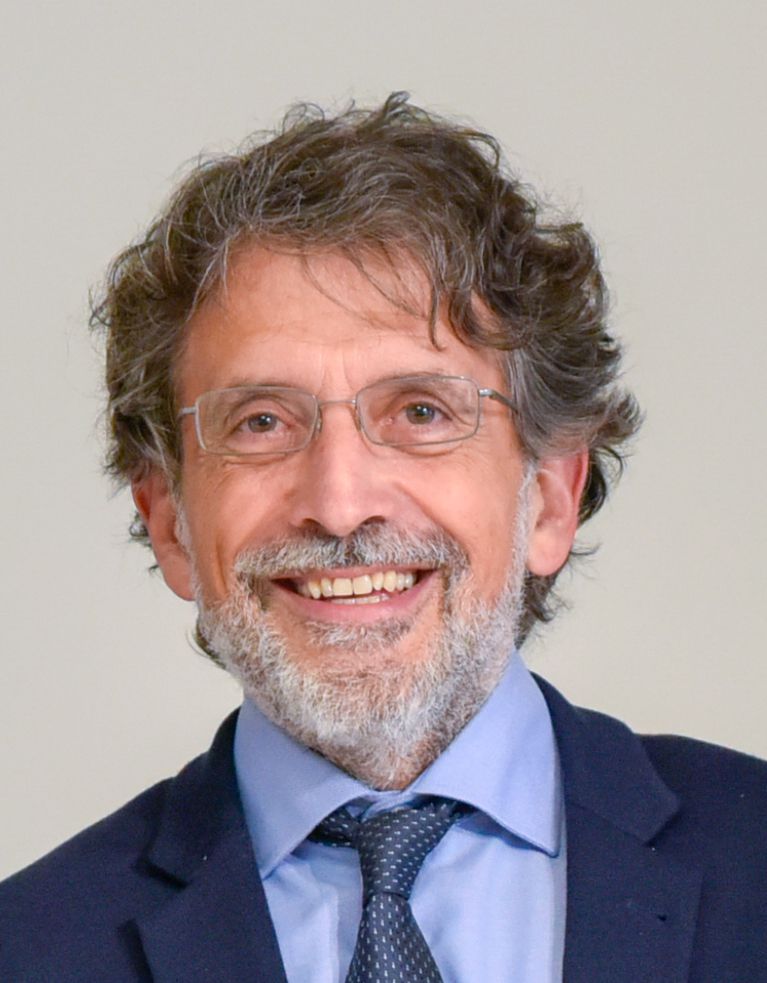
Andrea Musacchio
Max Planck Institue of Molecular Biology Dortmund, Germany
Andrea Musacchio (born 1964) graduated in Biology from the Tor Vergata University of Rome in 1990, working with Prof. Giovanni Cesareni on the development of phage display libraries. Musacchio later moved to the European Molecular Biology Laboratory in Heidelberg to carry out his PhD work in the area of biochemistry and structural biology, supervised by the late Dr. Matti Saraste. After receiving his PhD title from the University of Heidelberg, Musacchio moved to the Harvard Medical School to work as a postdoctoral fellow in the laboratory of Prof. Stephen C. Harrison, supported by Human Frontier Science Program and the American Cancer Society postdoctoral fellowships. In Boston, Musacchio worked on the structural characterization by X-ray crystallography and electron microscopy of proteins implicated in trafficking of membranes and proteins in cells, including Clathrin and PI3 kinase. In 1999, Musacchio established his first laboratory at the European Institute of Oncology in Milan, where he began investigating the molecular mechanisms of cell division using a combination of structural, biochemical, and cell biological methods. Cell division remains Musacchio’s main interest to these days. In 2011, Musacchio moved to Dortmund to direct the Department of Mechanistic Cell Biology at the Max Planck Institute of Molecular Physiology. In 2012, he received an honorary professorship at the University of Duisburg-Essen. Musacchio authored approximately 160 research papers. He was elected EMBO member in 2009, was awarded three European Research Council grants (2009, 2015, 2021), received the DFG’s Leibniz Prize in 2020, and is an elected member of the German Academy of Science Leopoldina (2023).
Cell Stress, Cell Senescence and Cell Death Desicions
Senescence and targeted senolysis
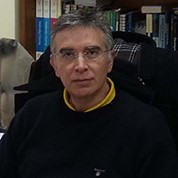
Vassilis Gorgoulis
Laboratory of Histology-Embryology, Molecular Carcinogenesis Group, Medical School, National and Kapodistrian University of Athens, Greece
Dr. Gorgoulis is currently Professor and Director of the Department of Histology–Embryology, Medical School, National Kapodistrian University of Athens, Greece. He is also elected Chair and Professor of Clinical and Molecular Pathology, Medical School, University of Dundee; Adjunct Professor at the Biomedical Research Foundation, Academy of Athens; Honorary Professor, Institute of Cancer Sciences, University of Manchester, UK; Visiting Professor, Faculty of Health and Medical Sciences, University of Surrey, UK; and elected European Molecular Biology Organization (EMBO) member.Main research interests include: cancer biology; senescence and aging; DNA damage response and repair/genomic instability; cell cycle deregulation; development of machine learning algorithms to predict biological/drug responses. Prof Gorgoulis has 346 publications and >44,000 citations. He is among the Highly Cited Greek Scientists internationally, with h-index: 83. He counts >150 communications in international conferences and seminars, and contributed 14 chapters in international text-books. He received >30 awards/distinctions and is a reviewer in >60 peer-reviewed scientific journals (eg Nature, Cell, Mol Cell, Cancer Cell, EMBO J) and 30 National and International Funding programs (eg ERC reviewer and panel member; EMBO Young Investigators; Cancer Research UK).
Dying by ferroptosis: Cellular and intercellular aspects
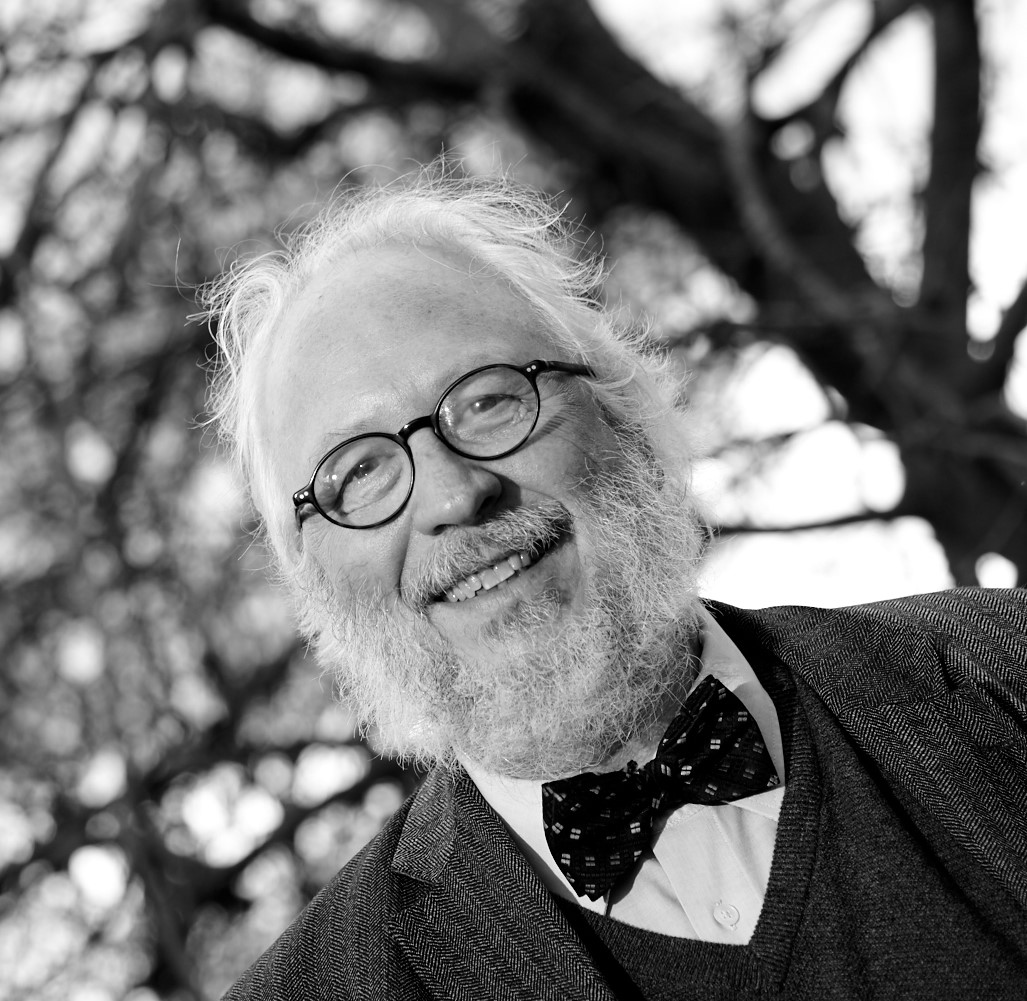
Peter Vandenabeele
VIB-UGent Center for Medical Biotechnology Ghent, Belgium
Peter Vandenabeele performed his PhD at the Ghent University in the Laboratory of Molecular Biology of Prof. Walter Fiers (1990). In 1996, he became PI at the Flanders Institute for Biotechnology (VIB). Vandenabeele’s research group is part of the VIB Center for Inflammation Research (IRC) at the Ghent University (www.irc.ugent.be). His research activities focus on molecular mechanisms of cell death modalities (a.o. apoptosis, necroptosis, ferroptosis). These phenomena are studied in an integrated way at the level of biochemistry, cell biology and in disease models of inflammation and cancer. He has been promotor of 44 successfully defended PhD theses (1998-2023). Peter Vandenabeele has been founder and director of the Bachelor and Master program in Biochemistry and Biotechnology in the Faculty of Sciences at the Ghent University (2004-2012). He is Member of the Board of Governors of the Ghent University (2012-2014, 2018-2022, 2022-2026) and Member of the Royal Flemish Academy of Belgium (since 2012) (KVAB). He received several scientific awards such as FWO 5 yearly Excellence Award 2015, CDD Jürg Tschopp Excellence Award in Cell Death and Inflammation Research 2016, ICDS Excellence Award in Cell Death Research 2020, “highly cited researcher award” Cross-Field in 2018, 2019, 2020, 2021, 2022; Molecular Biology and Genetics in 2023 (Clarivate Analytics); Best Scientist Award 2023 (Research.com). He has been president of the European Cell Death Organization (ECDO) (2015-2016) (www.ecdo.eu).
Enhancing immune-medated killing of senescent cells
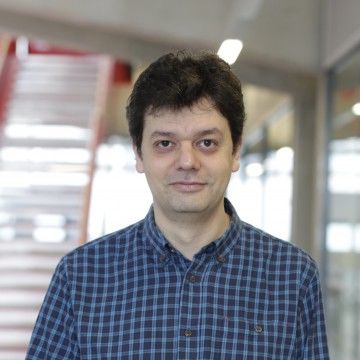
Jesus Gil
Imperial College London, UK
Jesús Gil was born in Zaragoza, Spain. He obtained his PhD studying how the dsRNAdependent protein kinase induces apoptosis and activates NF-kB, in 2000 at the Universidad Autónoma in Madrid. From 2000 to 2003 he worked with David Beach at the Wolfson Institute for Biomedical Research, University College London, where he screened for genes bypassing senescence, identifying CBX7. He investigated how this gene regulates the INK4/ARF locus and its implications in cancer in stays with Gordon Peters at the CRUK London Research Institute and Scott Lowe at Cold Spring Harbor. Since Nov. 2005 he has led the Senescence Group at the MRC Laboratory of Medical Sciences (MRC LMS) where his main interest is to understand how senescence is regulated and implemented and how it can be targeted therapeutically. To this end, they use different mammalian systems of senescence and a variety of strategies to perform functional screens. The ultimate end is to understand the molecular mechanisms controlling senescence and exploit them for therapeutic benefit. In 2008, Jesús was named an EMBO Young Investigator. He was tenured in 2010 and in 2011 obtained the EACR Cancer Researcher Award ’highly commended’. Since 2013 he has been a Professor at Imperial College where he heads the Department of Molecular Sciences at the Institute of Clinical Sciences. He is a named inventor on several patents on senolytics and has collaborated with different companies on the development of senotherapies.
Cancer Biochemistry
Metabolic rewiring driving metastasis formation
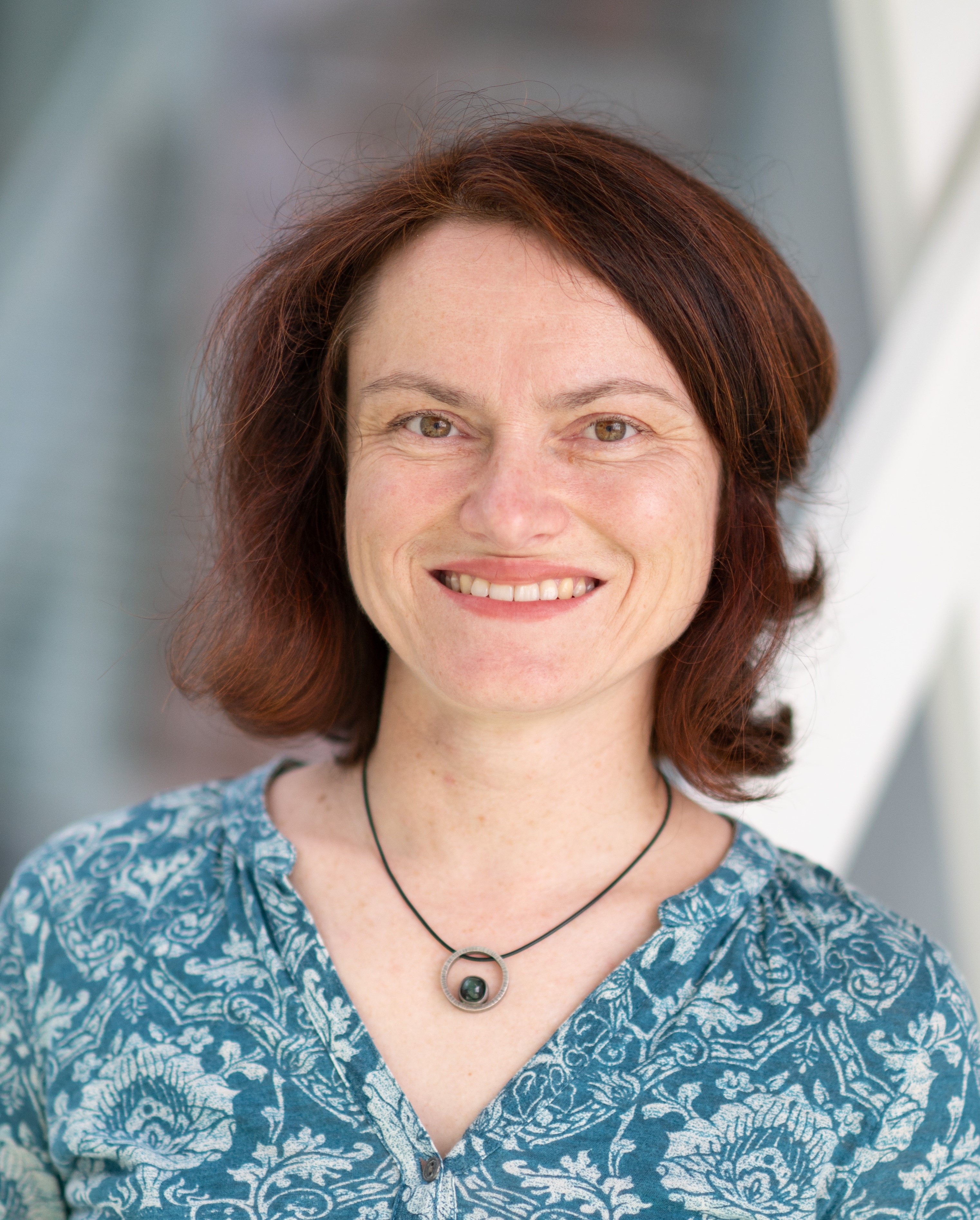
Sarah-Maria Fendt
KU Leuven Center for Cancer Biology, Leuven, Belgium
Sarah-Maria Fendt is a Principal Investigator at the VIB Center for Cancer Biology and Professor of Oncology at KU Leuven, Belgium. Sarah has a Master of Science degree in Biochemistry from TU Munich and a PhD in Molecular Systems Biology from ETH Zurich. Sarah worked as postdoctoral fellow at the Massachusetts Institute of Technology (MIT), before starting her independent research program in 2013. Sarah’s lab is specifically interested in understanding the role of metabolism in driving metastasis formation and in defining the principles of metabolic regulation that enable cancer cells to communicate with and respond to their environment. Her team applies the powerful technologies of single cell and spatial multi-omics analysis in pre-clinical mouse models and patient samples to study this interplay between cancer cells and their metabolic environment during metastasis formation. The research of Sarah’s lab has been published in high impact journals including Nature and has been funded by multiple (inter)national grants and industry, which include ERC consolidator and proof of concept grants. In 2020 Sarah has been awarded with the highly prestigious EMBO Gold Medal and was elected in 2022 as EMBO member. In 2023 Sarah received the Francqui-Collen prize (most important science prize in Belgium) and the 51st Léopold Griffuel award as well as the 2024 AACR Outstanding Achievement in Basic Cancer Research award.
A KEAP1-dependent trade-off between migration and ferroptosis limits melanoma hematogenous dissemination
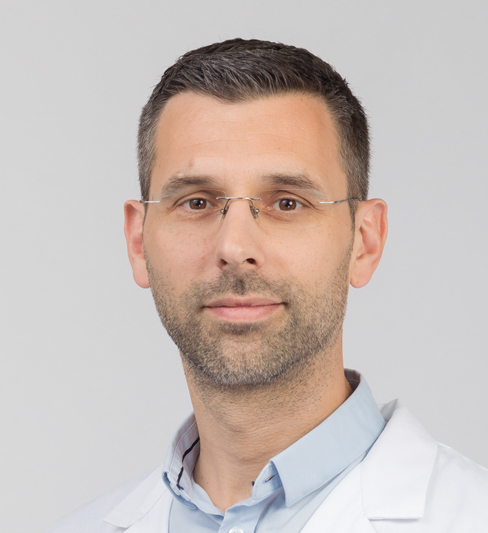
Sirio Dupont
Department of Molecular Medicine, University of Padova, Italy
Sirio Dupont received a Master in Molecular Biology in 2000, and a PhD in Developmental Biology in 2004. During his postoc he identified new regulatory mechanisms in TGFbeta and BMP signal transduction, and characterized their role in frog and mouse embryos. In the last 15 years his group identified new mechanotransduction players, including the seminal identification of YAP/TAZ as mechano-regulated transcriptional regulators, the demonstration that force mechanostranduction is key for contact-inhibition of growth, and the finding that force mechanostranduction maintains liver organ homeostasis in mice. More recently, the group focused on metabolic traits regulated by the mechanical microenvironment, including the discovery of NRF2 as a novel mechano-regulated factor. From 2023 he is a Full Professor of Biochemistry at the Medical School of the University of Padua. He was awarded Clarivate Highly Cited Resercher in 2021 and 2022.
Fueling the battle: Metabolic insights into cancer progression and theraputic strategies
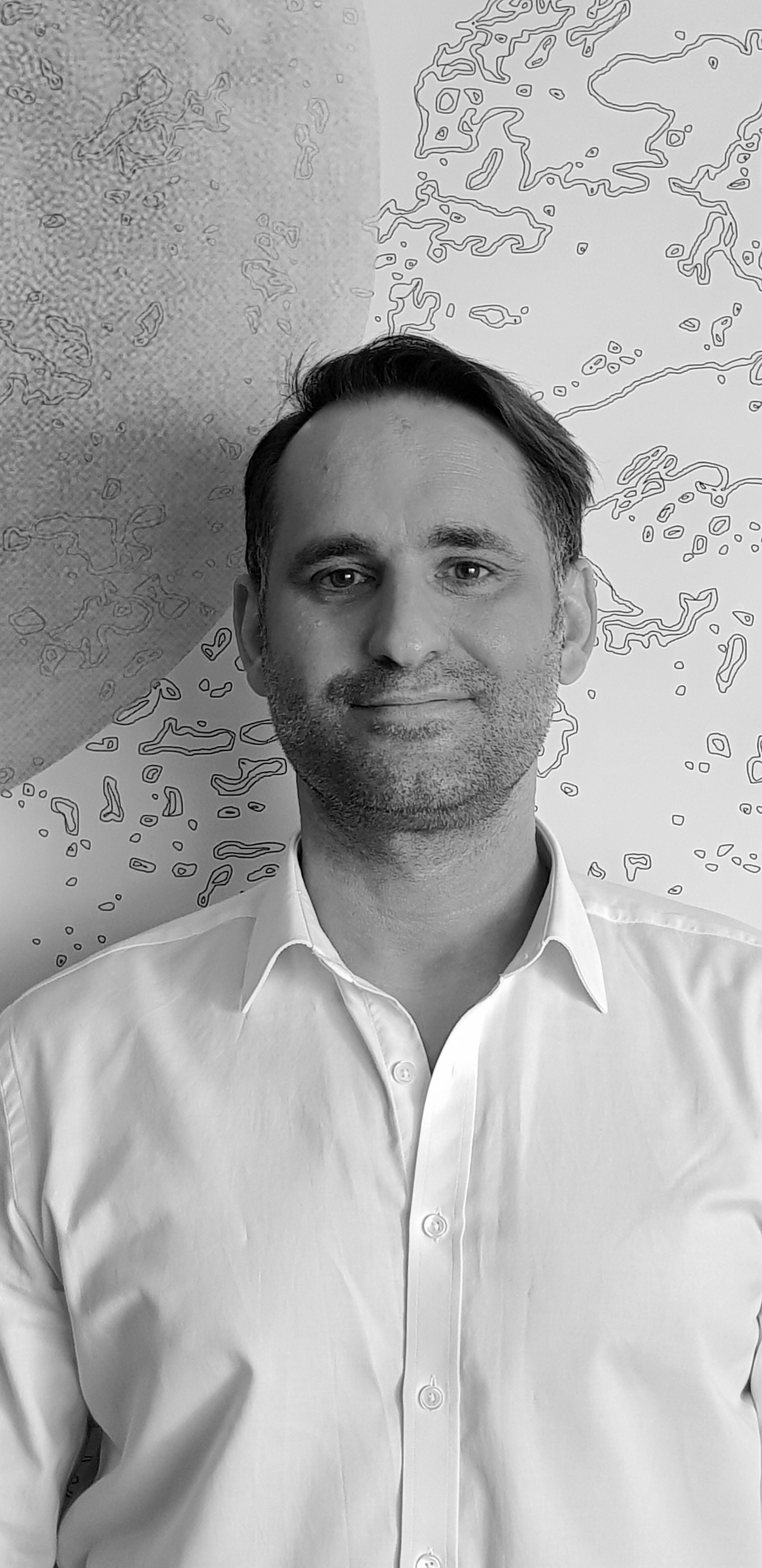
Jean-Ehrland Ricci
INSERM U1065, C3M, Bâtiment Universitaire ARCHIMED, Nice, France
Jean-Ehrland Ricci (DR1 Inserm, PhD, HDR) leads the "Metabolism, Cancer and Immune Response" (mCARE) team at Inserm U1065, the Mediterranean Center for Molecular Medicine Research (C3M), in Nice, France. He earned his PhD in Molecular and Cellular Biology from the University of Nice Sophia Antipolis, France, where he investigated Fas- and T-Cell Receptor-mediated apoptosis in human T cells. Following his PhD, he pursued postdoctoral training in Dr. Douglas R. Green's laboratory in San Diego, focusing on the metabolic regulation of both caspase-dependent and -independent cell death. In 2006, J-E Ricci was awarded an Inserm-Avenir grant, enabling him to establish and lead his own research team. His team composed of 10-15 persons, investigates how metabolism and metabolic enzymes regulate signaling pathways, cell death, and immune responses in lymphoma and lung cancer, bridging pre-clinical models and clinical studies. J-E Ricci's major accomplishments include demonstrating how chemotherapies and dietary interventions can modulate cancer cell metabolism and the anti-cancer immune response. He identified the first known E3 ligase in lung cancer cells involved in mitochondrial clearance (mitophagy) and elucidated its impact on cancer sensitivity to chemotherapies. Additionally, he revealed the critical role of the glycolytic enzyme GAPDH and of energetic metabolism in B and T cell lymphomagenesis and lymphoma progression during therapy in both mice and patients.
FEBS Excellence Awardees Session
Antibiotic efficacy - Why context matters?
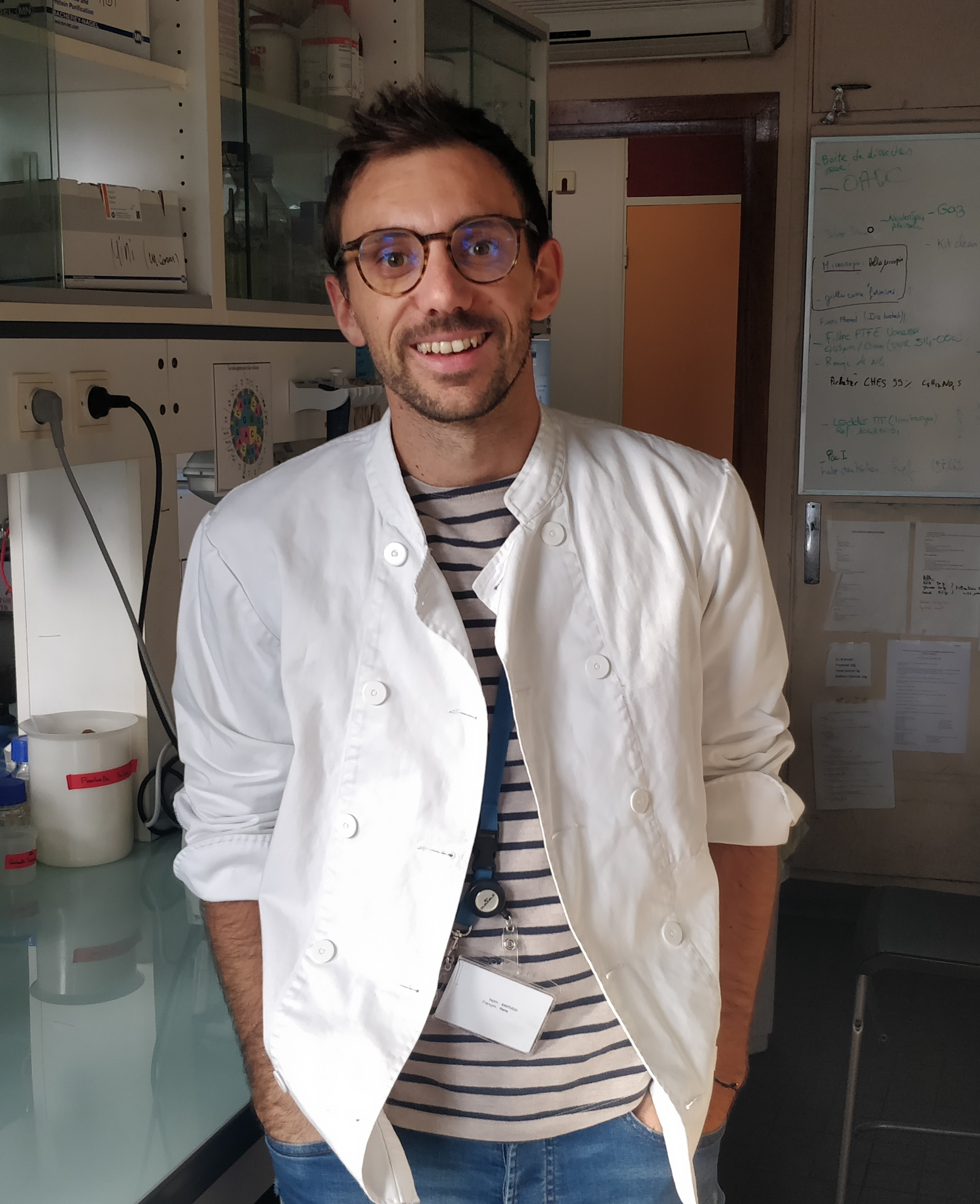
Pierre Santucci
Institute de Microbiologie de la Méditerranée (CNRS and Aix-Marseille University), Marseille, France
In our group we combine bacterial genetics, host-pathogen interactions and high-resolution quantitative imaging to discover new biological mechanisms that govern Mycobacterium tuberculosis and Mycobacterium abscessus intracellular adaptation and pathogenesis. We also apply these unique experimental approaches to identify and characterise context-dependent (hyper)vulnerabilities to antibiotics. Our ultimate goal is to uncover new biological concepts applied to the chemotherapy of mycobacterial lung infections that could lead to the development of new therapeutic strategies.
Dynamic RNA biology at the single-molecule level: Watching how interconnected processes work in real-time
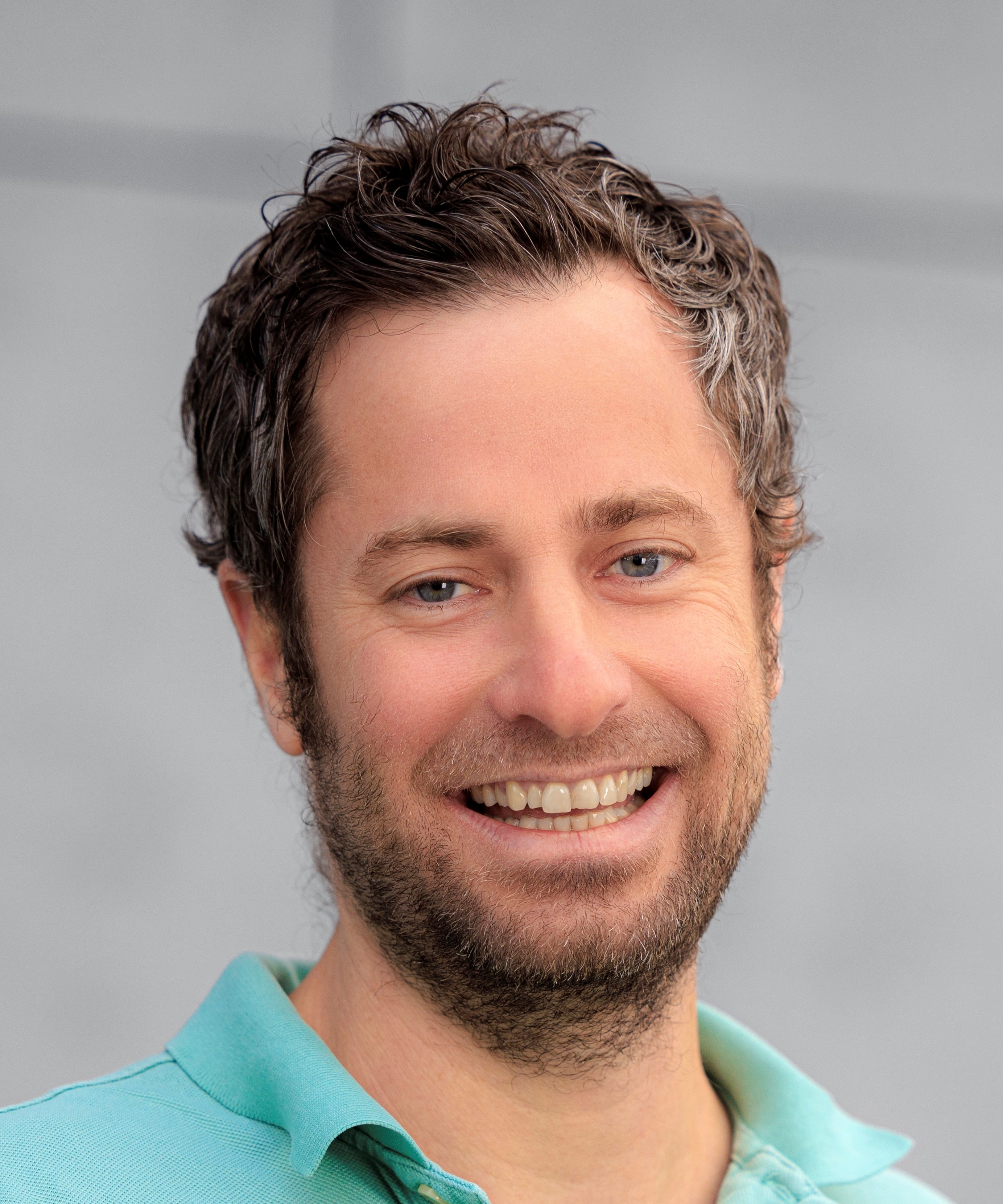
Olivier Duss
EMBL - Heidelberg, Germany
Olivier Duss is a molecular biologist specializing in the intricate dynamics of RNA and protein interactions. He earned his PhD from ETH Zurich in 2013, followed by a joint postdoctoral research stay at Scripps Research and Stanford University. In September 2020, he joined the European Molecular Biology Laboratory (EMBL) as a group leader. He is a recipient of the FEBS excellence award 2022 and an ERC consolidator grant 2024.
At EMBL, his research focuses on elucidating the assembly mechanisms and functions of protein-RNA complexes at the single-molecule level. His team employs advanced single-molecule fluorescence microscopy, in vitro and in living cells, alongside integrative structural biology and biochemical approaches to observe, in real-time, how RNA molecules are synthesized, fold into specific structures, and interact with proteins and other cellular components. This comprehensive understanding aims to uncover the dynamic processes that govern gene expression.
Current projects in Dr. Duss's lab include investigating the molecular interconnections between bacterial transcription, translation, and DNA repair machineries, and understanding how these processes are regulated by non-coding RNAs, RNA-binding proteins, and small molecule ligands. His team is also exploring the coupling of eukaryotic transcription with early splicing and m6A RNA modification, as well as the formation and function of transcription condensates in both prokaryotic and eukaryotic systems. By bridging the gap between in vitro reconstitution experiments and the complexity in vivo, Dr. Duss's research provides new opportunities to combat diseases and engineer novel functional molecular assemblies.
Normal breast physiology as gatekeeper of cancer initiation and growth
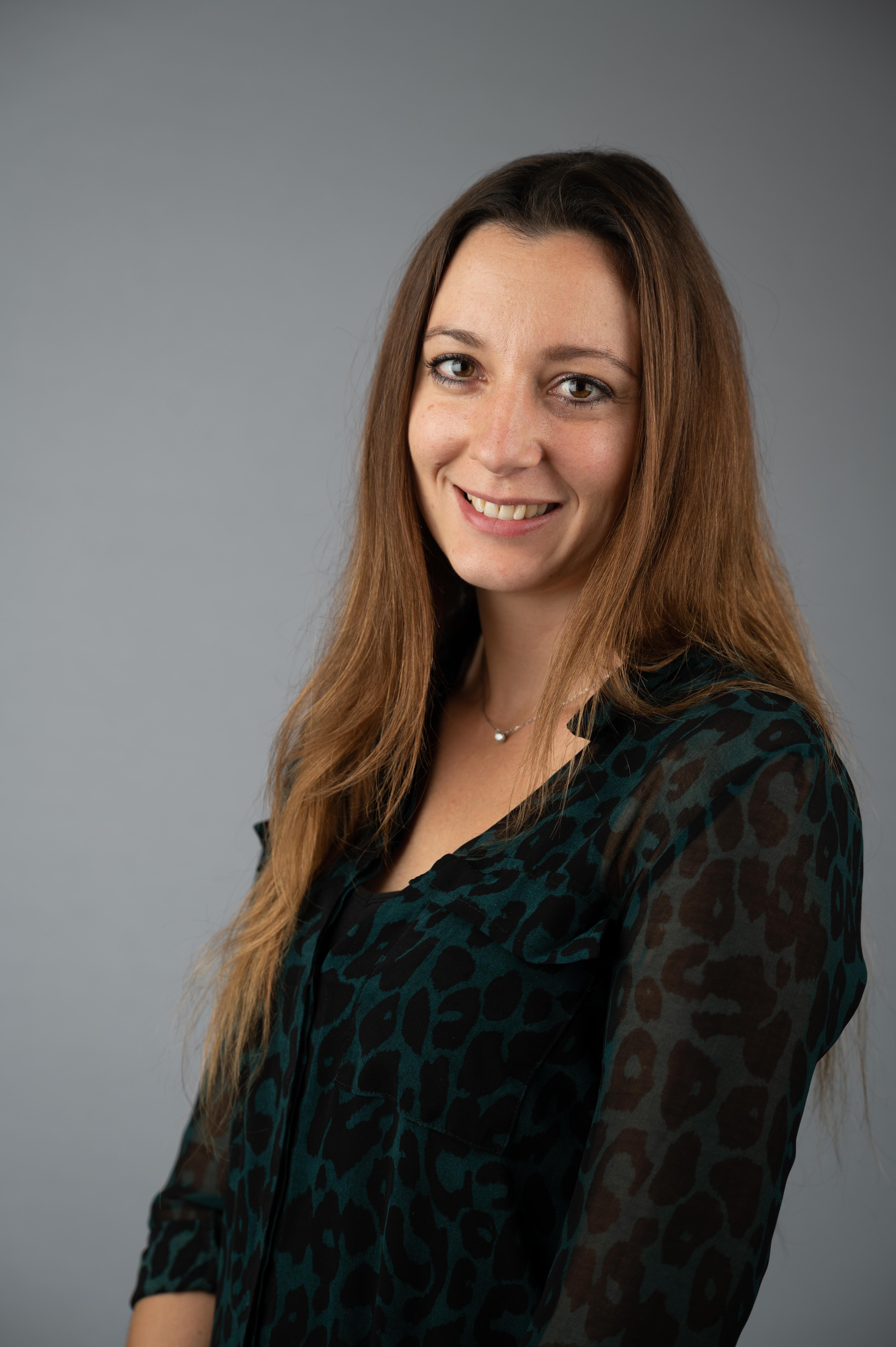
Colinda Scheele
KU Leuven, Belgium
Colinda Scheele is group leader at VIB Center for Cancer Biology since 2020, and Assistant Professor at KU Leuven Department of Oncology since 2021. She performed her PhD research in the lab of Prof. Jacco van Rheenen at the Hubrecht Institute (Utrecht) and the Netherlands Cancer Institute (Amsterdam). During her PhD, she made contributed to the field of mammary gland biology, and discovered the location, behavior, and fate of mammary stem cells during pubertal branching morphogenesis. During these years, she pioneered quantitative lineage tracing and intravital microscopy of diverse tissues studying tissue heterogeneity, metastasis and therapy response.
She started her laboratory in 2020 at VIB-KULeuven Center for Cancer Biology, where her team focuses on the interaction dynamics between cancer cells and their host (tissue). Her team develops and uses state-of-the-art methods, including intravital imaging, organoid technology, and mouse models and patient-derived xenograft models, to study the origins and dynamics of primary and metastatic cancer in real-time in a near-to-native setting. The team recently discovered that breast tissue remodeling during the hormonal cycle plays a key role in protecting us from breast tumor initiation in the presence of oncogenic driver mutations (Ciwinska et al Nature 2024), and that this same remodeling influences chemotherapy response (Bornes et al Nature 2025). The research of Colinda’s lab is funded by national and international grants, including FWO, WWCR, NIH, and ERC. Colinda received several awards and prizes including the BAEF alumni award (2024), Beug Prize for Metastasis research (2023), and the FEBS excellence award (2022).
The molecular architecture of a 2MDa Plastid-Encoded RNA polymerase in a unicellular photosynthetic eukaryote
Silvia Ramundo
Gregor Mendel Institute of Molecular Plant Biology GmbH - Vienna, Austria
Silvia Ramundo is a molecular biologist specializing in chloroplast biogenesis and quality control. She earned her undergraduate degree in Pharmaceutical Biotechnology from the University of Bologna in Italy and completed her PhD at the University of Geneva (Switzerland). During her postdoctoral research at the University of California, San Francisco (USA), she made seminal contributions to our understanding of chloroplast proteostasis, discovering a key component of the chloroplast unfolded protein response and isolating a super-complex involved in chloroplast protein import machinery. In October 2021, she established her lab at the Gregor Mendel Institute at the Vienna BioCenter (Austria), where she continues to lead pioneering research on chloroplast biology. Her work explores fundamental processes such as chloroplast transcription, membrane dynamics, and stress adaptation—research areas that contribute to the broader understanding of organelle biology and may ultimately open new avenues for enhancing photosynthetic efficiency and plant resilience under environmental stress.
Decoding Cancer: Genetics and Epigenetics in Cancer
Deciphering the epigenetic code in autophagy and cancer
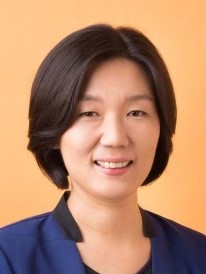
Sung Hee Baek
Laboratory of Molecular and Cellular Genetics, Seoul National University, Republic of South Korea
Prof. BAEK is currently a Professor at Seoul National University in Seoul, Korea. Her research focuses on identifying novel epigenetic codes and regulators and determining their in vivo functions using mouse models. She began her academic journey as an Assistant Professor in the School of Biological Sciences at Seoul National University (2003-2007). She was promoted to Associate Professor (2008-2012) and subsequently to Professor (2012-present). In 2020, she was elected as a Fellow of the Korean Academy of Science and Technology (KAST) and became an Advisory Member of the Presidential Advisory Council on Science & Technology. Prof. BAEK has been honored with several prestigious awards throughout her career. These include the 4th L’OREAL-UNESCO for Women in Science Award in 2005, the 12th Young Scientist Award from the Korea Science and Engineering Foundation in 2009, the 11th Kyung-Ahm Prize in Arts & Sciences from the Kyung-Ahm Education & Culture Foundation in 2015, and the 65th National Academy of Sciences Award in the Natural Sciences Division from the National Academy of Sciences in 2020. She earned her B.S. degree in 1994, M.S. degree in 1996, and Ph.D. degree in 1999 from the School of Biological Sciences at Seoul National University, Korea.
Epigenetic regulation of cancer therapy response
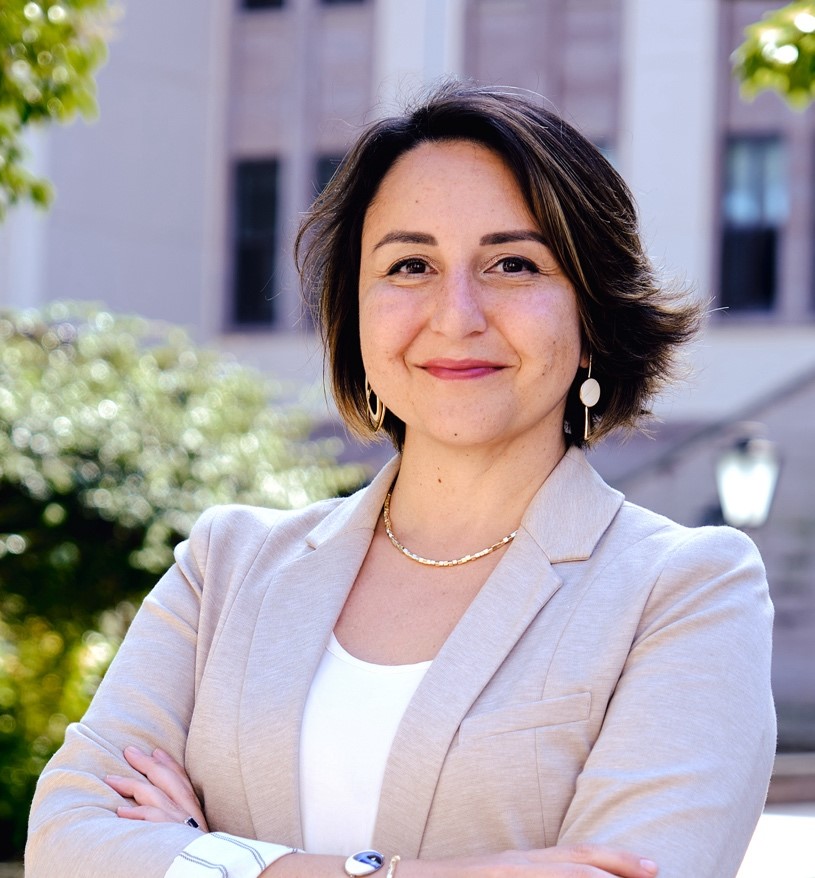
Tuğba Bağcı Önder
Koç University School of Medicine, İstanbul, Turkey
Prof. Tugba Bagci-Onder is a professor at Koç University School of Medicine, Istanbul, Turkey, working on molecular mechanisms of therapy response in cancers. Prof. Bagci-Onder graduated from the Department of Molecular Biology and Genetics, Bilkent University, Turkey in 2002. She then earned her Ph.D. degree in Neuroscience at Sackler School of Graduate Biomedical Sciences at Tufts University, Boston, MA in 2008. She pursued her postdoctoral work at Harvard Medical School, Massachusetts General Hospital, Boston, MA on the development of tumor-specific pro-apoptotic therapies in animal models of brain cancer. In 2012, she joined Koç University School of Medicine and established the Brain Cancer Research and Therapy Laboratory. Her work is supported by FP7 Programme-Marie Curie Career Integration Grant, TÜBİTAK, TUSEB, ICGEB, Royal Society-UK and Koç University Research Center for Translational Medicine (KUTTAM). Prof. Bagci-Onder is also a recipient of Barbara Talamo Trainee (2008), UNESCO-L’oreal Women in Science (2013), BAGEP (2014), Sedat Simavi Heath Sciences (2021), International Cell Death Society Rising Women in Science (2022), Eczacıbaşı (2023) and IBG Science Medal (2023) awards. Prof. Bagci-Onder is the Director of Koç University Graduate School of Health Sciences since 2024. She is also the MC member and WG leader for the COST Action “Net4Brain”.
Tyrosine kinase inhibitor induces changes in the 3D genome organization of lung cancer cells leading to expression of tumor suppressor genes.
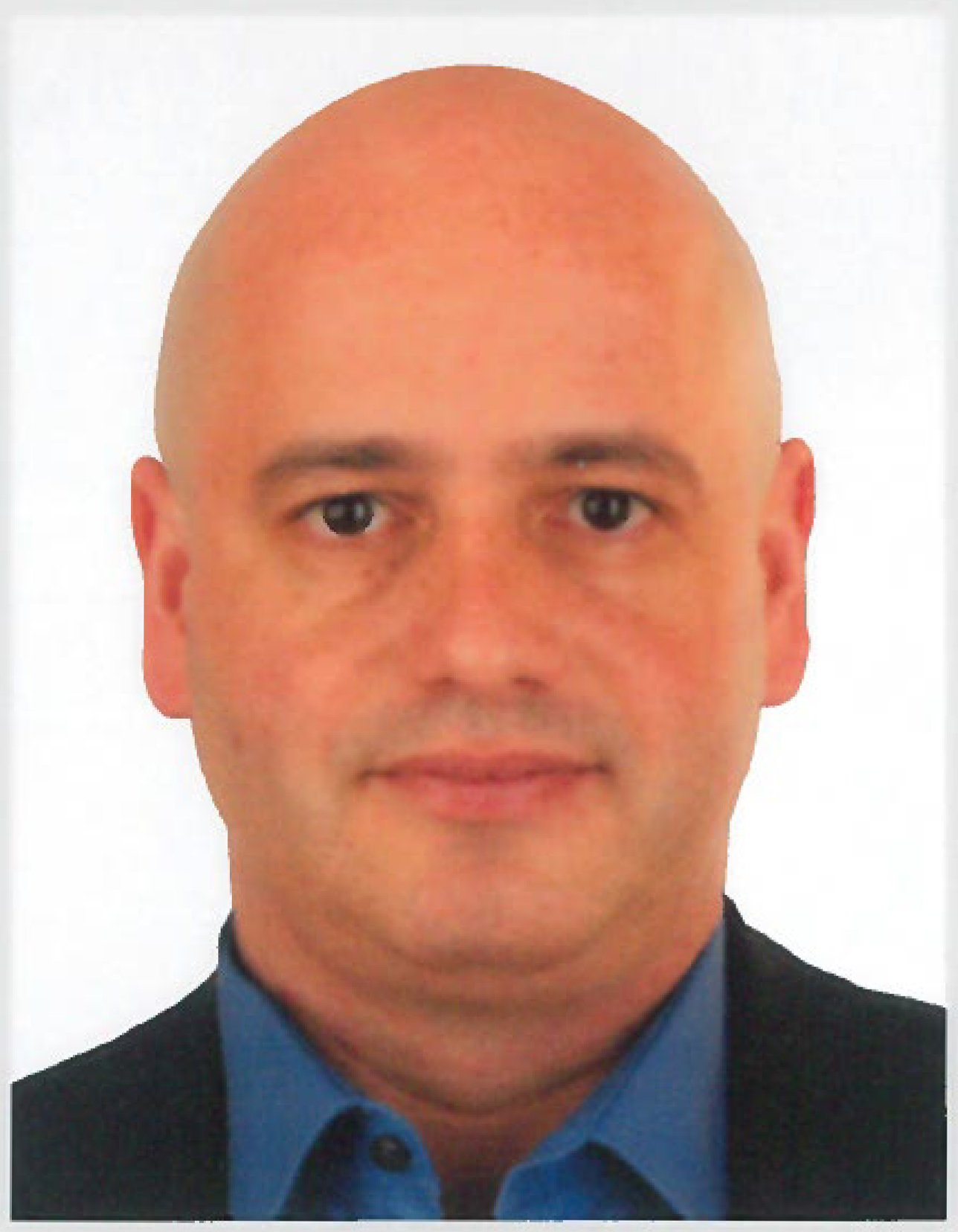
Guillermo Barreto
Centre National de la Recherche Scientifique, Paris, France
Dr. Guillermo Barreto is Director of Research of the Centre National de la Recherche Scientifique (CNRS) in France. He worked before as Independent Research Group Leader at the Max Planck Institute for Heart and Lung Research in Germany and as Postdoc at the German cancer Research Center (DKFZ) in Germany. Dr. Barreto did his PhD at the Max Planck Institute for Developmental Biology and the Eberhard Karls University in Tübingen, Germany. He has 2 patents related to lung cancer with clinical application and trained over 25 students in his laboratory. Dr. Barreto has coauthored over 60 publications including Nature, Cell Research, Nature Genetics, and Nature Communications. The research activities in Barreto´s laboratory are focused on epigenetic mechanisms regulating transcription and global genome organization under physiological conditions and their alterations during chronic diseases, such as lung cancer (LC) and idiopathic pulmonary fibrosis (IPF).
FEBS & EFLM Joint Session – From bench to bedside and back: bridging biochemistry and clinical laboratory medicine
Research vs. clinical laboratory methods: Understanding the key differences
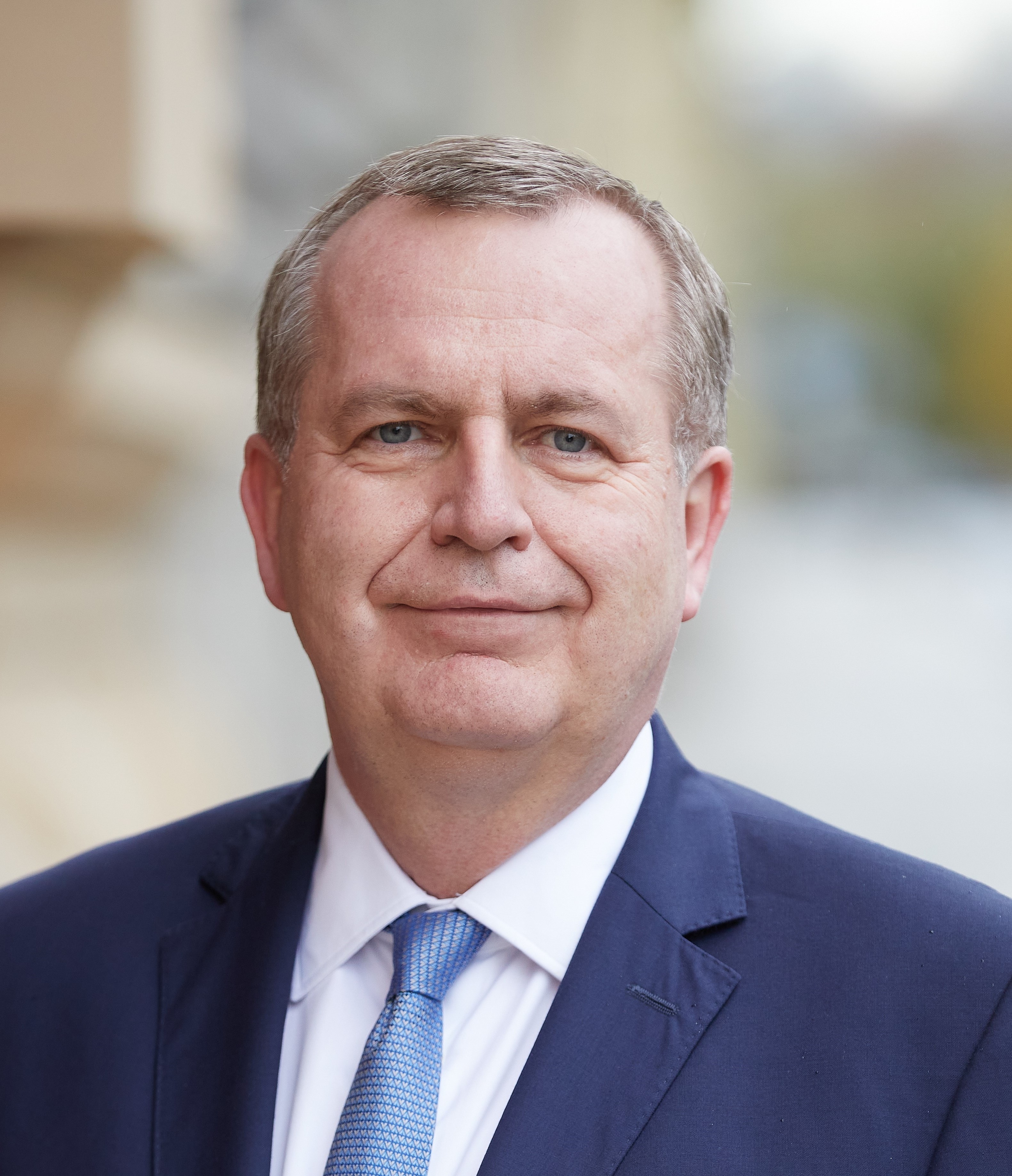
Tomas Zima
Charles University of Prague, Czech Republic
Prof. Tomáš Zima, MD, DSc. Dr.h.c. graduated on the First Faculty of Medicine, Charles University of Prague in 1990, professor of medical chemistry and biochemistry since 2001 and Head of Institute of Medical Biochemistry and Laboratory Medicine (from1999), Charles University, specialist in clinical chemistry and European Specialist in Laboratory Medicine and also in internal medicine and nephrology. He was the Dean of the First Faculty of Medicine between 2005-2012 and between 2014-2022 he was the Rector of Charles University Prague. He was visiting professor Universita degli Studi di Milano in 2024.
His main research interests include oxidative stress, AGE’s, experimental nephrology, tumour markers, and laboratory management and accreditation. He is author of more then 550 articles, citated more then 4900 (SCI), 10 books and co-author of 82 chapters in books, H-index is 39. Prof. Zima is a member in many learned and scientific societies (Academia Europea, Czech Medical Academy, Czech Learned Society) and their Boards (e.g. member of Executive Board EFLM 2011-2019, president elect EFLM 2024-2025, member of C-CC IFCC 2014-2019, member Education and management Division (EMD) IFCC 2021-2025). He was member of the European Commission's Scientific Panel for Health (SPH) 2014-2020.
Beyond Counting: The Art and Science of Sample Size Determination in Life Science
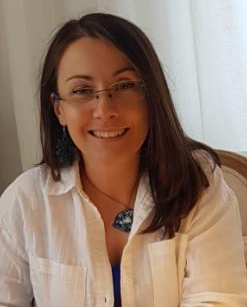
Ceyhan Ceran Serdar
Ankara Medipol University, Ankara, Turkey
Dr. Ceyhan CERAN SERDAR received her undergraduate degree in Molecular Biology and Genetics from Middle East Technical University in 2000. Receiving Maitland Ramsay Postgraduate Fellowship, she conducted research at St. Andrews University, investigating putative breast cancer susceptibility genes. In 2003, focusing on diagnostics, she developed non-radioactive techniques for the differential display of cell surface proteins, culminating in her MSc in Molecular Biology and Genetics from Bilkent University. Diverting her research focus to novel breast cancer therapeutics, she developed and characterized monoclonal antibodies targeting ERBB2, and was awarded her PhD from the same institute in 2012. She also conducted postgraduate research at Cancer Research UK, investigating the DNA mutator enzyme AID.
Her research experience continued with the focus on diagnostics. She served as R&D Manager for BOME, leading the development of four CE-marked IVD kits for the national neonatal screening program in Turkey, one of which has been acknowledged as a success story by TÜBİTAK. This experience underscored the crucial importance of sample size and robust statistical analysis in ensuring the accuracy and reliability of diagnostic tests. Following Sancar Postdoctoral Fellowship at UNAM, she joined the medical faculty of Ankara Medipol University in 2020, where she currently serves as a faculty member in the Department of Medical Biology and Genetics. Dr. CERAN SERDAR’s research focuses on developing novel IVD assays, improving diagnostic accuracy, and exploring point-of-care diagnostics.
Metabolomics: A challenging journey from basic science to daily practice—reality or fairy tale?
Elie Fux
IFCC Metabolomics Working Group Chair, Germany
Dr. Elie Fux is Group Head of Mass Spectrometry applications at Roche Diagnostics in Munich, Germany and Chairman of the IFCC Metabolomics Working Group. His current research focuses on applications of clinical metabolomics and the development of reference measurement procedures for in-vitro diagnostics assays.
With over 15 years of experience in mass spectrometry, Dr. Fux has made significant contributions to LC-MS method development and validation across various fields. At Roche Diagnostics, he led several development initiatives for the implementation of the cobas® mass spec solution, a breakthrough in clinical mass spectrometry that brings full automation and standardization to routine diagnostic testing.
His expertise spans method development for small molecule quantification in complex biological matrices, with extensive experience in high-throughput metabolomics and clinical applications. Through his role in the IFCC, he drives global standardization efforts in clinical metabolomics, working towards establishing international consensus on methodological approaches and quality standards. Dr. Fux previously held leadership positions at BASF Metabolome Solutions and conducted research at the US FDA. He holds a Ph.D. in Chemistry from Dublin Institute of Technology, focusing on LC-MS method development and validation.
NGS: Transforming public health from basic science to practical applications in oncology, cardiology, and predictive medicine
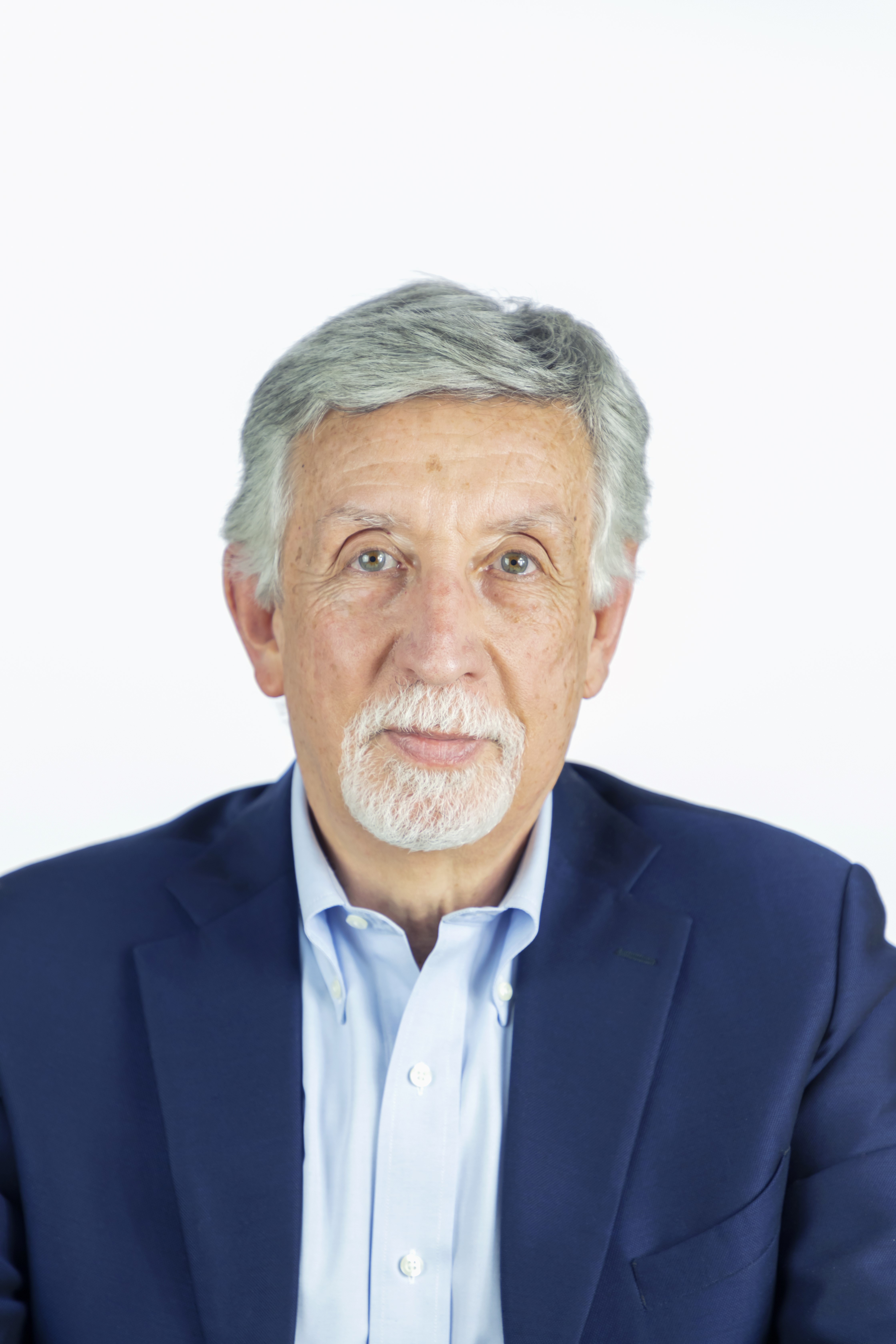
Maurizio Ferrari
Synlab, Rovato, Italy
Prof. Maurizio Ferrari is the Former President of the International Federation of Clinical Chemistry and Laboratory Medicine (IFCC). He is a retired Full Professor of Clinical Pathology at the Università Vita-Salute San Raffaele, Milan, Italy and currently is the Chief Medical Officer of Synlab Italia.
Before now, he served in several capacities within the IFCC as Chairman of Committee on Clinical Molecular Biology Curriculum of IFCC (2002-2007) and member of the Education and Management Division of IFCC (2008-2011). He was the Chairman of Education and Management Division of IFCC (2012-2014), member of IFCC Task Force on Pharmacogenetics and an advisor to the CLSI Committee on Molecular Methods.
He was IFCC President (2015-2017 and 2019-2020). He was Chairman of Award Committee of IFCC (2018-2020) and Consultant of Emerging Technology Division of IFCC (2019 at present).
He was also President of the European Society of Predictive Medicine.
He received in 2004, the IFCC-Abbort Award for significant contributions in Molecular Diagnostics, the Honorary membership of the Hungarian Society of Laboratory Diagnostics (2014), the Honorary Diploma of “Societas Medicorum Bohemorum J.E Purkyne” (2015), the Jendrassik L. Award of Societas Diagnostica Laboratorialis Clinicalis Hungarica (2016)and SIBioC Award for Internalization (2019), Mrs and Dr GP Talwar Oration Award of the Association of Clinical Biochemists of India (2019).
He has had a degree in Medicine at the Milan University and specialized in Paediatrics, Haematology and Medical Genetics. He was a Post-Doctoral Student at Paul Brousse Hospital, Villejuif, Paris and Honorary Registrar in Haematology at the UCH, London. He was Scientific Coordinator of Clinical Research, IRCCSH San Raffaele, Milan (1996-1999), former Dean of Master’s Degree in Molecular and Cellular Medical Biotechnology (2008-2017). He is the past Lead of the Clinical Molecular Laboratory and the Genomic Unit for the Diagnosis of Human Pathologies in the Division of Genetics and Cell Biology at IRCCS San Raffaele, Milan.
His scientific interests are mainly on molecular diagnostic methods, nucleic acid circulating in maternal plasma, next generation sequencing clinical applications, molecular studies of several genetic pathologies. He is author of more than 400 peer reviewed journals and was invited as lecturer at more than 300 international congresses.
Protein Life Cycle I: Dynamics of Protein Synthesis and Folding
The hidden language of proteins: Allosteric pathways with Gaussian network model
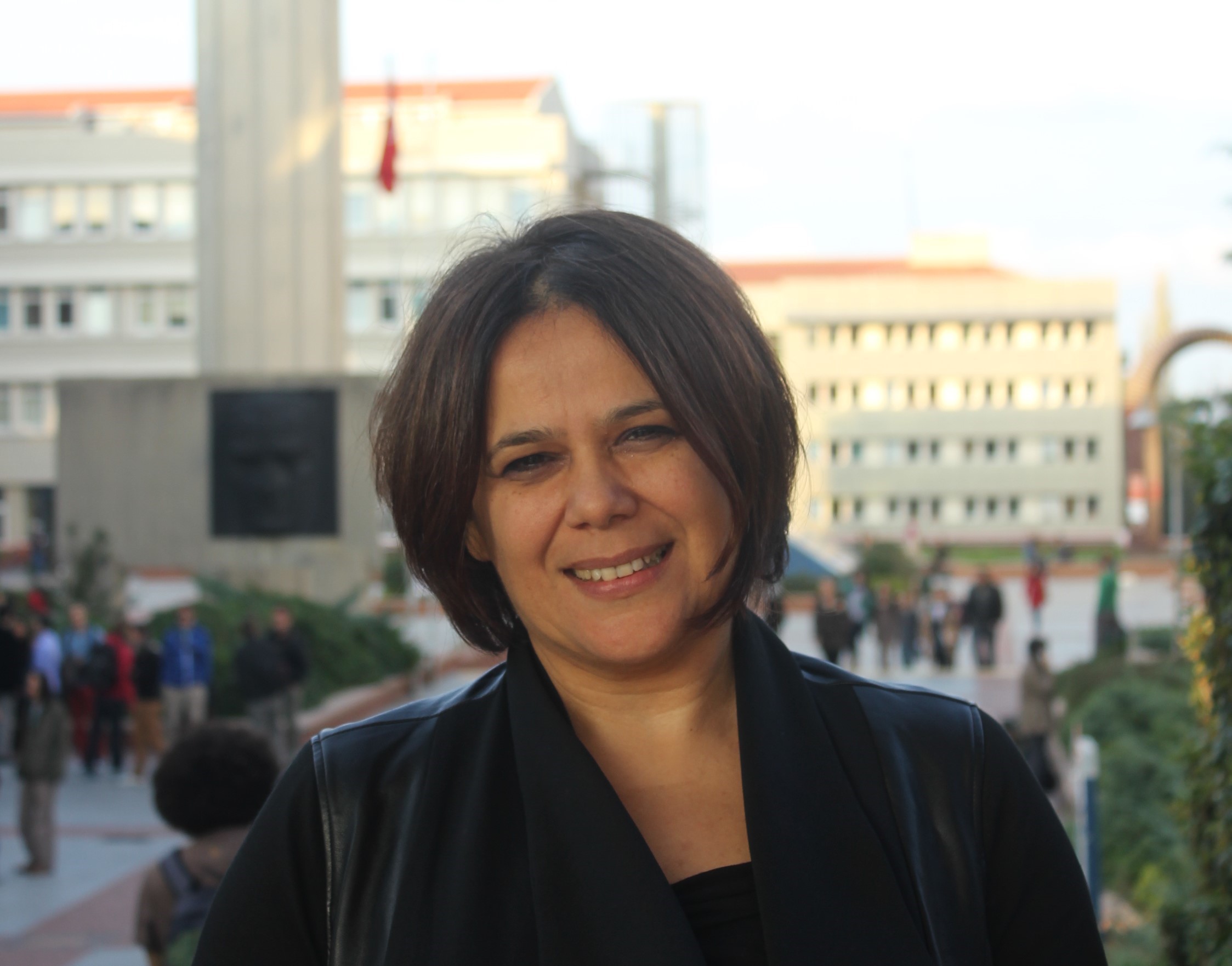
Türkan Haliloğlu
Boğaziçi University, İstanbul, Turkey
Türkan Haliloglu is a Professor of Chemical Engineering and Director of the Polymer Research Center at Bogazici University. She received her Ph.D. degree in Chemical Engineering from Bogazici University in 1992, after which she pursued postdoctoral studies at the Institute of Polymer Science, the University of Akron, in 1992/1993. Between 2002 and 2004, she made multiple research visits to the National Institute of Health in Frederick, Maryland. Prof. Haliloğlu's interdisciplinary work integrates engineering principles with physics, biology, and chemistry to uncover the fundamental mechanisms governing the functionality of biological molecules. She has applied simplified models from polymers and statistical mechanics to understand the complexities of biological macromolecules and developed theoretical and computational methods to explore and characterize structural dynamics and allosteric interactions. She is a member of the Science Academy of Turkey.
Apicomplexan mitoribosome from highly fragmented rRNAs to a functional machine
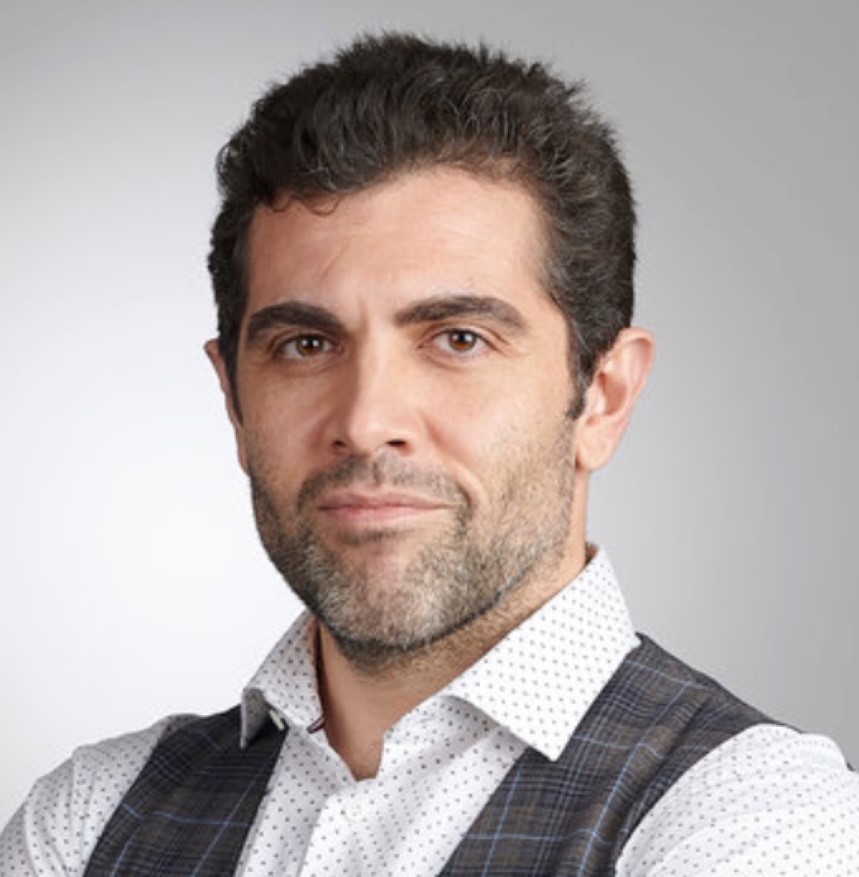
Yaser Hashem
University of Hamburg, Hamburg, Germany
After a PhD in the University of Strasbourg in 2010, Yaser Hashem joined the group of Prof. Joachim Frank (2017 Chemistry Nobel Laureate for cryo-EM) in Columbia University (NYC, NY, USA) where he became an expert in single particle cryo-EM and mRNA translation regulation. In 2014, Yaser started his research group in Strasbourg that he relocated to Bordeaux to join the IECB as an Inserm Group Leader in 2018, promoted then to Research Director in 2021. Since February 2025, Yaser joined the University of Hamburg as a tenured W2 professor in the Chemistry Department.
Prof. Hashem group studies the regulation of mRNA translation, both cytosolic and mitochondrial, using an ensemble of integrative approaches at the structural and functional levels. The team is best known for its focus on the eukaryotic mRNA translation initiation process and the species-specific aspects of mRNA translation in eukaryotic parasites e.g., trypanosomatids and apicomlexa. More recently, the group became increasingly interested in mitochondrial mRNA translation and is actively investigating this highly species-specific process.
Understanding the regulation of ribosome assembly
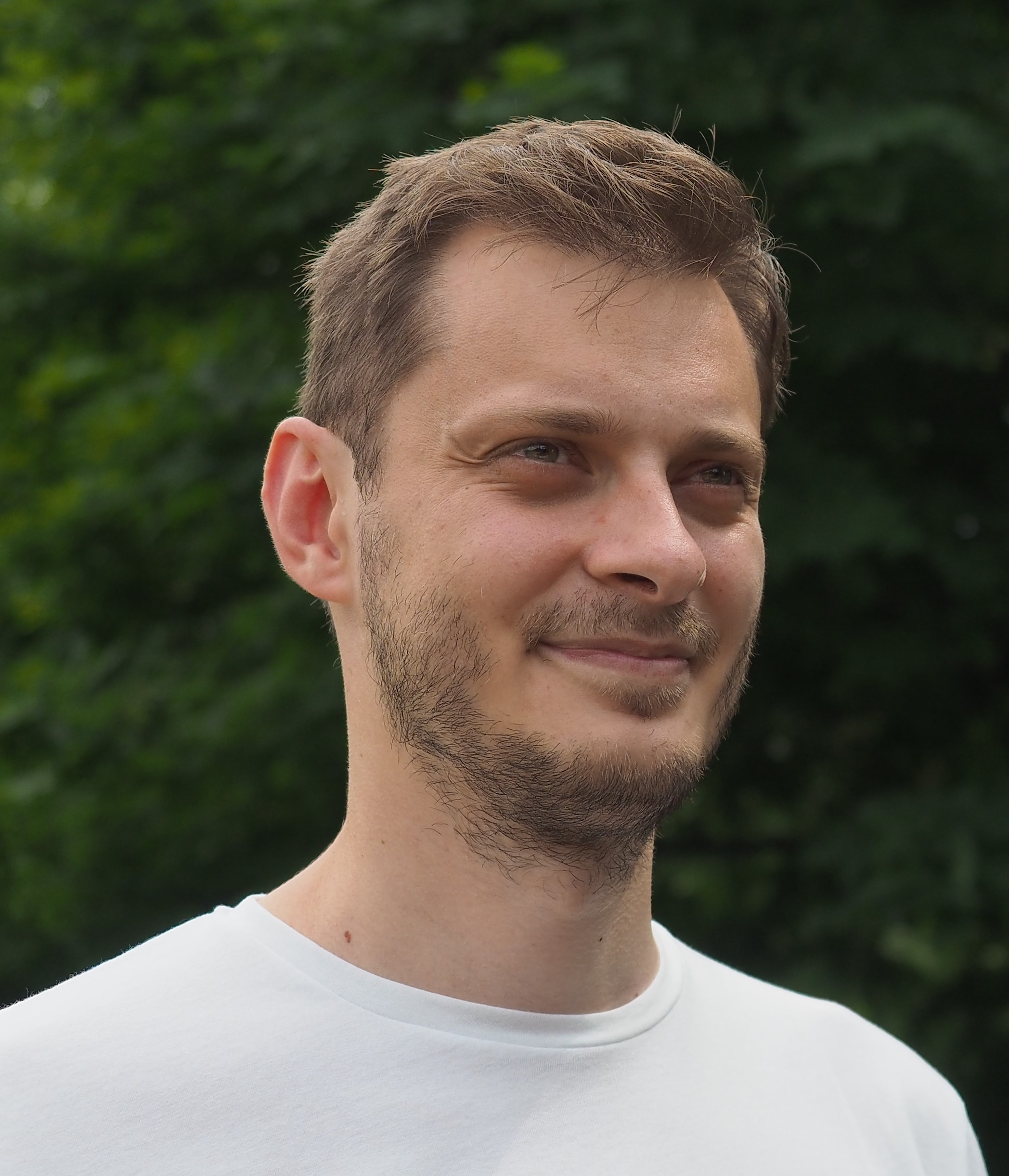
Gabriel Demo
Central European Institute of Technology (CEITEC), Masaryk Univeristy, Brno, Czech Republic
I received my Ph.D. in biomolecular chemistry from Masaryk University, Brno, Czech Republic, under the supervision of Prof. Michaela Wimmerova. To expand my scientific expertise, I took a post-doctoral position with Dr. Andrei Korostelev at the University of Massachusetts Medical School, RNA Therapeutics Institute, Worcester, MA, USA, where I focused on studying large macromolecular machines—ribosomes—using cryo-electron microscopy. During this time, I made numerous contributions to the field of translation, providing detailed mechanistic insights into key phases such as elongation and termination. In 2020, I established the Structural Biology Group "Regulation of Translation" at CEITEC, Masaryk University. My team focuses on characterizing the interplay between ribosomes and RNA polymerases in bacteria and virus-infected mammalian cells using cryo-EM and cryo-ET techniques. We also investigate translation regulation mechanisms, including anti-association and ribosome assembly. One of our significant discoveries revealed a novel archaeal dimerizing factor capable of dimerizing small ribosomal subunits and acting as an anti-association/hibernation factor. Moreover, our recent scientific endeavors are focused on the regulation of ribosome assembly under adverse conditions and the interplay of ribosome-associated factors that ensure proper activation of non-defective translation in these environments. This will be the topic of the presentation.
Revolutionizing Cancer Diagnosis and Treatment
Adaptation of cancer cells to hypoxia and acidosis in tumor microenvironment
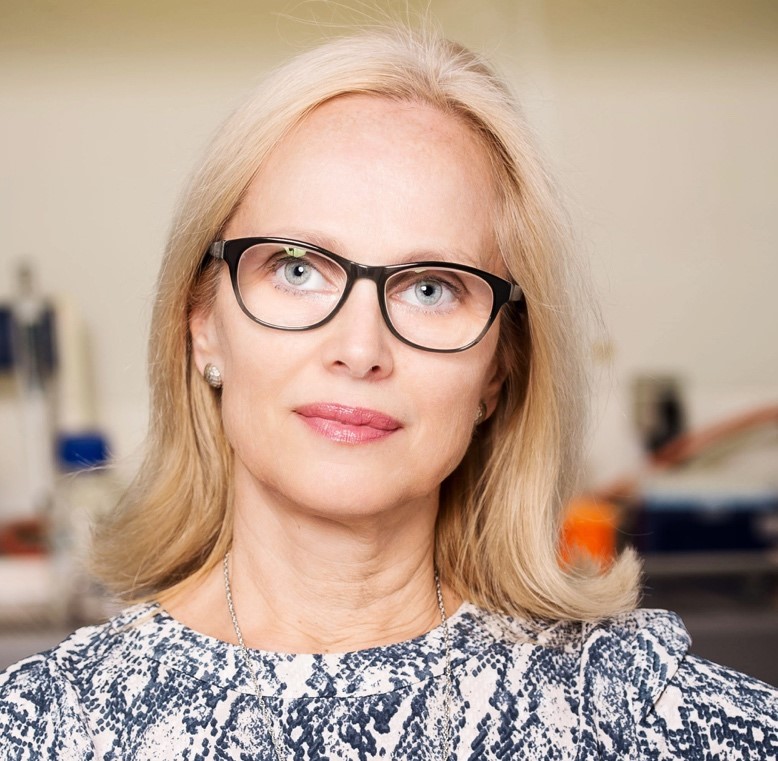
Silvia Pastorekova
Biomedical Research Center SAS, Bratislava, Slovakia
I accomplished my PhD thesis at the Institute of Virology, Slovak Academy of Sciences in Bratislava, in the laboratory of Jan Zavada, a world-renowned expert in virus pseudotyping. During my PhD study, I generated monoclonal antibody (Mab M75) leading to identification of carbonic anhydrase IX (CA IX/CA9), a key pH regulating enzyme induced by hypoxia in tumour tissues. This has opened a new research avenue leading to better understanding of cancer cells’ adaptation to hypoxia and acidosis. Research team, which I led together with my husband and lifelong collaborator Jaromir Pastorek, brought the first evidences for the role of CA IX in pH regulation and acquisition of pro-metastatic phenotype, and resulted in generation of additional CA IX-specific MAbs that are now under development for cancer therapy. During my career, I was continuously affiliated with the Institute of Virology that is now a part of the Biomedical Research Center SAS in Bratislava, Slovakia. Through engagement in several EU consortia, I had the opportunity to collaborate with the world-leading scientists in the field of tumour hypoxia, acidosis and cancer metabolism. Current research efforts of my team continue to aim at deeper understanding of molecular mechanisms of cancer progression, with focus on elucidating the CA IX contribution to tumor microevolution and therapy resistance.
Liquid biopsy: From discovery to clinical implementation
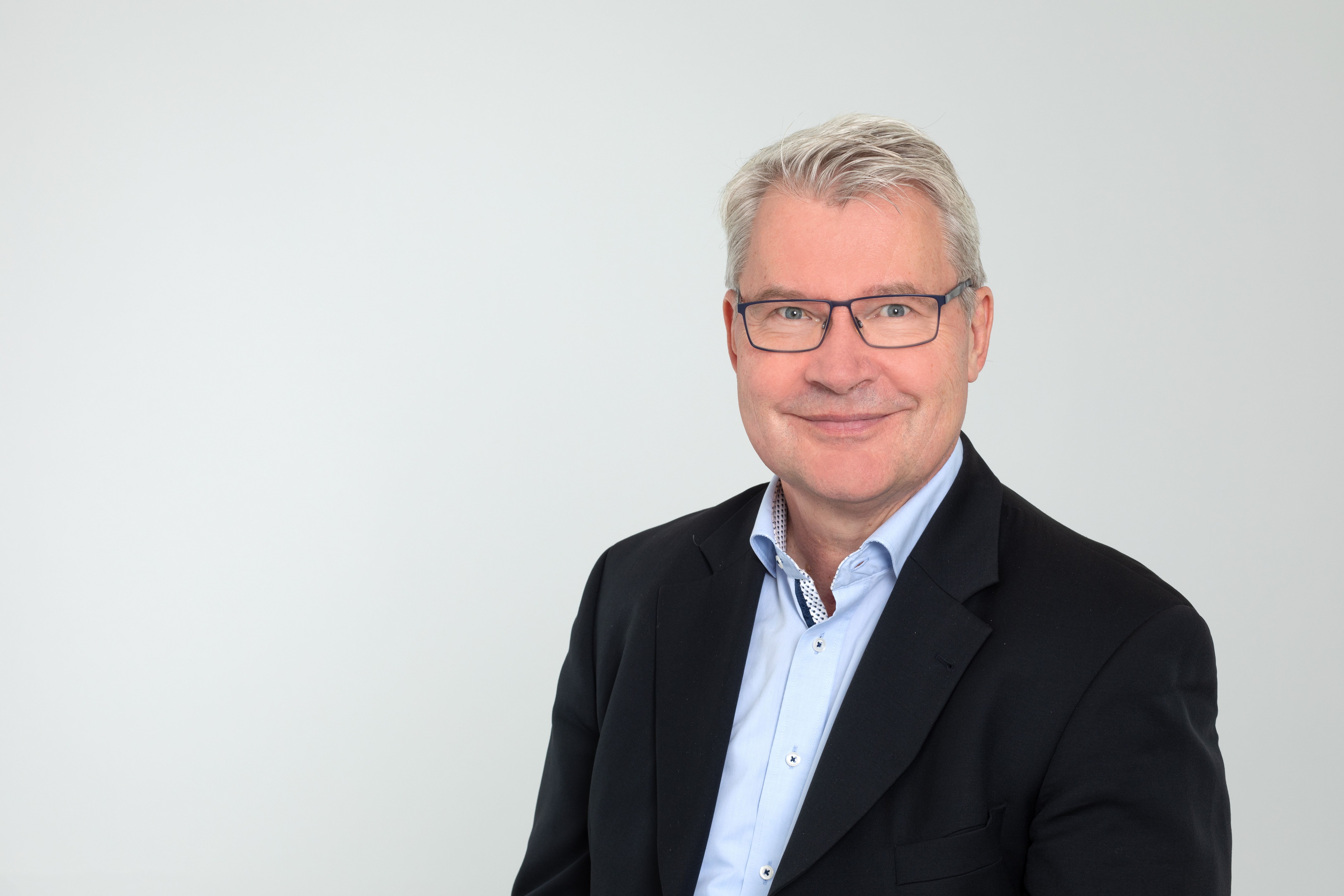
Klaus Pantel
Institute of Tumour Biology, University Medical Centre Hamburg-Eppendorf, Hamburg, Germany
Prof. Dr. Klaus Pantel is Director of the Institute of Tumor Biology at the University Medical Center Hamburg-Eppendorf, Germany. The Institute is part of the Center for Experimental Medicine and the University Cancer Center (UCCH). Prof. Pantel graduated from the University of Cologne in 1986 and completed his dissertation in 1987 in the field of mathematical models of hematopoiesis. After his postdoctoral training in the USA at Wayne State University, Detroit, where he conducted research on hematopoietic stem cell regulation, he spent 10 years at the Institute of Immunology at the University of Munich, where he habilitated in 1995 in the field of experimental immunology and immunotherapies. Prof. Pantel's pioneering work in the field of micrometastasis and liquid biopsy (analysis of tumor components in the blood, e.g. circulating tumor cells and circulating nucleic acids (ctDNA, microRNAs)) of solid tumors is reflected in more than 600 publications (h-factor 161) in excellent high-ranking biomedical and scientific journals (incl. NEJM, Lancet, Nature Journals, Cancer Cell, Science Translational Medicine, Cancer Discovery, PNAS, JCO, JNCI, Cancer Res.). His research work has been recognized by the AACR Outstanding Investigator Award 2010, the German Cancer Award 2010, and four ERC Grants, among others. He is the Founder and current President of the European Liquid Biopsy Society and the Scientific Coordinator/Lead-PI of the EU consortia PANCAID and GUIDE-MRD.
Cancer causing pathogens, cell plasticity and upper GI cancers
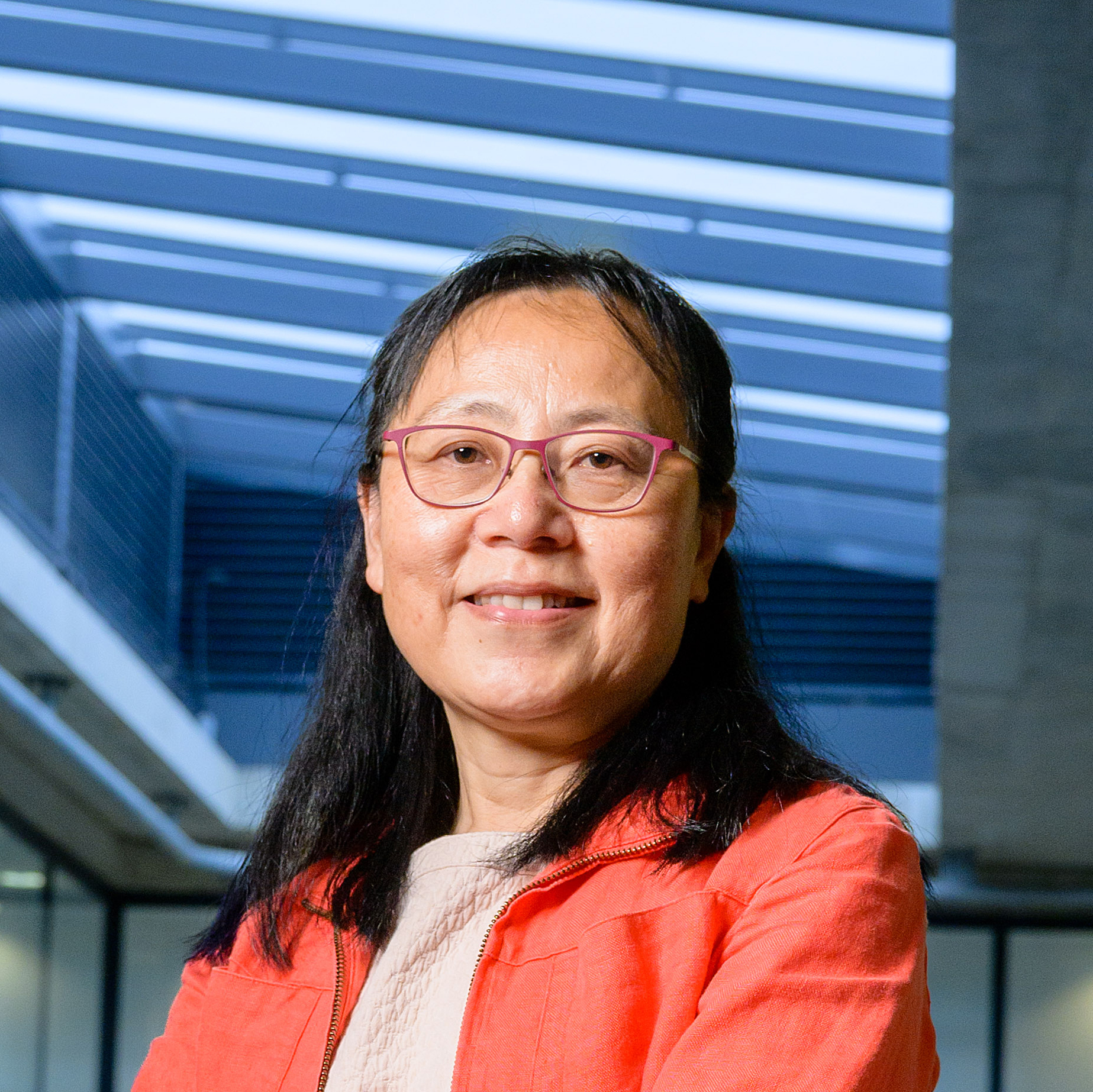
Xin Lu
Ludwig Institue for Cancer Research, Nuffield Department of Medicine, University of Oxford, UK
Xin Lu is Director of the Ludwig Institute for Cancer Research and Professor of Cancer Biology at the University of Oxford, UK. She is a leading cancer cell biologist with long-standing research interests in tumour suppression. She was one of the first researchers to show that the tumour suppressor p53 responds to both oncogene activation and DNA damaging signals and her group was also among the first to demonstrate how to selectively activate p53 to kill cancer cells, through identification and characterization of the evolutionarily conserved ASPP family of proteins. Her laboratory has broad interests in the molecular mechanisms that control cellular plasticity, including how external signals - such as infection - are integrated into the nucleus to achieve target-selective transcription and cell fate determination. Xin Lu also has interests in the deep phenotyping clinical cohorts at high risk of cancer, with an aim to identifying biomarkers and signatures predictive of early stage cancer or recurrence. She is involved in clinical studies on Li Fraumeni Syndrome, Barrett’s oesophagus, and played a leading role in the LUD2015-005 Phase II/III immunochemotherapy oesophageal cancer trial, which identified a novel gene signature and tumour monocyte content as independent predictors of patient response.
Xin Lu has been elected as a Fellow of the Royal Society 2020, the UK’s distinguished academy of science, for her contributions to cancer biology. Xin is also a Member of the Academy of Medical Sciences, a Member by election of the Academia Europaea, and a Member of the European Molecular Biology Organisation. Xin is Cancer Theme Leader for the National Institute for Health Research (NIHR) Oxford Biomedical Research Centre and Director of the Oxford Centre for Early Cancer Detection. She has a BSc from Sichuan University, MSc from Peking Union Medical College, Chinese Academy of Medical Sciences in China, PhD from University College London (UCL) and the former Imperial Cancer Research Fund, and postdoctoral training at Dundee University, UK. She was appointed as the Director of Ludwig Institute in London at UCL in 2004 and she established Ludwig Oxford as Director in 2007.
Molecular Basis of Disease
Acylcarnitines in health and disease
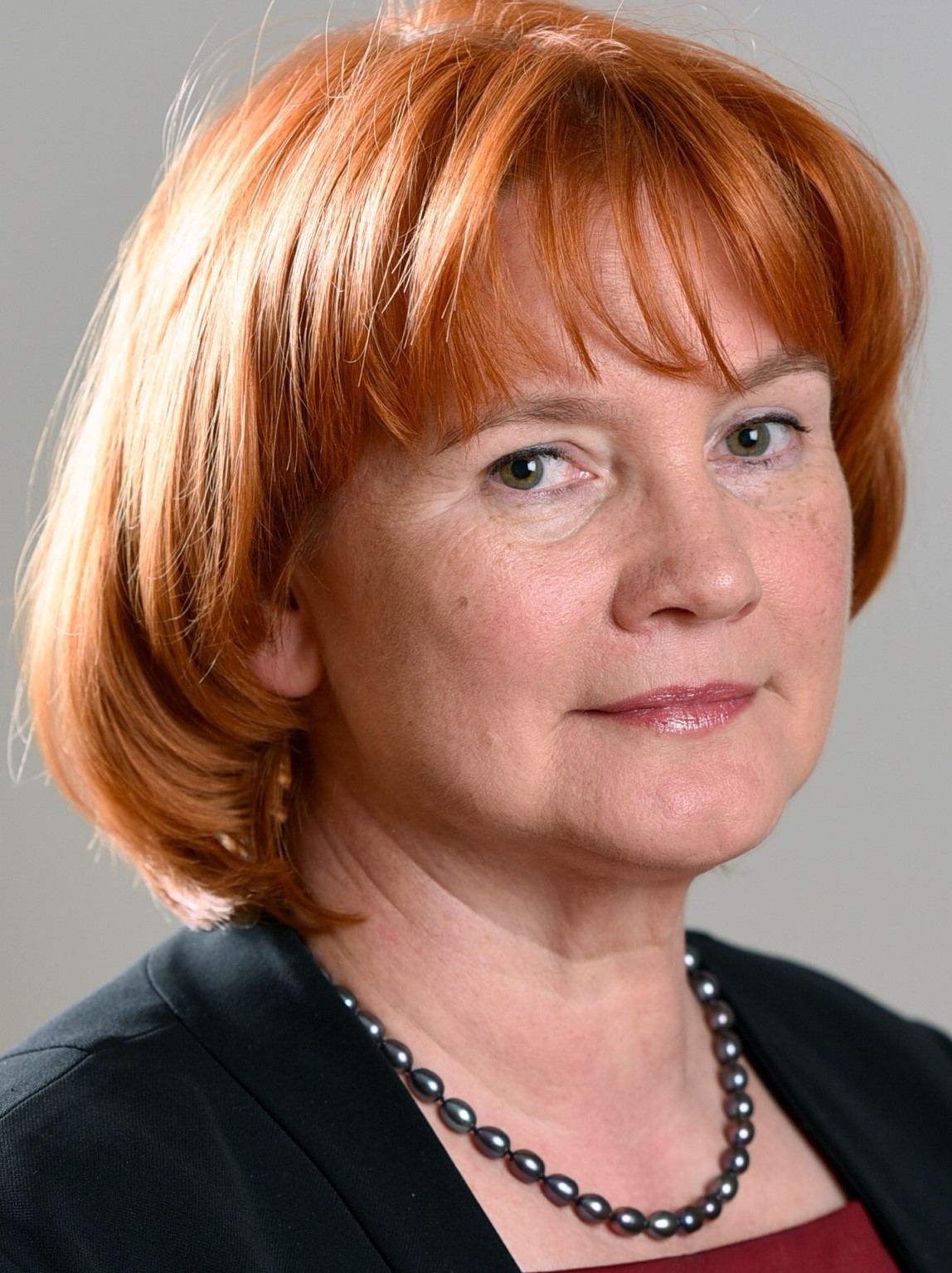
Maija Dambrova
Latvian Institute of Organic Synthesis, Laboratory of Pharmaceutical Pharmacology, Riga, Latvia
Prof. M. Dambrova is Head of the Laboratory of Pharmaceutical Pharmacology, Latvian Institute of Organic Synthesis, and Professor at the Riga Stradins University, Faculty of Pharmacy (Latvia). She has a PhD in Pharmaceutical Biosciences from Uppsala University (Sweden) and also holds an MBA degree from RISEBA, Latvia. Prof. M. Dambrova specializes in drug discovery and investigation of the molecular action mechanisms of drugs and biomarkers in collaboration with academic research partners and the pharmaceutical industry. Research interests include pharmacology and medicinal chemistry related to cardiometabolic drugs and novel paths to regulate cellular energy metabolism and protect mitochondrial functionality. For her achievements, M. Dambrova has been awarded the EFPIA nomination “Portraits of Science–Scientists of Tomorrow”, Baltic Assembly Prize in Science, L`Oréal Latvian fellowship "For Women in Science" with the support of the Latvian National Commission for UNESCO, and the Latvian Academy of Sciences.
Cystic fibrosis: A paradigmatic disease in bringing science to the bedside
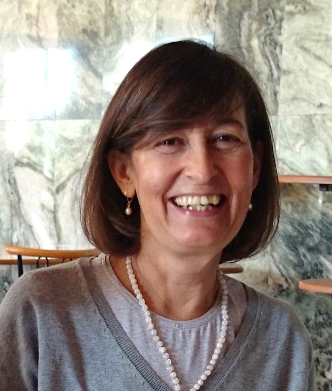
Margarida D. Amaral
Biosystems and Integrative Sciences Institute, Faculty of Sciences, University of Lisboa, Lisbon, Portugal
Margarida D. Amaral is Full Professor of Biochemistry/ Molecular Biology at the Faculty of Sciences, University of Lisboa (Portugal) and Group Leader at the BioISI - Biosystems & Integrative Sciences Institute (FCUL, Portugal). MDA is alumna of EMBL-European Molecular Biology Laboratory (2008-10; 2016) and of IGC - Gulbenkian Institute of Science (1983-1993). Member of EMBO – European Molecular Biology Organization and of the Portuguese Academy of Sciences and received multiple awards, among which the Pfizer-SCML Award for Basic Biomedical Research and the Annual Award of ECFS – European Cystic Fibrosis Society. The Amaral lab has its major focus on the molecular mechanisms of the genetic disease Cystic Fibrosis (CF) and on translating this knowledge into the benefit of people with CF. To understand CF mechanisms globally we use transcriptomics, proteomics, and functional genomics, namely functional high-content siRNA screens. Recently, we are focussing on the CF pathways leading to cancer. Our results translate into the clinic for better CF diagnosis, prognosis, and personalized therapies. Author of >180 international peer-reviewed publications, and 4 patents, with >6,800 Scopus citations, Highly Cited Researcher (2%) since 2020 (Mendeley, University of Stanford) and nr.2 in Portugal in Cell Biology
SUMOylation in health and disease and its potential for targeted therapies
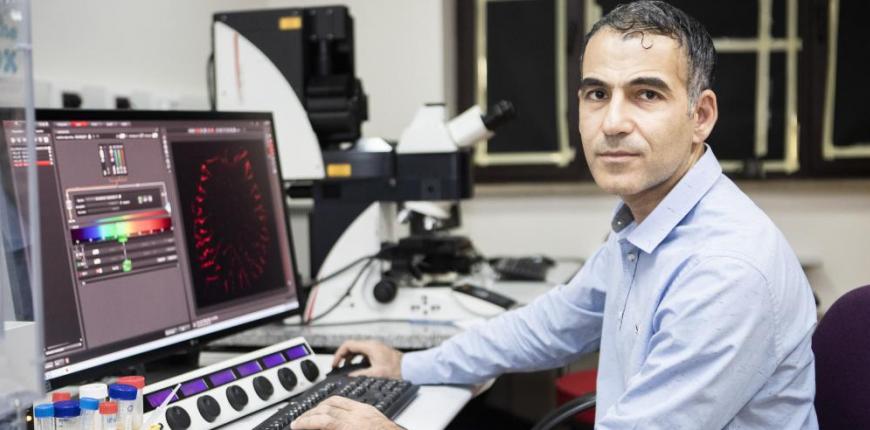
Umut Şahin
Sabancı University Faculty of Engineering and Natural Sciences, İstanbul, Türkiye
Umut Şahin is an associate professor of Molecular Biology, Genetics and Bioengineering at Sabanci University where he leads an active team that conducts cutting-edge research to study the functions of SUMOylation in health and disease processes. His main focus is proteolysis, the ubiqutin-proteasome system, ubiquitin-like proteins (i.e. SUMO), protein quality control mechanisms and the related pathologies. His research group uses multidisciplinary approaches to integrate basic science with translational medicine. Following his graduation from Boğaziçi University, he conducted his PhD thesis research under the supervision of Prof. Carl Blobel (MD, PhD) at Memorial Sloan-Kettering Cancer Center (New York) which led to the discovery of the proteases that serve as the main activators of all ligands of the epidermal growth factor receptor (EGFR), which has crucial roles in development and cancer. During his post-doctoral training with Prof. Hugues de Thé (College de France, Paris), he studied the interplay between the cellular SUMO system and PML nuclear bodies, which are membraneless organelles tightly linked to acute promyelocytic leukemia, a rare and aggresive hematological cancer. He has published numerous research and review articles in high profile journals (Journal of Cell Biology, Blood, Nature Communications, FEBS Journal, Life Science Alliance, etc), received multiple awards and grants (EMBO Installation Grant, BAGEP, TUBITAK-France Bosphorus Bilateral Grant Program, TUBITAK 2247A National Leader Researchers Program, research grants from Gilead, Inc., etc) and collaborated with both local and international groups in academia, as well as in pharmaceutical industry.
Regulative components of the ECM guide skin regeneration via distinct molecular pathways
Viljar Jaks
Tartu University Hospital, Dermatology Clinic, University of Tartu, Institute of Molecular and Cell biology, Tartu, Estonia
My research started 30 years ago in tumor biology studying p53. During the postdoctoral studies I was involved in the research related to skin regeneration and cancer formation. We were lucky to discover a novel non-quiescent stem cell population and participated in redefining how skin regenerates. Since then skin and dermatology have been my main research and work interests. During recent years we have been focusing on cutaneous wound healing and by the discovery of novel molecular mechanisms we eventually hope to contribute to finding out better options for treating ulcers.
Protein Life Cycle II: Proteion Localization and Dynamics
Dynamics and cooperativity in catalytic mechanisms of flavoenzymes
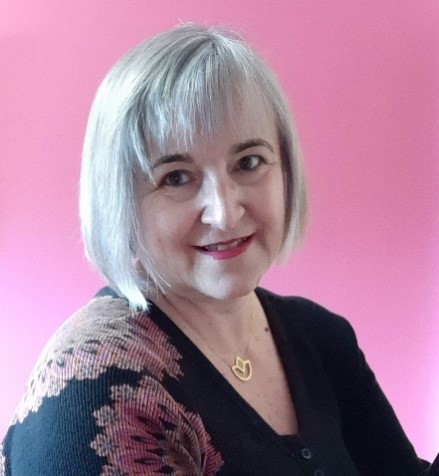
Milagros Medina
Department of Biochemistry and Molecular and Cellular Biology. University of Zaragoza, Zaragoza, Spain
Doctor in Biochemistry, Milagros Medina is Full Professor in Biochemistry and Molecular Biology at the University of Zaragoza (UNIZAR), Spain, where she is also Senior Researcher at the Institute for Biocomputation and Physics of Complex Systems (BIFI). Between 2001 and 2023 she was member of the Government Council of BIFI, having also been its Deputy Director in the 2009-2011 and the 2019-2024 periods. She has also been member of Spanish Biophysical Society Council (2018-2022), and being involved in management positions at UNIZAR; Departmental Secretary (2004-2006), Academic Coordinator of the Biotechnology Degree (2015-2019) and Research Commission (2018-2022). In 2023 she was chair of the 45th Spanish Society of Biochemistry and Molecular Biology Congress held in Zaragoza, being member of this society for more than 30 years. Since January 2023 she is member of the FEBS Advanced Courses Committee. She investigates structure-function relationship on reactions mediated by redox enzymes and coenzymes. Her interest particularly focuses on understanding the versatility of flavoenzymes as efficient and sophisticated molecular tools that use molecular recognition to regulate cellular processes, with the hypothesis that knowledge will allow increasing their biotechnological use. Results of her research are published in more than 190 publications in peer journals (~ 60% Q1 and 10% D1; h-index = 42 according to WOS), presented in 43 book chapters, as well as 34 and 400 respectively invited talks and oral/posters in Scientific Meetings. She has supervised 18 doctors till PhD completion, and participates in the Direction of 5 more PhD thesis.
How ARL proteins control lipid-modified proteins delivery to primary Cilia

Shehab Ismail
KU Leuven, Biochemistry Division, Chemistry Department, Leuven, Belgium
Shehab Ismail is an Associate Professor of Molecular Biochemistry and the head of the Mechanistic Molecular Biochemistry group at KU Leuven Belgium. After obtaining his PhD from the University of Tennessee/StJude Children’s research hospital, USA under the supervision of Prof Hee-Won Park (student of Nobel laureate Prof Johann Deisenhofer) and Post-doctoral fellowships (Max Planck fellowship and Alexander Von Humboldt fellowhip) at Max Planck institute, Dortmund in the group of Professor Alfred Wittinghofer he received funding from Cancer Research UK (CRUK), in 2014, to set up his independent group at the Beatson institute Scotland to study ciliary small G proteins in immunity and diseases. In 2020 Shehab moved to KU Leuven where he leads the Mechanistic Molecular Biochemistry group studying protein trafficking in primary cilium. Primary cilia are antenna-like protrusions on the cell surface, formed from microtubules, that are found on eukaryotic cells and function as sensory organelles. Genetic mutations affecting the structure or function of cilia lead to various diseases known as ciliopathies. Although the cilium extends from the plasma membrane, its contents and membrane composition are distinct from those of the cell body and plasma membrane. Shehab’s group uses biochemistry and structural biology approaches to study small G proteins and their role in trafficking of signalling proteins in the primary cilium. Finally, the group leverages this knowledge to develop innovative strategies in drug design aimed at controlling cell signalling.
The biology of the centrosome/cilium complex in health and in disease
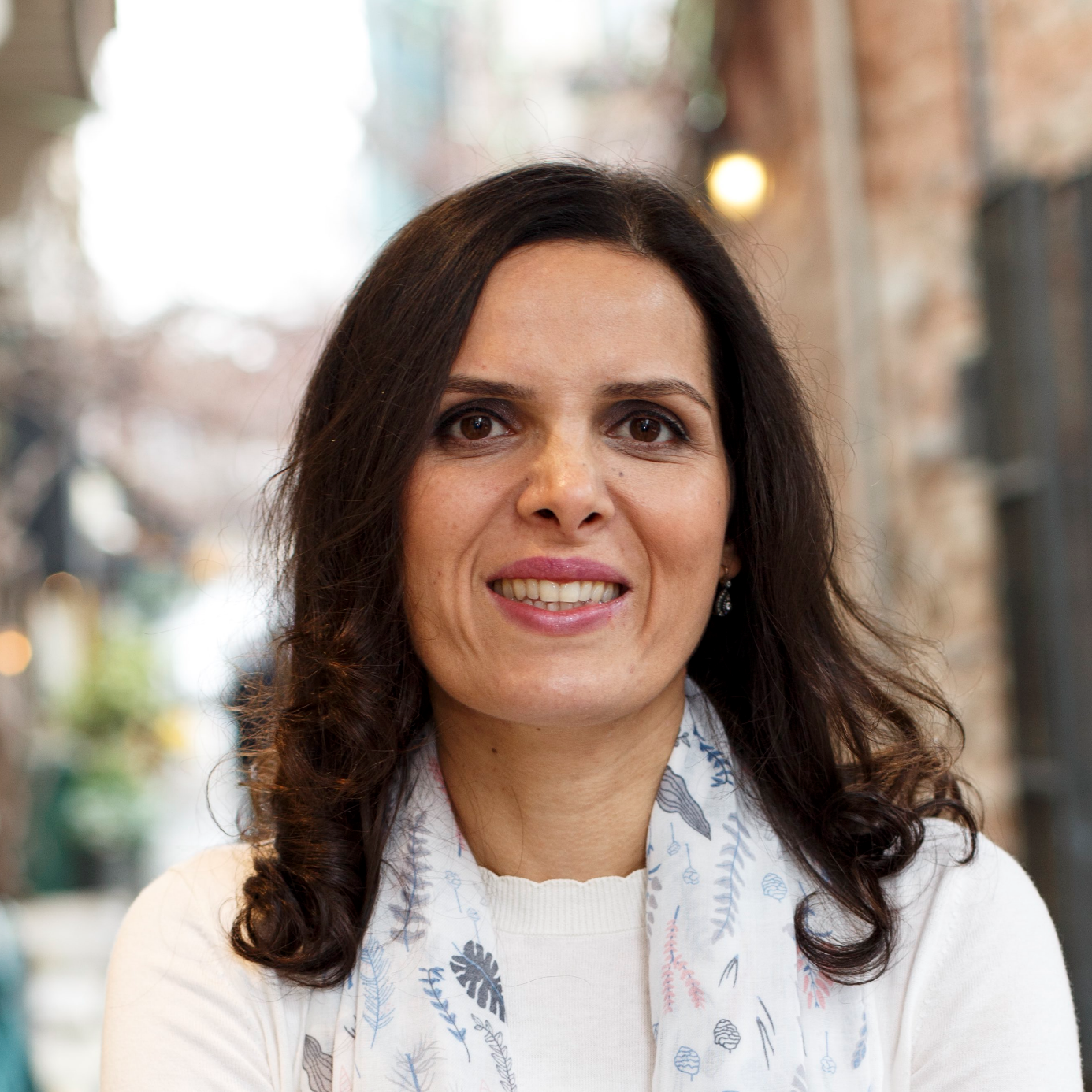
Elif Nur Fırat Karalar
Koç University College of Sciences, Department of Molecular Biology and Genetics, İstanbul, Türkiye
Dr. Elif Nur Firat-Karalar is an Associate Professor at Department of Molecular Biology and Genetics and School of Medicine at Koc University. She studied molecular biology and genetics at Bilkent University, Turkey. She then moved to US for her PhD work at the University of California, Berkeley, where she investigated the mechanisms of actin nucleation under the supervision of Matthew Welch. During her postdoctoral work in the laboratory of Tim Stearns at Stanford University, she used proteomics approaches and identified the centriole proteome and proximity interactome that revealed novel regulatory pathways for centriole biogenesis. Since 2014, she has been leading the cytoskeleton research laboratory at Koc University. Research in her lab focuses on studying the structure and function of the mammalian centrosome/cilium complex, with a particular focus on uncovering the molecular defects underlying developmental disorders affecting the eyes and brain. Elif is the first recipient of two ERC Starting Grants (2015, 2022) on her studies on the biology of centriolar satellites as well as other national and international grants including EMBO installation grant, Royal Society Newton Advanced Fellowship. Her research has been recognized by many awards including the EMBO Young Investigator Award, TUBITAK Incentive Award in Health Sciences and Sabri Ulker International Science Award.
Structure of EMAP II cytokine reveals high conformational flexibility of dual function NPKKK motif involved both in RNA binding and nuclear export

Oleksandr Kornelyuk
Institute of Molecular Biology and Genetics, National Academy of Sciences of Ukraine, Kviv, Ukraine
Profesor Oleksandr Kornelyuk obtained his PhD degree on Molecular biology from The Institute of Molecular Biology and Genetics of the National Academy of Sciences of Ukraine (IMBG NASU). Since 2001 he is head of department of Protein Engineering and Bioinformatics, IMBG NASU. His research areas contain Molecular mechanisms of action of aminoacyl-tRNA synthetases (APC) in higher eukaryotes and the role of functional dynamics in protein-nucleic acid recognition process, Protein engineering, construction of new proteins with modified and unique properties, Gene engineering technologies for cloning and expression of eukaryotic proteins and their mutants, Experimental and computational studies of intramolecular dynamics of proteins using fluorescence spectroscopy and computer modeling, Conformational changes of enzymes during substrate recognition, Development of nanocomposite complexes of anticancer proteins and Structural bioinformatics. His awards include a V.P. Komisarenko Prize of the National Academy of Sciences of Ukraine in 2013, an Commemorative award on the occasion of the 100th anniversary of the National Academy of Sciences of Ukraine in 2018 and a Medal of the National Academy of Sciences of Ukraine "For professional achievements" in 2020.
Neuroscience
Sleep well: The regulation of neural stem cell quiscence
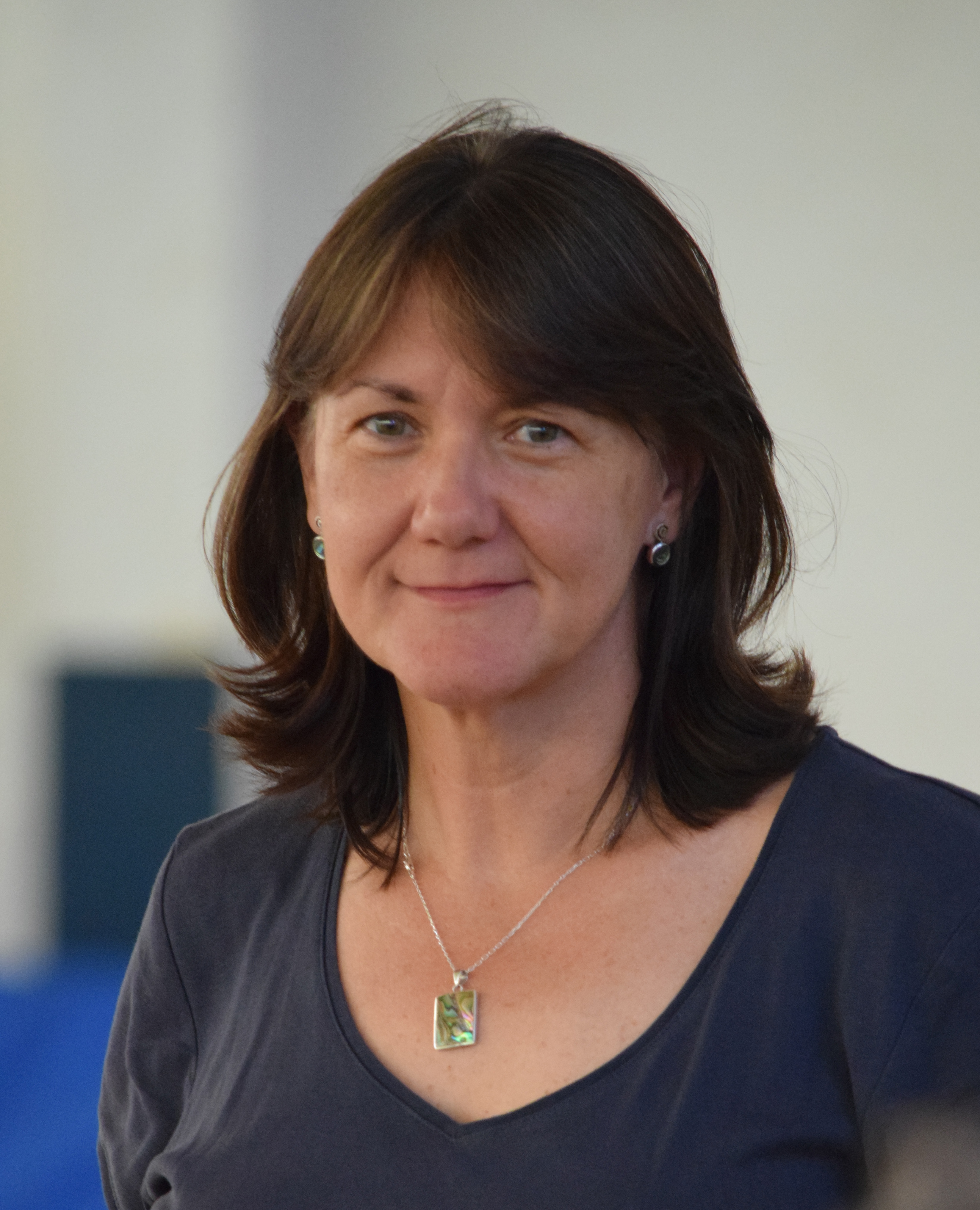
Isabel Farinas
Instituto de Biotecnología y Biomedicina, Departamento de Biología Celular, Universidad de Valencia, Valencia, Spain
She is Professor in Cell Biology and director of the Molecular Neurobiology Unit at the University of Valencia. Her postdoctoral studies at the University of California in San Francisco in genetically modified mice contributed to establish the essential functions of the neurotrophic factors. Her studies in Spain, as an independent researcher, have focused on the niche biology of neural stem cells (NSCs). Her group helped to establish that blood vessels are a key element of neurogenic niches, that NSC quiescence is an actively regulated state, the role of non-canonical functions of cell cycle regulatory molecules in the maintenance of NSCs or the role of cell adhesion and inflammation in the regulation of NSC states, among others. She has led more than thirty competitive research projects, including an ERC Advanced Grant, and published more than 120 articles, with high-impact contributions in journals such as Nature, Nature Cell Biology, Nature Neuroscience, Cell, Cell Stem Cell and Neuron, among others. She is part of the 2% of most cited scientists in the world. She has been a member of the boards of different Spanish and international societies and served in numerous scientific advisory boards. Her group belongs to the Center for Biomedical Research in Network on Neurodegenerative Diseases (CIBERNED), the Institute of Biotechnology and Biomedicine of the University of Valencia (BIOTECMED), and is Prometheus Group of Excellence of the Valencian Community. She is member of the European Molecular Biology Organization (EMBO) since 2013. She has served as president of the Biosciences and Biotechnology area of the Spanish Research Granting Agency (AEI). As for mentoring, and aside from intense teaching activity, she has directed more than twenty doctoral theses and supervised more than fifteen postdoctoral researchers, most of whom continue to work in research.
The Microglial Niche in neurodegeneration - Understanding. Pathology and targeting for immunotherapy
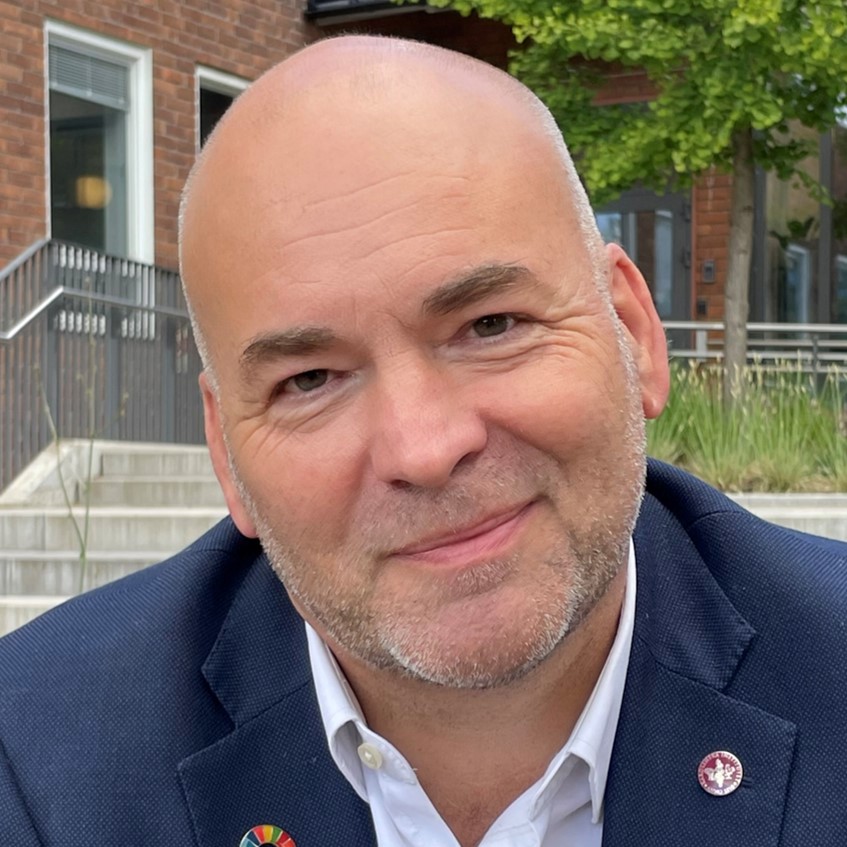
Robert Harris
Karolinska Institutet, Stockholm, Sweden
Robert A. Harris is Professor of Immunotherapy in Neurological Diseases, and Academic Vice-President of Doctoral Education, at the Karolinska Institutet, Stockholm, Sweden. The current focus of his research is development of novel immunotherapies for incurable neurodegenerative diseases. In the university education field, Harris is an inspiring and knowledgeable leader, lecturer and teacher, who has had a major impact on doctoral education at the Karolinska Institutet and internationally. He has taught extensively at undergraduate, Master’s and postgraduate levels for medical, biomedical and biology students, at the Karolinska Institutet and also at other universities in Sweden and abroad. He has also mentored MSc and PhD theses and supervised postdoctoral fellows. At the Karolinska Institutet, Harris has designed professional development teaching courses aimed at PhD supervisors at both basic and advanced levels, as well as introductory courses for PhD students. He also introduced new pedagogical tools to raise the professional standard of PhD supervision, including educational videos to explain doctoral educational and research support and to increase awareness of equity, diversity and inclusivity. At the international level, Harris has received many invitations to directly train or inspire in house training of PhD supervisors at other European universities, and has been an international evaluator of doctoral programmes at several universities. He was President of ORPHEUS (‘The Organisation for PhD Education in Biomedicine and Health Sciences in the European System’) from 2014 to 2022, where he oversaw development of the current ‘Best Practices in Doctoral Education’ handbook and contributed to a new 3-stage ORPHEUS accreditation process, which has had a major impact of development of quality assurance processes for doctoral programmes in three continents. In 2024 he received the first FEBS Education Award, and as of 1 Jan 2025 will serve on the FEBS Education and Training Committee.
Regulation of neuronal stem cell activity during tissue maintenance and regeneration of the zebrafish lfactory epithelium.
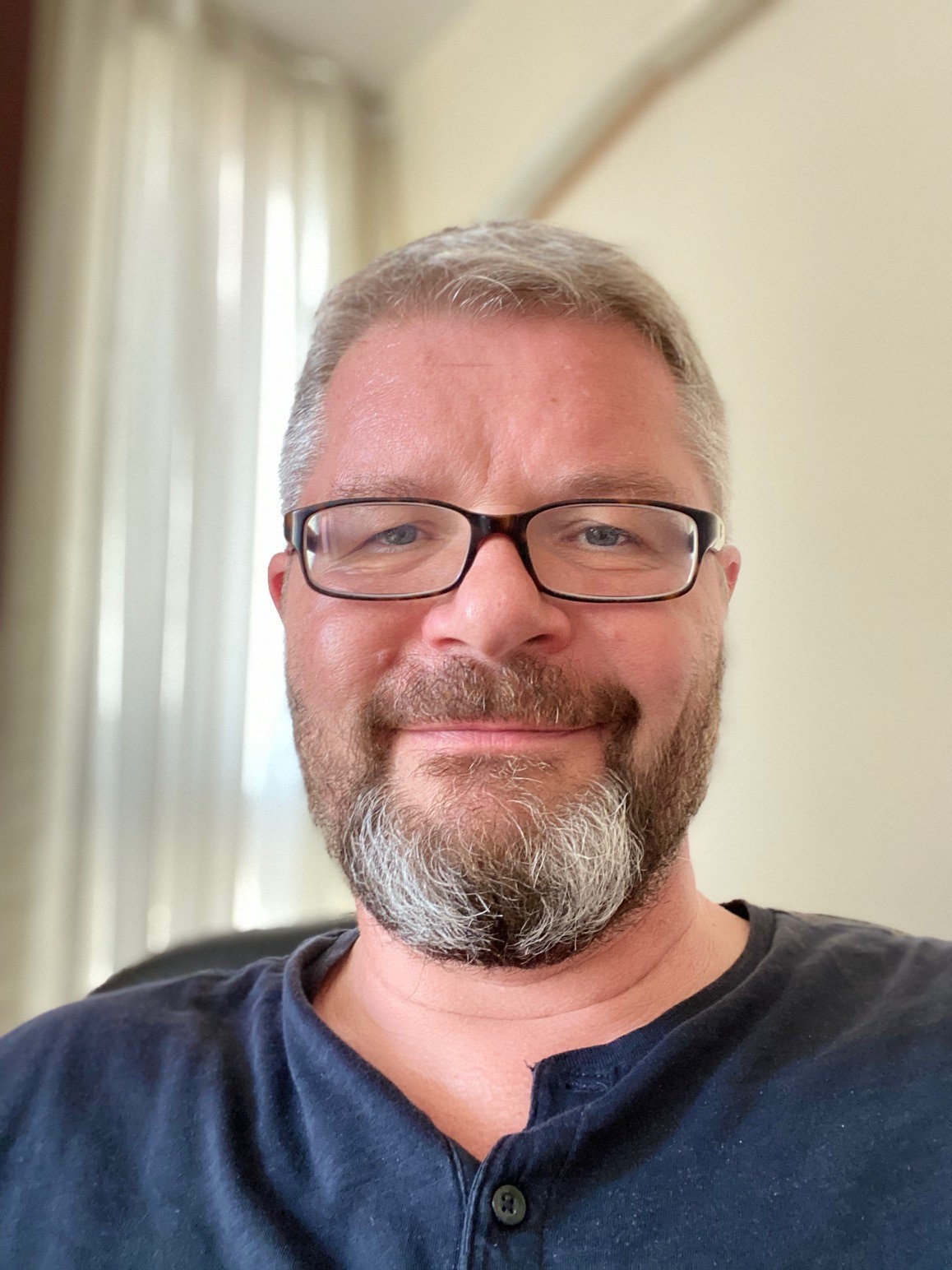
Stefan Fuss
Boğaziçi University Faculty of Arts and Science, Department of Molecular Biology and Genetics, İstanbul, Türkiye
Stefan H. Fuss received his MSc in Biology from Johannes-Gutenberg University in Mainz in 1997 and his PhD in Genetics from the University of Cologne in 2002. He was a postdoc at The Rockefeller University (Developmental Neurogenetics) between 2002 and 2006 before joining Bogazici University in Istanbul in 2007. His current research interests focus on neuronal stem cell regulation and nervous system regeneration using the zebrafish olfactory epithelium as a research model.
Mapping the rules of neurological disorders using single cell and spatial genomics
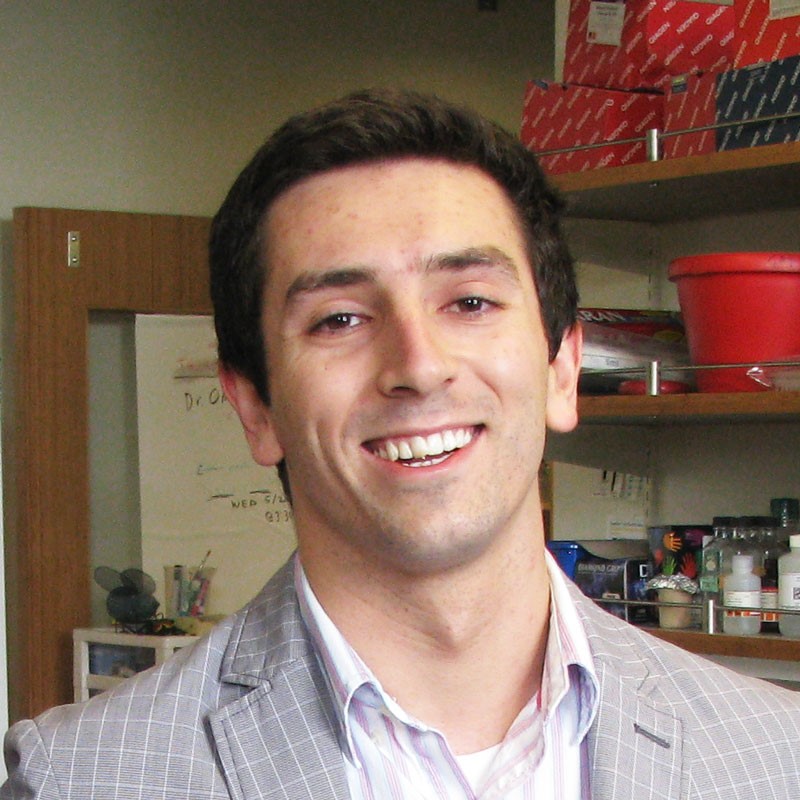
Ömer Bayraktar
Wellcome Sanger Institute, Hinxton, UK
Dr Bayraktar uses single cell and spatial transcriptomics technologies to characterize human brain cellular diversity in health and disease. During his training, Omer discovered neural stem cell patterning mechanisms (Nature 2013) and astrocyte layer diversity in the cerebral cortex (Nature Neuro 2020). Omer started his independent research group at the Wellcome Sanger Institute in 2018. His team has developed the cell2location computational tool to map fine cell types in spatial transcriptomics (Nature Biotech 2022). Omer is internationally funded by Wellcome LEAP, SFARI and CZI, and he steers spatial genomic strategy at the Sanger Institute.
EU Research Infrastructures Session
Welcome and Introduction
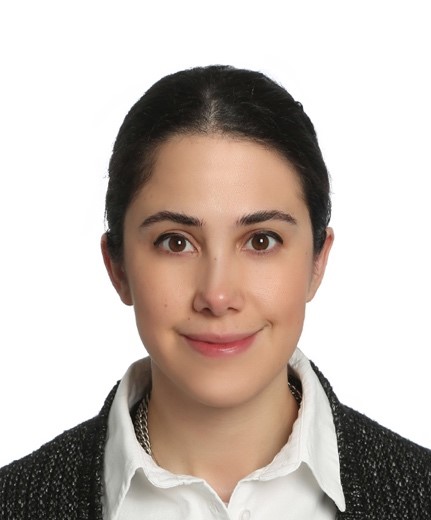
Yasemin Ucal
EU-OPENSCREEN
Yasemin holds a Bachelor's degree in Molecular Biology and Genetics from Istanbul Technical University (Turkey) and a Master's degree in Cancer Immunology from the University of Nottingham (UK). She earned her Ph.D. in Biochemistry from Acibadem University in Istanbul, focusing on developing mass spectrometry-based proteomics workflows. Following her doctorate, she conducted postdoctoral research at the Center for Mass Spectrometry and Optical Spectroscopy (CeMOS) in Mannheim, Germany, where her work centered on the clinical applications of MALDI-Mass Spectrometry Imaging. In December 2023, Yasemin joined the scientific management team at EU-OPENSCREEN, contributing to various EU projects and supporting user access.
DNA binding alters androgen receptor variant dimerization
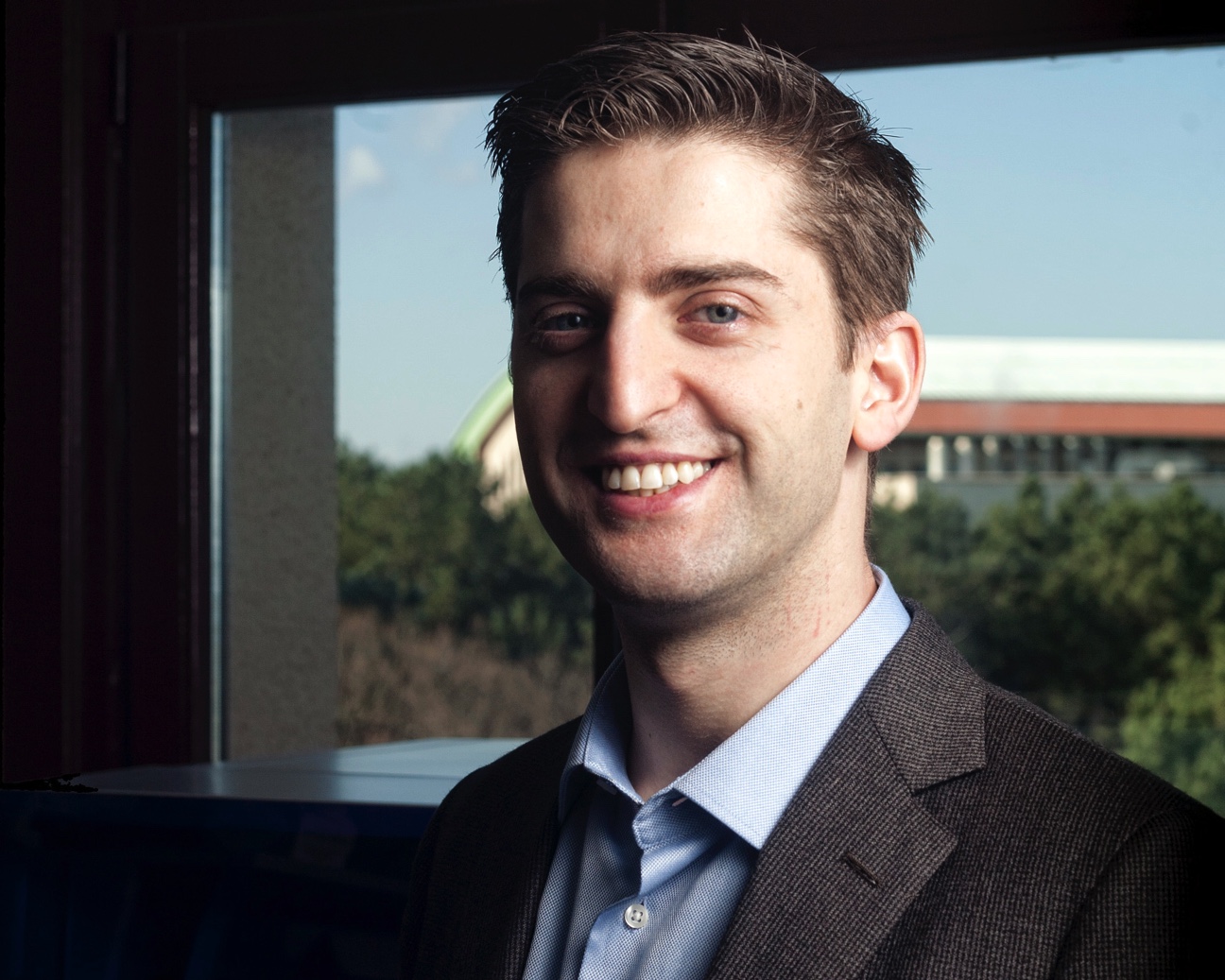
Nathan Lack
Koç University & University of British Columbia
Dr. Nathan Lack is a Senior Research Scientist at the Vancouver Prostate Centre. He obtained a DPhil (PhD) in Pharmacology from the University of Oxford in 2009 and then did a Postdoctoral Fellowship at the University of British Columbia with Dr. Emma Guns and Professor Paul Rennie. Nathan became an Assistant Professor at Koç University in the School of Medicine (Istanbul) in 2011 and was awarded Associate Professorship in 2015. He joined the Vancouver Prostate Centre as an independent researcher in 2017. His laboratory works to better understand the molecular underpinnings of prostate cancer to develop more effectively treatments for this common disease. Since its inception, the Lack Laboratory has secured significant funding from national, international, and industrial sources and published its findings in high-impact journals. Beyond his academic research, Dr. Lack contributed to the development of the FDA-approved therapeutic Plerixafor and played a key role in advancing AR antagonists that are now in Phase II clinical trials.
INFRAFRONTIER: Cutting-Edge Human Disease Modelling
Michael Raess
INFRAFRONTIER
Michael Raess completed his PhD in behavioural physiology at Ludwig-Maximilians University Munich and the Max Planck Institute of Behavioural Physiology, where he also carried out postdoctoral research. His research focused on understanding physiological and behavioural adaptations to different environments. In addition to his scientific background, he pursued an MSc in Science Communication and Marketing at the Technical University of Berlin, equipping him with expertise in effectively communicating scientific concepts to diverse audiences and managing research-driven initiatives. In 2008, he joined Helmholtz Munich as Lead Project Manager for the INFRAFRONTIER Preparatory Phase and Head of the INFRAFRONTIER Project Office. In this role, he was responsible for overseeing the development and implementation of INFRAFRONTIER as a pan-European research infrastructure, coordinating large-scale research collaborations, and securing funding for the infrastructure. Since 2014, he has served as Head of General Management at INFRAFRONTIER GmbH (now INFRAFRONTIER ERIC), the coordination office of INFRAFRONTIER, the European Research Infrastructure for Modelling Human Diseases.
Pioneering intranasal siRNA-based Nanovaccine
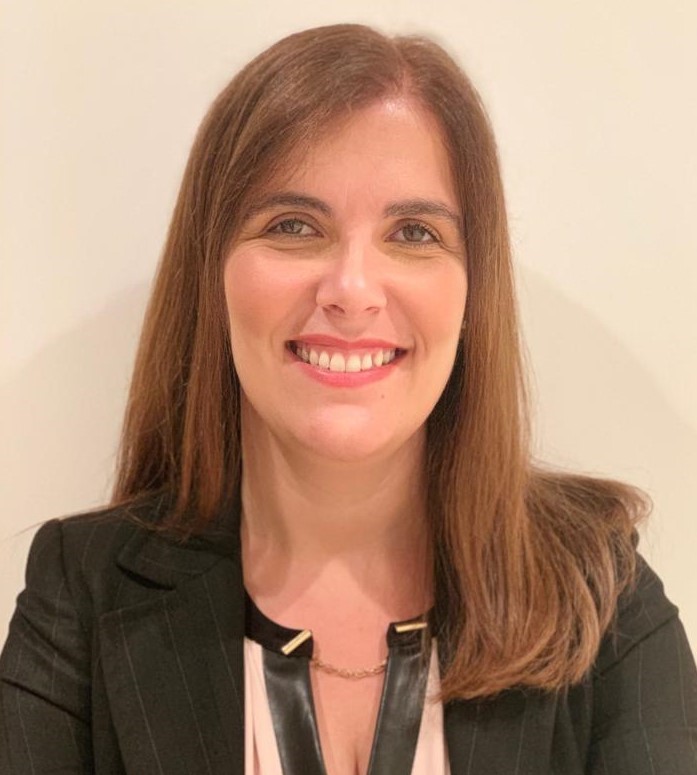
Helena Florindo
University of Lisbon, Lisbon, Portugal
Helena Florindo graduated in Pharmaceutical Sciences in 2003 (University of Lisbon) and obtained her Ph.D. degree in Pharmaceutical Technology in 2008 (University of Lisbon), in collaboration with the University of London. Currently, she is a Full Professor in the Department of Pharmacy, Pharmacology, and Health Technologies at the Faculty of Pharmacy, University of Lisbon. Since 2015, she has been the head of the BioNanoSciences – Drug Delivery & Immunoengineering Research Group, at the Research Institute for Medicines (iMed.ULisboa), University of Lisbon. Helena is also a member of the Portuguese Medicines Agency Evaluation Board (INFARMED) and an expert to the European Medicines Agency (EMA), thus supporting the evaluation of marketing authorization procedures for new drugs and biologics. This knowledge in regulatory sciences also guides the research within her research group, which has been focused on the rational development of functionalized nanomaterials as new therapies or vaccines for infectious diseases and cancer. It includes the characterization of the anti-tumor effects induced by the combination of nano-vaccines with nano-therapeutics designed to modulate the functions of key cells within tumor microenvironment, such as T cells, myeloid-derived cells, and tumor cells.
EU-OPENSCREEN – A collaborative initiative to accelerate early drug discovery
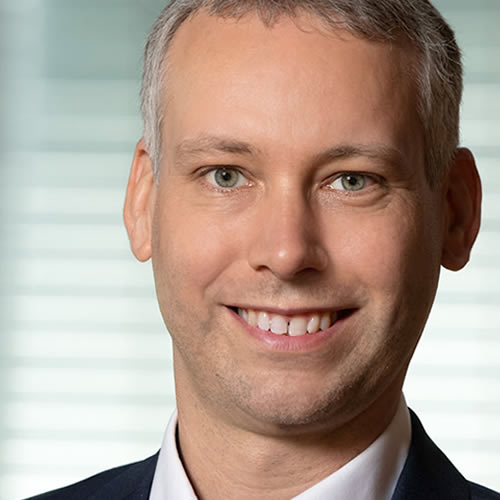
Bahne Stechmann
EU-OPENSCREEN ERIC, Berlin, Germany
Bahne Stechmann is a cell biologist by training and worked in academia and biotechnology. His PhD work led to the discovery of the first small molecules that show efficacy against ricin in animal experiments (Stechmann et al., Cell 2010). Bahne is the Deputy Director at EU-OPENSCREEN, a multinational research infrastructure initiative which supports collaborative projects in Chemical Biology and early Drug Discovery.
Investigating the mechanism of action of newly discovered anti-prion compounds via chemoproteomics
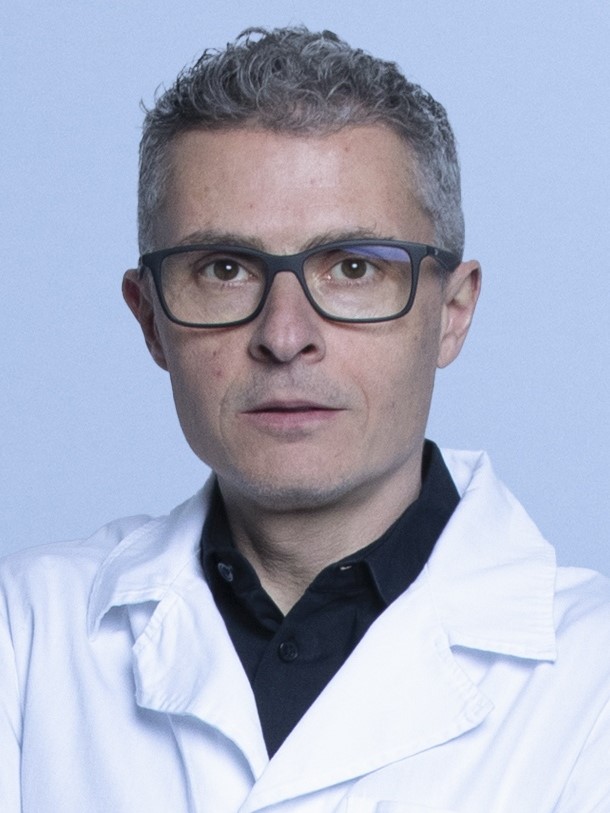
Emiliano Biasini
University of Trento Department of Cellular, Computational, and Integrative Biology, Italy
Dr. Emiliano Biasini is an Associate Professor at the Department of Cellular, Computational, and Integrative Biology (CIBIO) at the University of Trento, Italy, where he directs the Dulbecco Telethon Laboratory of Prions and Amyloids (https://www.cibio.unitn.it/95/dulbecco-telethon-laboratory-of-prions-and-amyloids). He is also a co-founder of Sibylla Biotech SRL (www.sibyllabiotech.it), a company that exploits information from folding pathway reconstruction for drug discovery in human pathologies. Biasini's research delves into the complex interplay of protein dynamics across physiology and disease, focusing on neurodegenerative diseases. By employing a multidisciplinary approach that encompasses computational, chemical, biophysical, biochemical, and cellular techniques, his lab aims to develop novel experimental therapies for prion diseases. Other key interests include protein expression and function regulation in eukaryotic cells, particularly protein folding pathways and their potential disruption in disease. Biasini's team is pioneering the development of pharmacological agents that target non-native protein states to combat protein misfolding disorders, leveraging insights from innovative computational technologies and experimental strategies.
Instruct-ERIC – Access to latest Structural Biology technologies and training in Europe
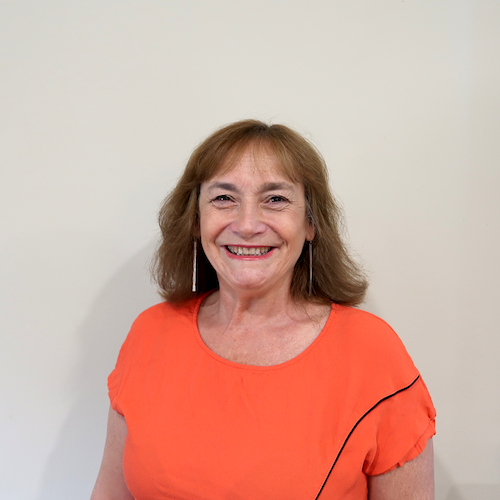
Claudia Alén Amaro
Instruct-ERIC, Oxford, UK
A biochemist by training with a decade of research experience mainly at the University of Oxford, I move to European project management with a FP6 integrated project coordinated from Imperial College. I have been involved in the design and set up of Instruct since the start in May 2008. Now Instruct is in its operational phase and our office manages the provision of access to infrastructure to structural biologists around Europe and the world. We also organise Instruct training program including courses and internships and R&D pilot project awards. We organise consortium meetings as well the Instruct Biennial Structural Biology Meeting.
Since the 2022 I am Head of Operations of Instruct coordinating the activities of the Instruct Coordination Centre. In my new role I oversee all activities of Instruct with a particular interest on internationalisation.
The Mechanism of Lipid-targeting antibiotics
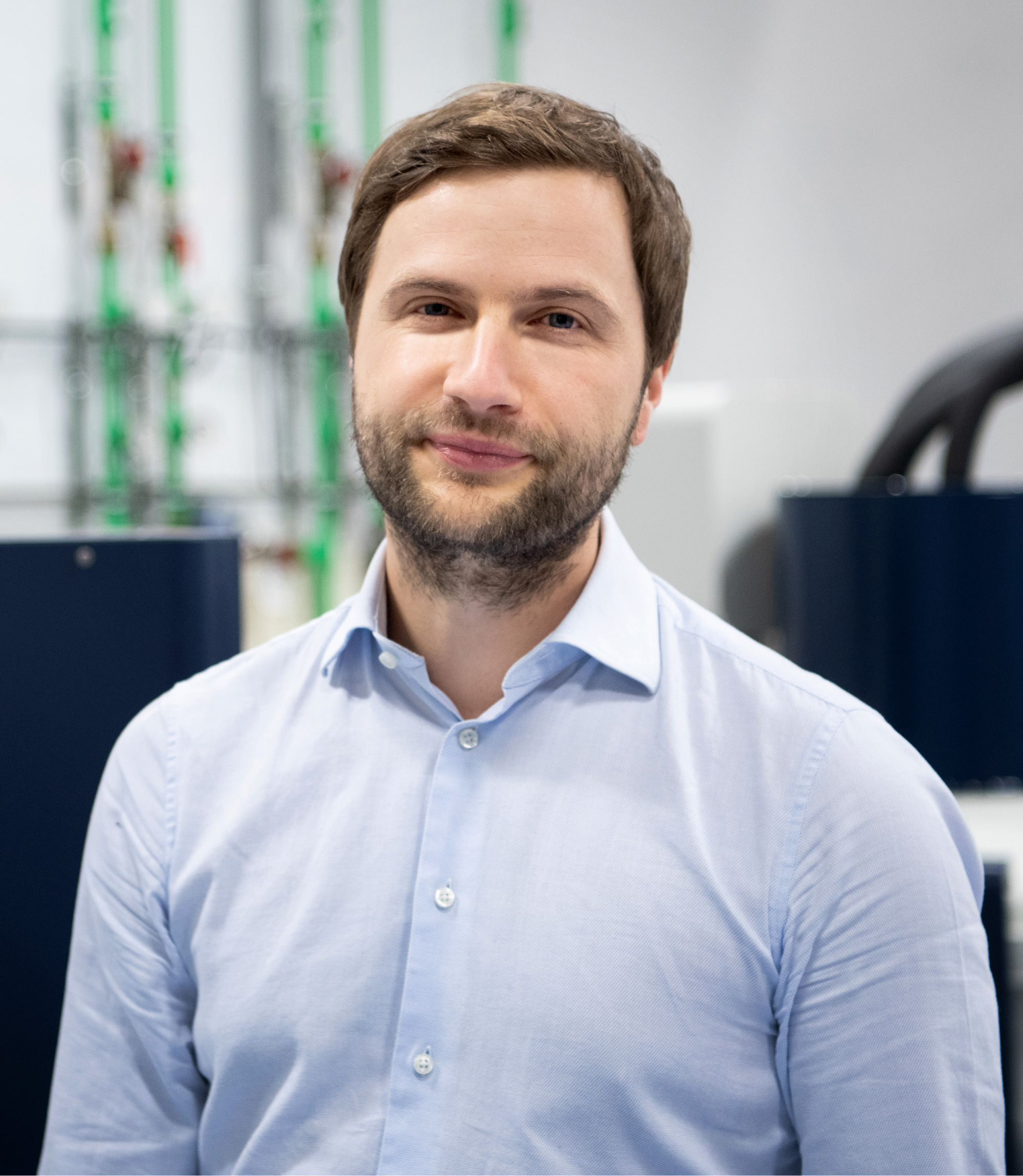
Markus Weingarth
Utrecht University, Netherlands
Markus Weingarth (1982) is Associate Professor of NMR Spectroscopy at Utrecht University with a fundamental interest in the molecular mechanism of antibiotics. Employing integrative structural biology approaches, firmly anchored in the core expertise solid-state Nuclear Magnetic Resonance, Weingarth’s group dissects the action of antimicrobials that attack bacterial cell envelopes. His team has discovered novel supramolecular killing mechanisms, which has shifted the conventional ‘1 drug : 1 target’ paradigm. In addition, Weingarth has spearheaded the development of solid-state NMR methods to study the truly native action of antibiotics directly in intact bacteria and at high-resolution, i.e., in medically relevant conditions. For his antibiotics research, Weingarth has received several distinctions, including an ERC Consolidator grant (2022) and the ‘Founders’ Medal’ (2022) of the ‘International Council on Magnetic Resonance in Biological Systems’.
Protein Life Cycle III: Degradation: Proteases, Proteasome, Autophagy
Autophagy and cancer
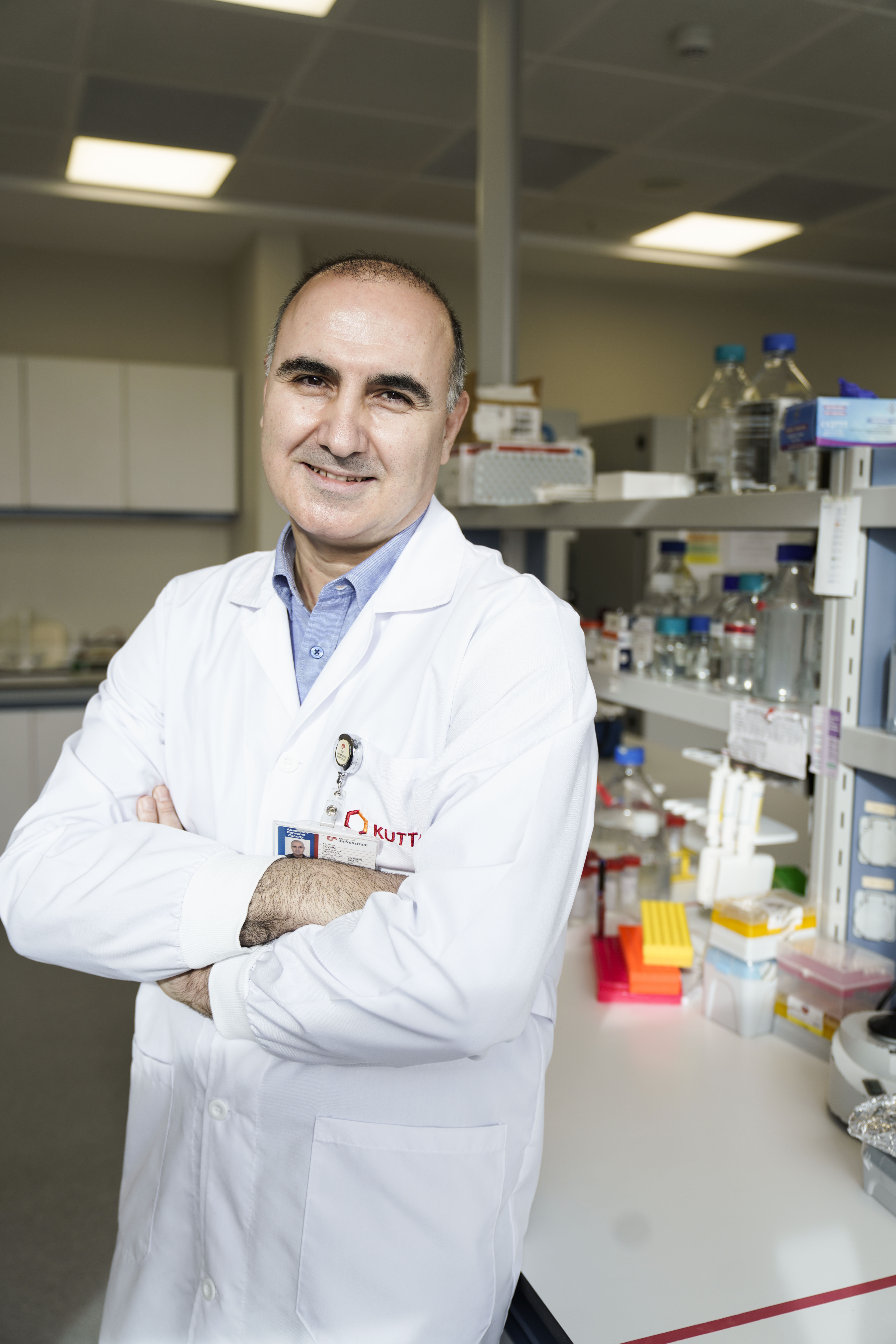
Devrim Gözüaçık
Koç University School of Medicine, Department of Medical Biology, İstanbul, Türkiye
Professor Devrim Gozuacik obtained his MD degree from Hacettepe School of Medicine, his MS degree of Biochemistry from Ecole Polytechnique, Paris and his PhD degree of cancer cell biology from Pasteur Institute and Necker Children's Hospital and Research Center, Paris. Then, he moved to the Weizmann Institute of Science for his postdoctoral studies on cancer-cell death connections. After 14 years of academic career in Sabanci University, he was appointed in 2020, as a Research Professor in Koç University School of Medicine and as a Senior Researcher in Koç University Research Center for Translational Medicine (KUTTAM). Prof. Gozuacik serves as a Member of the Management Board of Izmir Biomedicine and Genome Center, an Advisory Board Member of the NIH-supported AIM Center of Biomedical Research Excellence in the University of New Mexico, USA, an Advisory Board Member of Hacettepe Institute of Child Health and a Board Member of New York-based International Cell Death Society. He also serves as the Associate Editor of the Autophagy journal (SCI IF: 13.3), an Editorial Board Member of Cancer Letters (SCI IF: 9.7) and Cell Communication and Signaling journals (SCI IF: 8.4) and The Turkish Journal of Biology. In the past, Prof. Gozuacik served as an Advisory Board Member of TÜSEB Biotechnology Institute. He played an active role in the establishment of EFSUN Nanodiagnostics Center of Excellence and contributed as a Founding Board Member. He was also a Founding Board Member of Turkish Molecular Biology Association (MBD) and Cell Death Research Association (HÖAD). Furthermore, he served as a project and academic referee for international agencies, such as Cancer Research-UK, Wellcome Trust and several European national or international granting agencies. Prof. Gozuacik is a recipient of several scientific awards, including Hoffmann-La Roche Future Leader of Biotechnology, EMBO-SDIG Award, TGC Sedat Simavi Award, TÜBA-GEBİP Award, IKU Onder Oztunali Award and Elginkan Technology Award and TÜBİTAK Science Award in Health Sciences. Prof. Gozuacik gave invited talks in >100 conferences, including Gordon Research Conferences, EMBO Meetings and Keystone Symposia, and co-organized 11 international conferences in Turkey and abroad. He is the author of >100 publications that received >20.000 citations. He filed 12 medical patents. Dr Gozuacik's research focuses on the study of basic autophagy signaling in mammalian cells and autophagy abnormalities in human diseases, especially in cancer.
Lysosome integrity - A matter of life and death

Harald Stenmark
Centre for Cancer Cell Reprogramming, Oslo University Hospital, Oslo, Norway
Harald Stenmark made his PhD with Sjur Olsnes at the Norwegian Radium Hospital and was postdoc with Marino Zerial at EMBL, Heidelberg. He currently leads a research group at Institute for Cancer Research, Oslo University Hospital, and he is director of a Norwegian Centre of Excellence, Centre for Cancer Cell Reprogramming. Stenmark is interested in the molecular mechanisms of endocytic membrane traffic and autophagy and their relevance to cancer. His group has been characterizing the functions of phosphoinositides and ESCRT proteins in these processes.
The role of peptidases in shaping the fate of immune cells in tumor microenvironment
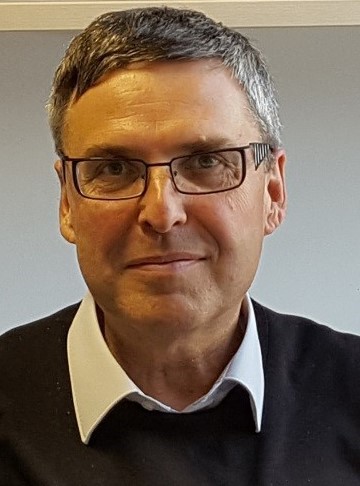
Janko Kos
Jožef Stefan Institute, Ljubljana, Slovenia
Prof. Janko Kos has made significant contributions to basic and translational studies of proteolytic enzymes and their inhibitors. He has been studying their role in processes leading to the development and progression of cancer, immune disorders, and neurodegenerative diseases. He established the diagnostic and particularly prognostic potential of cysteine cathepsins in cancer and focused his work on new diagnostics for application in oncology, which have been translated to clinical application. He was further involved in the development of new peptidase inhibitors and nanoscale drug delivery systems for targeting of tumour cells. Currently he is investigating the role of the proteolytic system in the anti-tumour immune response. Specifically, he focuses on how cysteine cathepsins regulate the cytotoxicity of NK cells and CTLs by activating granzymes and perforin. The proteolytic activity of these enzymes correlates strongly with the efficacy of these immune cells in destroying cancerous cells. Conversely, tumour cells utilize peptidase inhibitors, like cystatin F as suppressive immune modulators to impair the function of cytotoxic cells. The regulation of cystatin F as an immune suppressive factor by lowering its expression, activation, and trafficking represents a promising approach to improving cancer immunotherapy. The results of his work have been published in over 320 scientific papers and book chapters and complemented by 70 invited lectures at conferences and institutions. The relevance of his scientific work is reflected in a number of patents and citations with an H index 58 (WoS).
Tracing Biomarkers from Bench to Bedside
Rapid but reliable: The evolution of viral diagnostic assays with TR-FRET
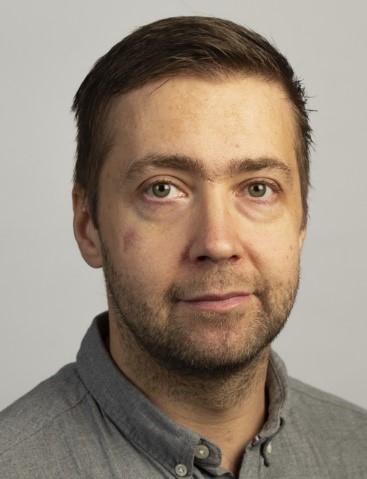
Jussi Hepojoki
University of Helsinki, Medicum, Department of Virology, Helsinki, Finland
Dr. Jussi Hepojoki, based at the University of Helsinki (Docent/Associate professor in Virology) and University of Zürich (Privat Dozent in Viral discovery and molecular pathogenesis), is a virologist with a background in biochemistry and bioengineering. In Helsinki, Dr. Hepojoki holds Sigrid Jusélius senior researcher position, is a HiLIFE (Helsinki Institute of Life Sciences) research fellow and affiliates also to HOH (Helsinki One Health), whereas in Zürich Dr. Hepojoki is employed as a Wissenschaftlicher mitarbeiter (an Academic Associate). His research focuses on virus-host interactions, immune responses, virus discovery, molecular biology of viruses, and the development of molecular biology tools applicable e.g. to infectious disease diagnostics. The viruses (co-)discovered and characterized by Dr. Hepojoki and colleagues have led to establishment of novel taxonomic ranks, and he is a member in several ICTV (International Committee on Taxonomy of Viruses) study groups. In addition, he has been active in the creation of time-resolved Förster resonance energy transfer (TR-FRET)-based homogeneous (mix-and-read) diagnostic assays for antibody or antigen detection. He is the inventor of a patented protein L-based bioassay for antibody detection, demonstrated to provide high sensitivity and specificity for the detection of antibodies in both viral (Zika virus, orthohantavirus, and SARS-CoV-2) infections and in autoimmune disease (celiac disease). During COVID-19 pandemic Dr. Hepojoki’s group also developed a mix-and-read antigen detection assay for demonstrating acute SARS-CoV-2 infection. The details of Dr. Hepojoki’s past and recent publication activity can be accessed e.g. via Google Scholar (https://scholar.google.com/citations?user=-jpV0yYAAAAJ&hl=fi).
Revolutionizing sepsis care: The role of circulating histones as clinical biomarkers
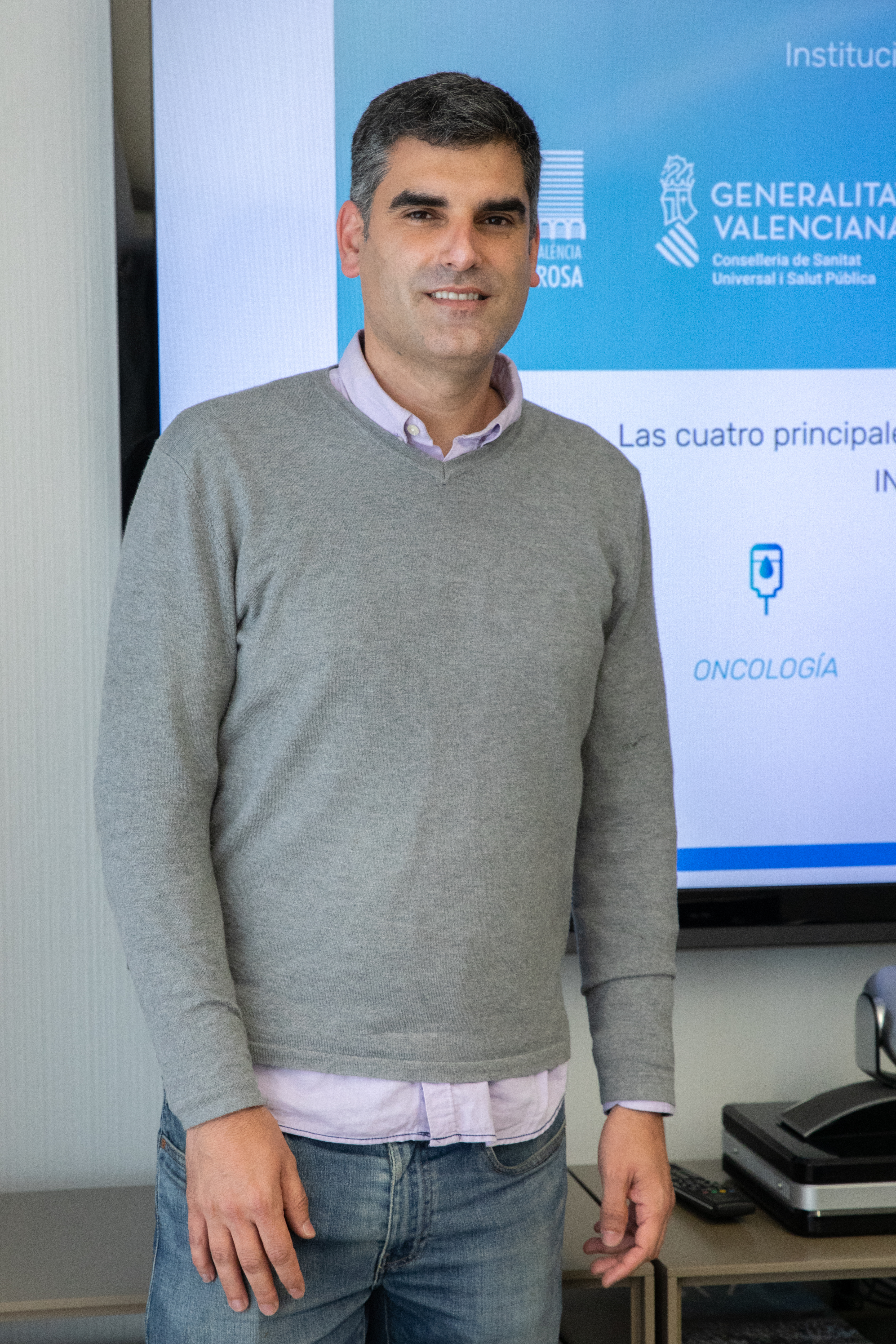
Jose Luis Garcia-Gimenez
Centro de Investigación Biomédica en Red de Enfermedades Raras · Dept. Physiology Universitat de València, Valencia, Spain
José Luis García-Giménez (1979, Spain), Ph.D., Bachelor in Chemistry and Bachelor in Biochemistry (University of Valencia). PhD. Degree in Chemistry (University of ValenciaCIBER’s PhD Researcher from May 2007 to February 2015. Assistant Professor in the Department of Physiology in the Medicine and Dentistry School in the University of Valencia. Professor in the Master program of Physiology, Master program in Biomedicine and Master in Rare Diseases. Dr. García is PI of the emergent research group “Translational Epigenetics and Epigenomics” in the Biomedical Research Institute INCLIVA. Over 17 years of continuous research in 37 funded projects (12 as PI) in national and international projects. He is author of more than 100 publications and 7 chapters in the field of rare diseases, epigenetics, biomarkers, and oxidative stress. Dr. García is Editor in Chief of Translational Epigenetic Series Volume “Epigenetic Biomarkers and Diagnostics” Academic Press Elsevier (2015) and the volume “Epigenetics in Precision Medicine” (2021). He is inventor of 4 technologies related with epigenetic biomarkers, protected with 4 different international patent families, and co-founder of EpiDisease S.L. (Spin-Off from the Spanish Institute of Health ISCIII), which is developing epigenetic-based IVD solutions. Dr. García has received 10 scientific and entrepreneurship national and international awards, including the National Award for Young Entrepreneurs in 2013 (awarded by the Spanish Ministry of Health) and the Leopold’s Flohe Award from the International Free Radical Research Society, the First Prize in The 2nd China (Jinan) New Growth Drivers International Innovation and Entrepreneurship Contest in 2019 and The First prize in The 2nd Eureka International Innovation and Entrepreneurship Competition in Melbourne (Australia).
Translational omics innovations to drive personalized health(care)
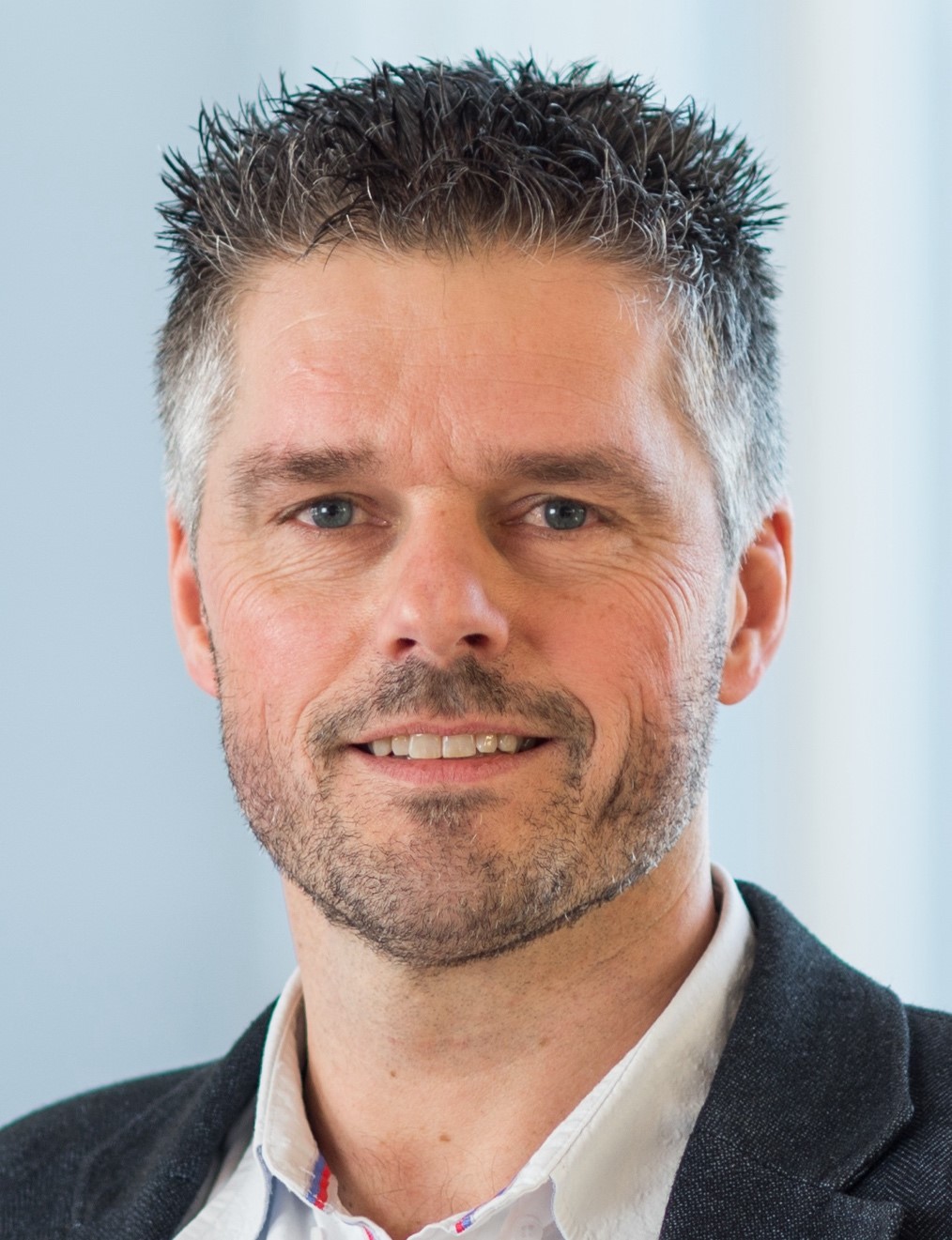
Alain van Gool
Radboud University, Faculty of Medical Sciences, Nijmeneg, Netherlands
Alain van Gool is professor Personalized Healthcare at the Radboud university medical center, with a strong passion in the application of biomarkers in translational medicine and personalized healthcare. After his study (biochemistry, 1991) and PhD (molecular biology, 1996) Alain worked at a mix of academia, pharmaceutical industries (Organon, Schering-Plough, MSD), applied research institutes (CancerUK, TNO) and university medical centers in Europe, Asia and USA. He has been leading technology-based biomarker laboratories, cross-functional expert teams, therapeutic project teams and public-private consortia, many of which were focused on the discovery, development and implementation of translational biomarkers in a variety of therapeutic areas. His technical expertise resides most strongly in molecular profiling (various Omics approaches), analytical biomarker development and applications in translational scientific research. Alain currently coordinates several biomarker/omics/data/AI programs as part of the department of Human Genetics including Lead PI of the Netherlands X-omics Initiative; Director of the Healthy Data Program; Coordinator of the Sectorplan Data-driven innovation; Domain Leader MedTech & Data Sciences of the Radboudumc Research Institute for Medical Innovation, and Chair Biomarker Platform of EATRIS (the European infrastructure for Translational Medicine), thus contributing to the organisation and coordination of local, national and European technology infrastructures.
Biotechnology and Enzyme Engineering
A toolbox for the engineering of photosynthetic light reactions for environmental sustainability
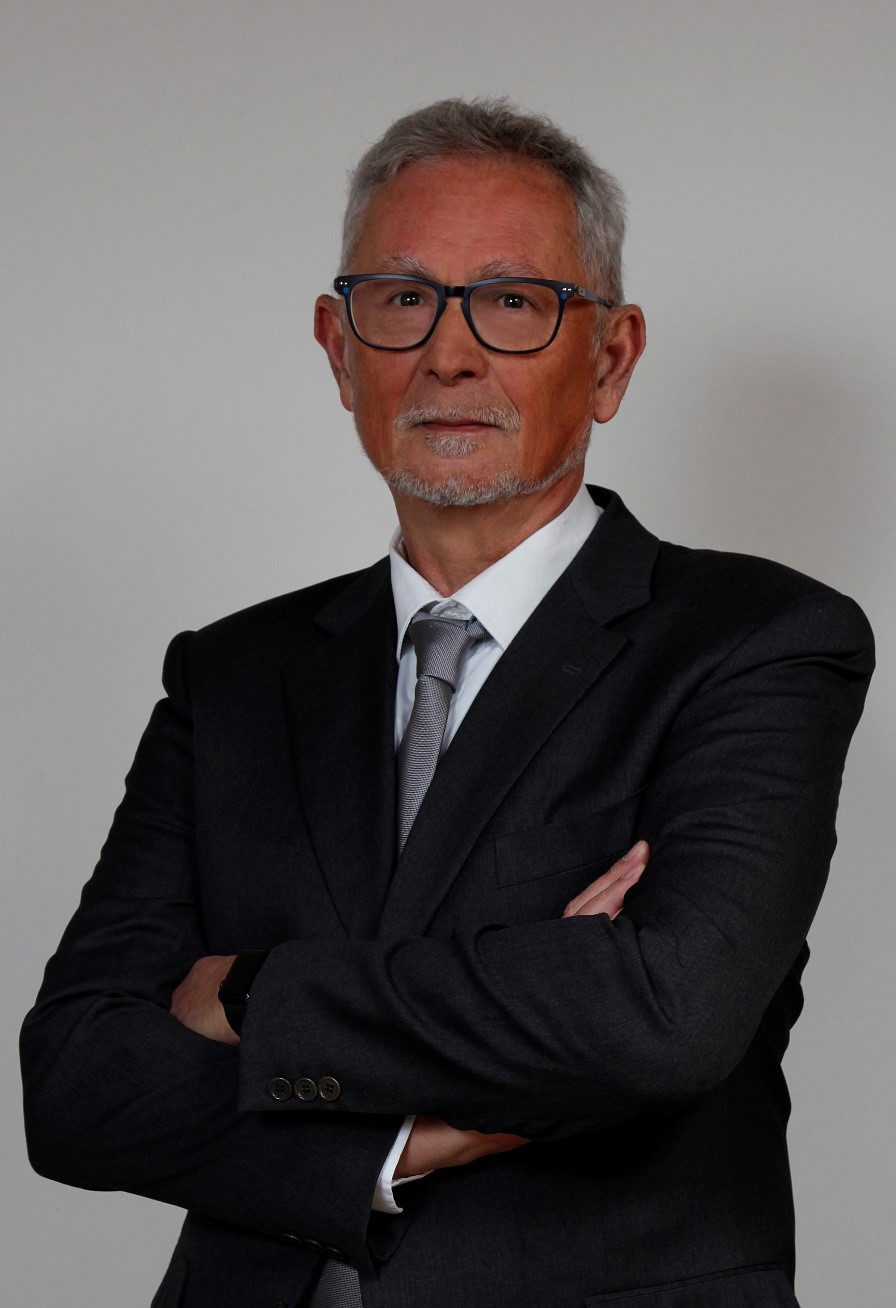
Roberto Bassi
Università di Verona, Verona, Italy
Roberto Bassi, Vicenza (I), 1955. Graduated in Biology at the University of Padua (1977), he worked as a microbiologist and botanist at the same University until 1983. He then specialized in genetics in Copenhagen, biophysics in Paris and molecular biology in Geneva. He has taught Plant Biochemistry, Physiology and Synthetic Biology in Padua, Urbino, Marseille, Lausanne and Verona. His research focuses on the structure and function of photosynthetic systems of plants and algae and the physiology of environmental stresses, with the aim of optimizing the efficiency of light conversion into biomass and devising biotechnological solutions for environmental sustainability. He has published more than 300 articles in international journals. He is a member of the National Academy of Lincei, the National Academy of Technology, the EMBO, the European Academy and others. He has been awarded the Baccarini-Melandri Prize, the Herlitzka Prize for Physiology, the von Humboldt Prize, the Chinese Academy of Sciences Prize and the Miller Research Award at Berkeley. It is P.I. of the ERC advance grant GrInSun (2022-2027). In Naples, he has been the Chair of the scientific advisory board of the Anton Dorhn Experimental Station, of which he is currently the President.
Halophiles & the saline world: Are fructans the key to survive?
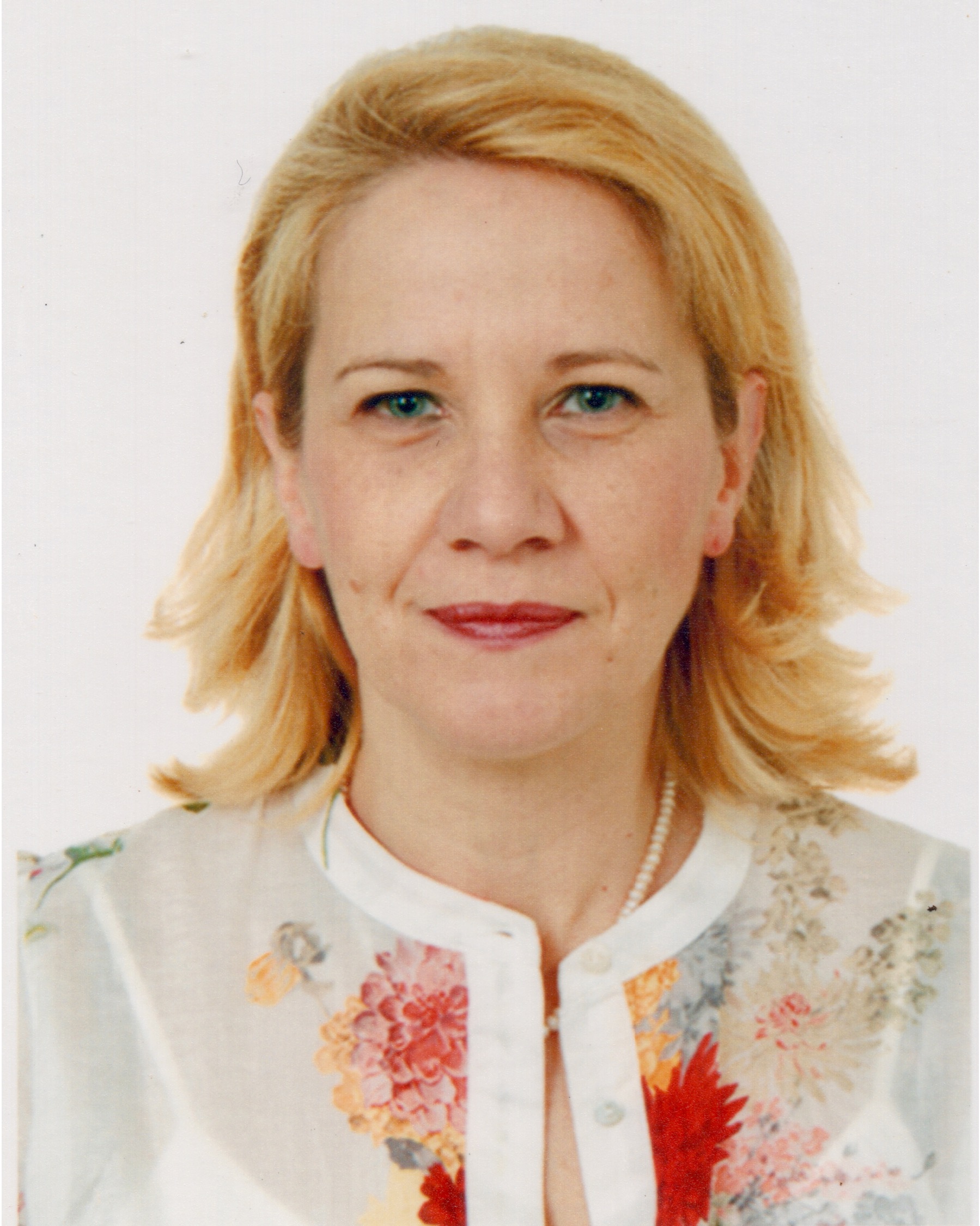
Ebru Toksoy Öner
Marmara University Faculty Of Engineering, Department Of Bioengineering, İstanbul, Türkiye
Dr. Ebru Toksoy Öner received her PhD degree in Chemical Engineering in 2000 and currently she is working as a Professor at the Bioengineering Department of Marmara University (Istanbul, Turkey). She is the Principal Investigator of the Industrial Biotechnology and Systems Biology (IBSB) research group (http://ibsb.bioe.eng.marmara.edu.tr ; www.halomonaslevan.com ). Dr. Toksoy Öner’s current research in IBSB focuses on biomaterials, tissue engineering and regenerative medicine, functional foods and systems microbiology. Ongoing research topics are functional biosurfaces, extremophiles, fructans, levan polysaccharide, strain improvement for exopolysaccharide production, production of biopolymers form extremophiles, and optimization of fermentation processes to design high-yield production lines. Dr. Toksoy Oner has been the coordinator of several national and international projects and partner in COST Actions. She is the Editor of The Book of Fructans and author of book chapters, reviews and over 140 peer-reviewed research articles.
You’ll never walk alone: Combining enzymatic and physical treatments to improve quality and sustainability in food systems
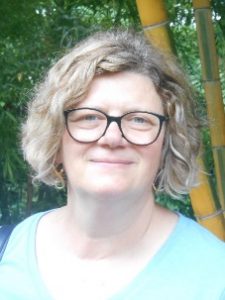
Stefania Iametti
Italian Society of Biochemistry, The International Union of Biochemistry and Molecular Biology, Italy
Stefania Iametti has spent its career at the University of Milan, where she got a PhD in Food Biotechnology in 1987. She is currently full professor of Biochemistry, with teaching duties in Human Nutrition and in Food Sciences. Her research has dealt with the assembly and insertion of micronutrient-derived cofactors in proteins, with metal metabolism, and with process-induced modifications in food and non-food proteins. She also tackled issues related to food allergens, to the impact of nutrients on the immune system, and to the mechanism of action of food-derived bioactives. Her activities had been in the frame of national and international programs, some of them requiring long-standing collaborations in Germany, the USA, and Denmark. She also had projects in Israel, Ghana, Benin, Uzbekistan and Kazakhstan. She is currently the Treasurer of the Italian Society of Biochemistry, an internal auditor for IUBMB, and an associate editor for “BioFactors”.
Exploring Next-Generation Sequencing Technologies for the Discovery of Extremozymes from Tunisia’s Extreme Biotopes for Application in Sustainable Industrial Processes

Bassem Jaouadi
Centre of Biotechnology of Sfax (CBS), University of Sfax, Laboratory of Microbial Biotechnology and Engineering Enzymes, Sfax, Tunisia
Dr Bassem Jaouadi is currently a full professor of Biochemistry and Molecular Biology at the Centre of Biotechnology of Sfax (CBS). His research interests in the Laboratory of Microbial Biotechnology and Engineering Enzymes (LMBEE) deal with screening, cloning, expression, protein engineering, and industrial applications of extremozymes (e.g., proteases, keratinases, lipases, phospholipases, chitinases, amylases, and peroxidases). Dr Jaouadi has co-founded a biotech start-up, “Biotech-ECOZYM”, and spin-off “ENZYin”, both incubated at the CBS Business Incubator and LMBEE, and provides technical assistance for setting up biotech companies. Dr Jaouadi holds an HDR in Biological Engineering (2014) and a PhD in Biological Sciences (2009) from the University of Sfax, Tunisia. His doctoral research, conducted in close collaboration with the Laboratory of Biocrystallography at the University Claude Bernard Lyon 1, Lyon-France, focused on the biochemical and molecular characterization of a novel glycosylated alkaline protease from Bacillus pumilus strain CBS. Dr Jaouadi has led several industrial, national, and international R&D biotechnology projects with industry partners to advance biotechnology in Tunisia, Algeria, Morocco, South Africa, France, Germany, Finland, Malaysia, and South Korea. Since 2021, Dr Jaouadi has served as the WP1 Leader in the Horizon Europe CSA-Twinning project “NGS-4-ECOPROD”, bioprospecting extreme Tunisian biotopes for the discovery of new extremozymes through metagenomic and genomic approaches. He is also an active member of the ENI Cross-Border Cooperation Programme Italy-Tunisia project “ARIBiotech”.
AI - revolutionizing Comparative Genomics and Molecular Evolution & AI - Application in Basic and Applied Biomolecular Sciences
Combining simple biophysical models with deep learning for the improved characterization of intrinsically disordered proteins
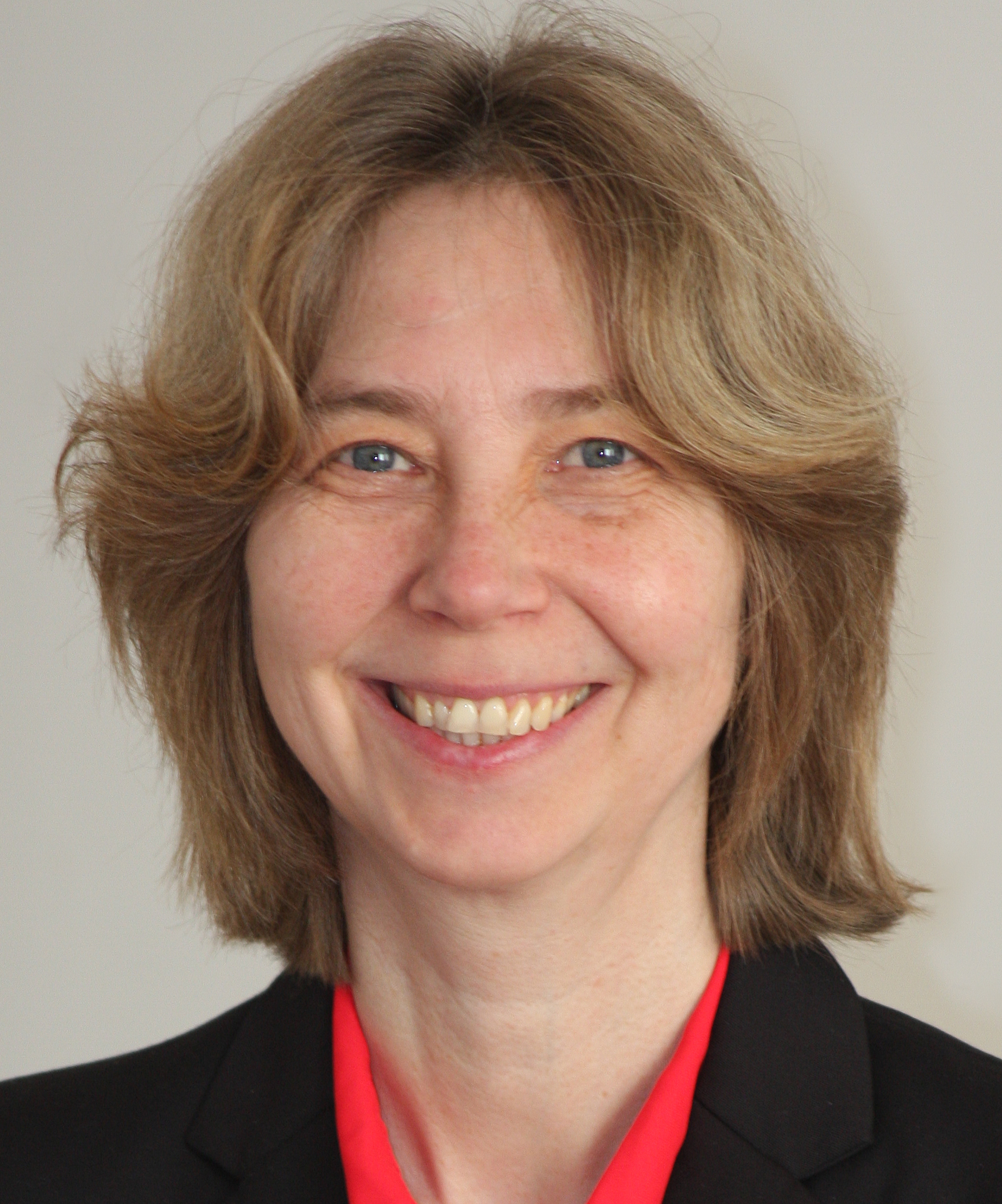
Zsuzsanna Dosztanyi
Eötvös Loránd University, Budapest, Hungary
Zsuzsanna Dosztányi obtained her diploma in Physics and Biophysics and her Ph.D. in Biology from Eötvös Loránd University (ELTE) in Budapest. She conducted postdoctoral research at the Institute of Enzymology in Budapest, the Australian National University in Canberra, and Columbia University in New York City. In 2014, she received the Momentum Grant from the Hungarian Academy of Sciences, which enabled her to establish an independent research group in the Department of Biochemistry at ELTE. Dr. Dosztányi is renowned for her significant contributions to the understanding of intrinsically disordered proteins (IDPs). Unlike globular proteins, IDPs do not adopt a fixed three-dimensional structure under physiological conditions but play crucial roles in various biological processes. She has developed innovative bioinformatics tools that have greatly advanced the field of IDP research. Her current research employs deep learning methods to gain a more detailed understanding of the conformational and functional properties of IDPs.
TCGEx – Democratizing cancer transcriptomics analysis with an interactive bioinformatics platform
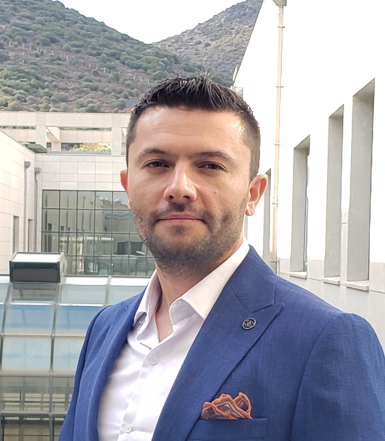
Atakan Ekiz
İzmir Institute of Technology, İzmir, Türkiye
Dr. Atakan Ekiz is an Assistant Professor in the Department of Molecular Biology and Genetics at Izmir Institute of Technology (IzTech) and Director of the Biotechnology and Innovation Research Center. He received his PhD in Oncological Sciences and MSc in Clinical Investigation from the University of Utah, supported by a Fulbright scholarship. Dr. Ekiz leads a multidisciplinary research group exploring the molecular mechanisms of tumor-immune interactions, with a particular focus on noncoding RNAs and immunotherapy. His lab integrates functional genomics, transcriptomics, and machine learning to identify regulators of immune evasion and therapeutic resistance. Ongoing projects investigate lncRNA-mediated modulation of interferon signaling, tumor-derived miRNAs shaping the immune microenvironment, and predictive biomarkers for checkpoint blockade therapy.The lab also develops computational tools to enhance high throughput data analysis aiming to bridge the gap between disciplines. Dr. Ekiz’s work is supported by prestigious funding programs, including the EMBO Installation Grant, Turkish Academy of Sciences, and TUBİTAK. His research combines experimental and computational approaches, aiming to uncover novel targets and mechanisms in cancer immunology.
The AI revolution in computational structural biology
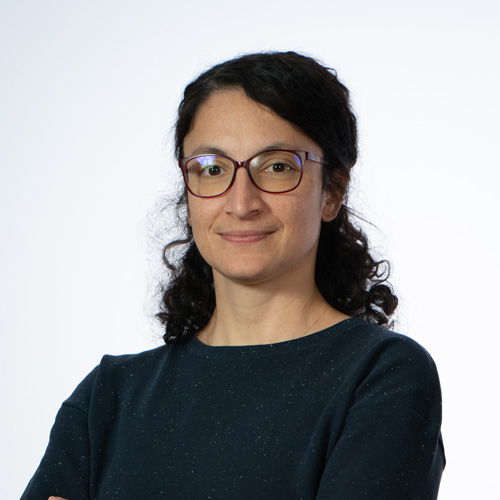
Ezgi Karaca
İzmir Biomedicine and Genome Center, İzmir, Turkey
Ezgi Karaca is a computational structural biologist specializing in integrative modeling and biomolecular dynamics. She completed her bachelor's (2006) and master's (2008) degrees in Chemical Engineering at Bogazici University. Her master's research, under the supervision of Prof. Turkan Haliloglu and Prof. Ruth Nussinov, focused on the interaction network of tumor suppressor p73, contributing to the understanding of cell cycle arrest and apoptosis. Dr. Karaca earned her Ph.D. (2013) in Computational Structural Biology from Utrecht University in the lab of Prof. Alexandre Bonvin. Her doctoral work advanced HADDOCK, a widely-used docking software, enhancing its ability to model large and dynamic protein complexes. Following her Ph.D., she conducted postdoctoral research at EMBL Heidelberg (2013-2016) with Dr. Teresa Carlomagno and Dr. Orsolya Barabas, where she developed M3, a computational tool to model protein-nucleic acid complexes using sparse experimental data. This achievement earned her the prestigious Alexander von Humboldt Postdoctoral Fellowship. In 2017, Dr. Karaca returned to Türkiye, establishing her Computational Structural Biology Lab at the Izmir Biomedicine and Genome Center (IBG) and joining Dokuz Eylul University as Assistant Professor. Her lab focuses on understanding interface dynamics and its role in biomolecular recognition, which led to her being awarded an EMBO Installation Grant (2020) Dr. Karaca actively contributed to the international scientific community as an assessor during CASP14-15 (Critical Assessment of Structure Prediction 14-15), becoming the first from Türkiye to serve in this role.
FEBS & IUBMB Joint Education Session - From challenges to opportunities: Integrating AI in biosciences education
Facilitators
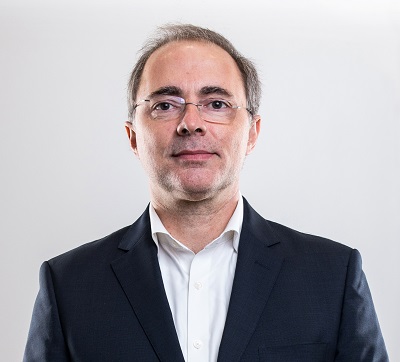
Manuel João Costa
University of Minho, Braga, Portugal
Manuel João Costa is Associate Professor at the School of Medicine. Pro-Rector for Educational Innovation and Student Affairs at the University of Minho and coordinator of the University of Minho’s center for innovation and development to teaching and learning (IDEA-UMinho). Vice-President of the National Council for Pedagogical Innovations in Higher Education of Portugal. He is coordinator of the EPIC (Excelência Pedagógica e Inovação em Cocriação) interinstitutional consortia focused on pedagogical excellence. Internationally, serves as Institutional Lead at the University of Minho for the Arqus European University Alliance member of the Learning and Teaching Steering Committee of the European University Association, and is delegate at the faculty development committee of the Association for Medical Education in Europe. Served in the education committee of FEBS (202-2024) and of IUBMB. Manuel develops research in student development in higher education and learning and teaching with a focus on medical and biomolecular sciences. Manuel’s teaching areas are biochemistry and molecular biology, and education in the health sciences. Researcher ID: C-3900-2009; ORCID: 0000-0001-5255-4257.

Robert Harris
Karolinska Institutet, Stockholm, Sweden
Robert A. Harris is Professor of Immunotherapy in Neurological Diseases, and Academic Vice-President of Doctoral Education, at the Karolinska Institutet, Stockholm, Sweden. The current focus of his research is development of novel immunotherapies for incurable neurodegenerative diseases. In the university education field, Harris is an inspiring and knowledgeable leader, lecturer and teacher, who has had a major impact on doctoral education at the Karolinska Institutet and internationally. He has taught extensively at undergraduate, Master’s and postgraduate levels for medical, biomedical and biology students, at the Karolinska Institutet and also at other universities in Sweden and abroad. He has also mentored MSc and PhD theses and supervised postdoctoral fellows. At the Karolinska Institutet, Harris has designed professional development teaching courses aimed at PhD supervisors at both basic and advanced levels, as well as introductory courses for PhD students. He also introduced new pedagogical tools to raise the professional standard of PhD supervision, including educational videos to explain doctoral educational and research support and to increase awareness of equity, diversity and inclusivity. At the international level, Harris has received many invitations to directly train or inspire in house training of PhD supervisors at other European universities, and has been an international evaluator of doctoral programmes at several universities. He was President of ORPHEUS (‘The Organisation for PhD Education in Biomedicine and Health Sciences in the European System’) from 2014 to 2022, where he oversaw development of the current ‘Best Practices in Doctoral Education’ handbook and contributed to a new 3-stage ORPHEUS accreditation process, which has had a major impact of development of quality assurance processes for doctoral programmes in three continents. In 2024 he received the first FEBS Education Award, and as of 1 Jan 2025 will serve on the FEBS Education and Training Committee.
Panelists
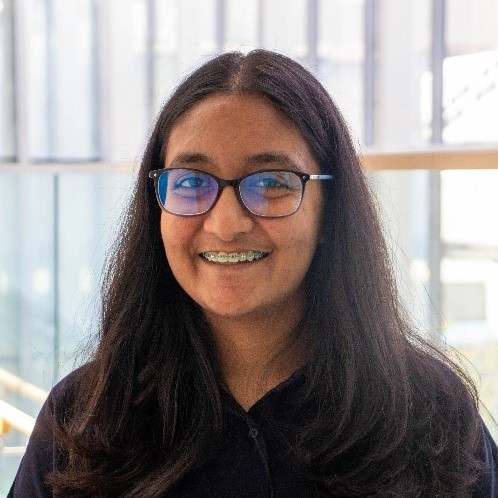
Sana Ahmed
University of British Columbia, Vancouver, Canada
Sana Ahmed is a PhD candidate at the University of British Columbia (UBC) in Vancouver, Canada. She also completed her undergraduate degree at UBC in Biochemistry and Molecular Biology, where she used super-resolution microscopy to study membrane contact sites between the endoplasmic reticulum and mitochondria. This sparked her curiosity in visual biology, leading her to pursue graduate research in structural biology. Her current work focuses on using cryogenic-Electron Microscopy (cryo-EM) and AI-driven tools to investigate protein-drug interactions in the field of targeted protein degradation (TPD).
Beyond research, Sana is passionate about scientific communication and has led discussions on the benefits and challenges of AI for undergraduate and high school students, emphasizing responsible use in education and research. With the growing role of AI in biosciences, she continuously reflects on its boundaries – navigating its potential but also avoiding reliance on AI-based tools. As the incoming Chair of the IUBMB Trainee Initiative (TI), she is hoping to collaborate with the team to launch scientific communication initiatives, continue to raise awareness of professional opportunities, and have scientific discussions on the potential of AI use in our research environments.
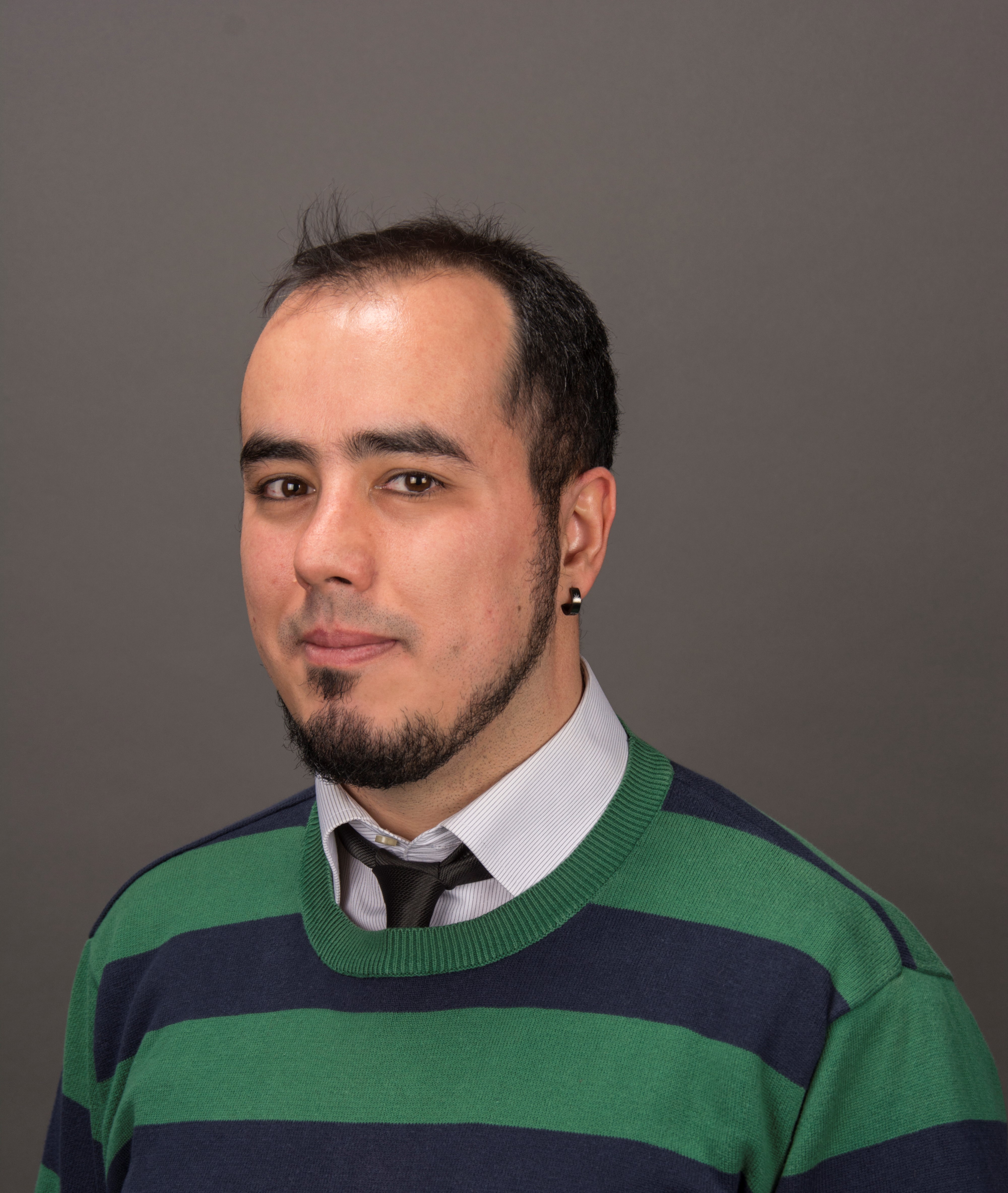
Ali Burak Özkaya
İzmir University of Economics, İzmir, Türkiye
Ali Burak Özkaya is a faculty member at the Faculty of Medicine, İzmir University of Economics. He received his PhD in Biochemistry in 2015 and became a founding member of the Faculty of Medicine in 2016. He led the development of E-MED, the faculty’s virtual learning platform, and continues to manage its operations. In 2019, he was selected as the first FEBS Educational Fellow, spending a term at Chester University to advance his expertise in bioscience education.
Since 2022, he has been a member of the FEBS Integration and Networking Committee, where he oversees the education channel of the FEBS Network, promoting educational content and initiatives to connect and engage the bioscience community. He is professionally committed to integrating digital tools and technologies, including Generative AI, into bioscience education, a focus that he explores through talks, workshops, and scholarly publications. He was a trainer at the 2024 FEBS Education and Training Conference, conducting a workshop on Active Learning. He is the current Education Ambassador of the TBS to FEBS and recently organized an FEBS workshop on Safe Learning Environment.
From Genes to Functional Proteins
Cell proliferation and chromatin dynamics during organ growth
Crisanto Gutierrez
Centro Biología Molecular Severo Ochoa, CSIC-UAM, Madrid, Spain
Crisanto Gutierrez (http://www.cbm.uam.es/crisanto-gutierrez), a BSc (1977) and PhD (1980) in Biology, was appointed as Assistant Professor of Cell Biology (Univ. Alcalá de Henares, 1982-1986) before moving to Harvard Medical School and Roche Institute of Cell Biology (1986-1990) where he obtained experience in mammalian oncoviruses (SV40). He then joined the Centro de Biologia Molecular Severo Ochoa to start his own independent group to study the molecular biology of plant geminiviruses and their interaction with the host cell. Currently he is Full Professor (CSIC) and Head of the Program in Genome Dynamics and Function. He was elected Member of EMBO (1998), of the EMBO Fellowship Committee (2000-2004), of the EMBO Council (since 2020) and of Academia Europaea where he chairs the Cell and Developmental Biology Section (since 2021). He is also an ERC grantee, Corresponding Member of the Royal Academy of Medicine of Cadiz (2009) and has received, among other awards, the Carmen and Severo Ochoa Foundation Award (2008) and the Margarita Salas Medal for Mentoring (CSIC, 2023). He is or has been editor of EMBO J., EMBO Rep., Plant J., and Eur J Cell Biol. After his pioneering discoveries of the tumor suppressor protein retinoblastoma (1995, 1996), the E2F-DP family and their targets in plant cells, his research aims at understanding the links of chromatin dynamics, DNA replication and cell proliferation during development using the plant Arabidopsis thaliana as a model, applying a combination of cellular, molecular, genetic and genomic strategies.
Aminoacyl-tRNA synthetases: Catalysis and antibiotic (hyper) resistance
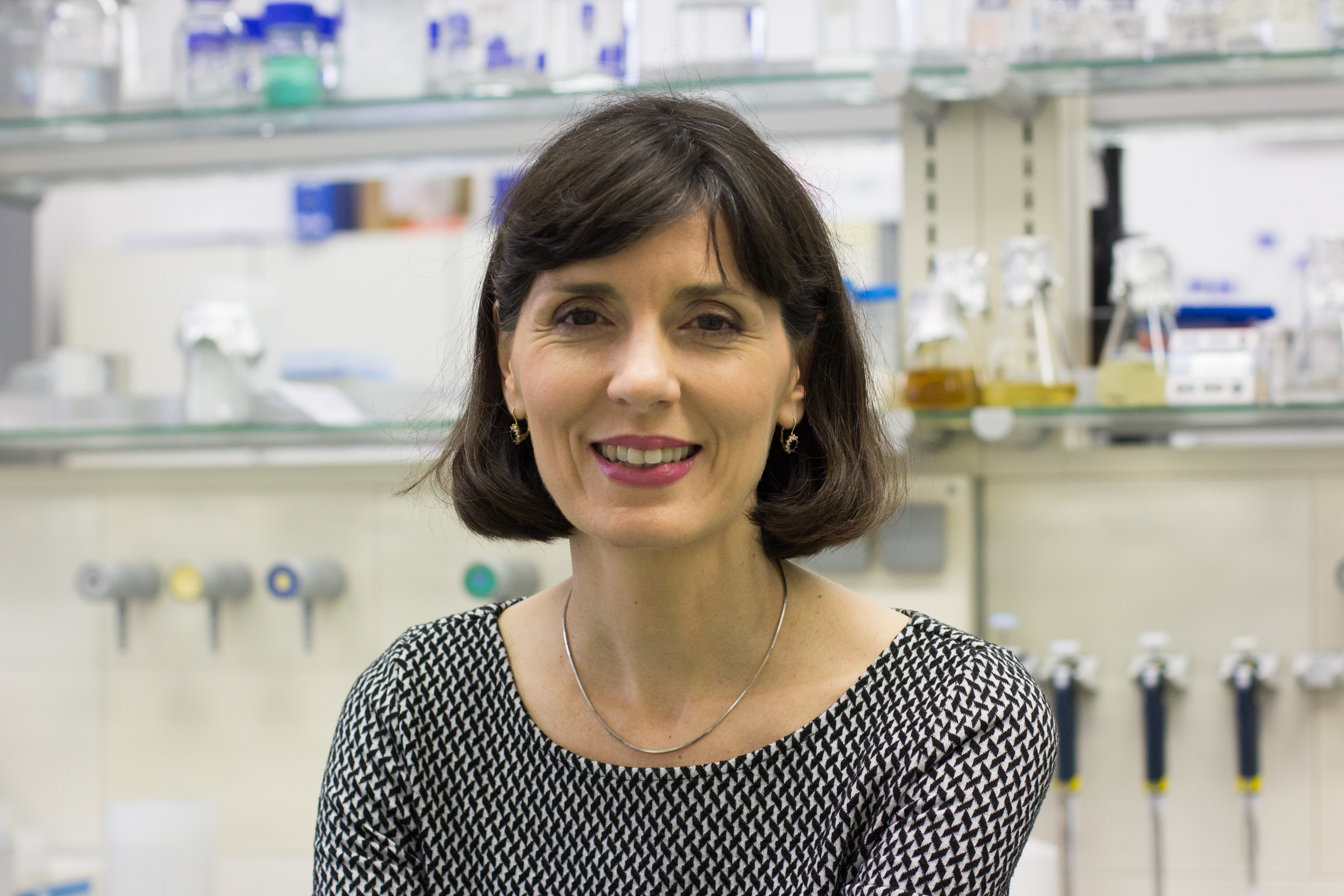
Ita Gruic-Sovulj
University of Zagreb Faculty of Science, Zagreb, Croatia
Ita Gruic Sovulj is a Professor of Biochemistry at the Faculty of Science University of Zagreb. She obtained her PhD at the University of Zagreb, Croatia, and completed a postdoc with John J. Perona at the University of California at Santa Barbara, US. She works on aminoacyl-tRNA synthetases (AARS), the crucial enzymes in protein biosynthesis. She investigates mechanisms by which these enzymes establish accurate coupling of amino acid-tRNA pairs, specifically exploring inherent AARS hydrolytic editing pathways. Recently, she discovered that variation of the most conserved catalytic motif in isoleucyl-tRNA synthetases endows hyper-resistance to clinically relevant antibiotic, mupirocin, surprisingly without jeopardizing the key translational role of the enzyme..
Chromosomal R-loops: Who R they?
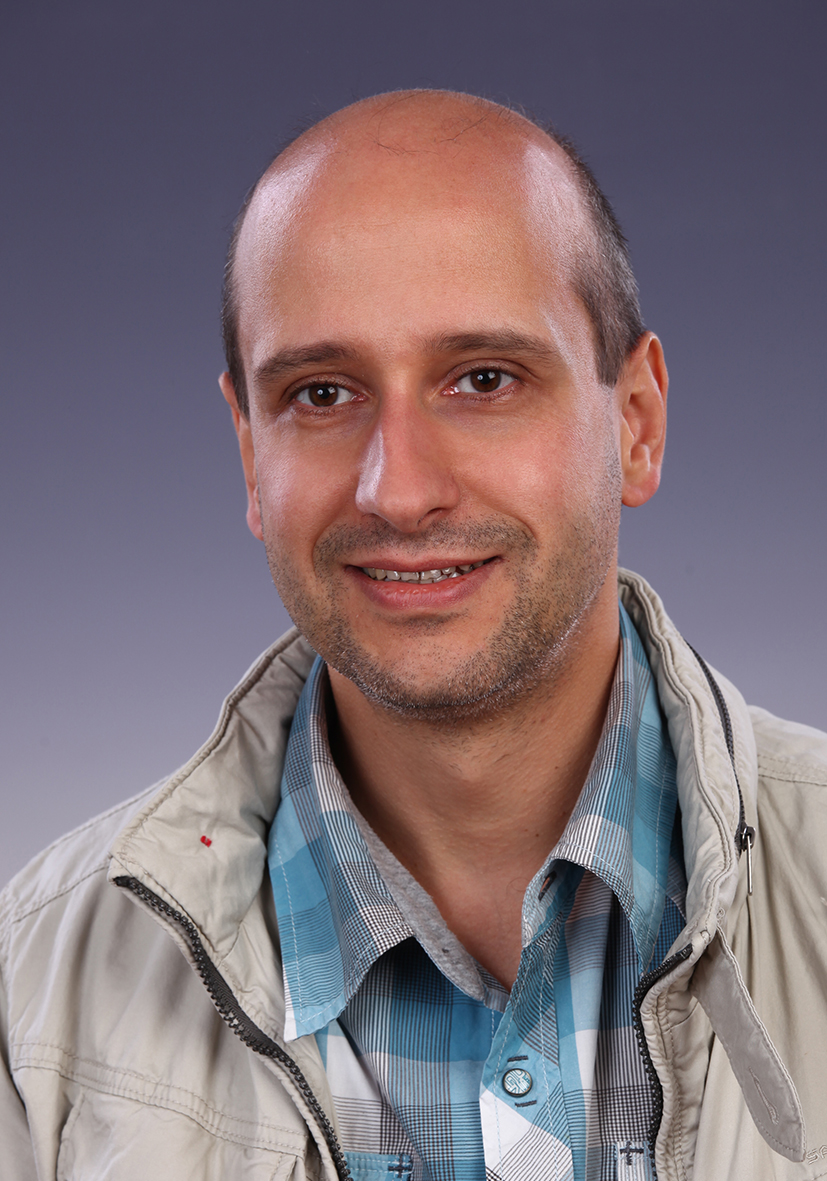
Lorant Szekvolgyi
University of Debrecen, Debrecen, Hungary
I graduated as a molecular biologist from the University of Debrecen (Hungary) in 2002. During my Ph.D. studies, I focused on the central issues of chromatin structure, and a key achievement was the discovery of nuclear ribonucleoprotein particles containing R-loops (Székvölgyi L et al. PNAS 2007). During my postdoctoral work at the Curie Institute in Paris, I investigated DNA breaks that compromise genome integrity. Upon retud at promoting science.rning to Hungary, I completed the experiments initiated abroad with the support of a junior grant. After five years of intensive research, we established a causal link between meiotic DNA breaks and the H3K4me3 epigenetic mark, which provided a breakthrough in understanding the connection between histone modifications and genetic recombination (Acquaviva & Székvölgyi L et al. Science 2013). In 2015, I established my independent research group with funding from the Hungarian Academy of Sciences. Since then, we have conducted internationally competitive research at the intersection of genomics, epigenetics, and bioinformatics. Our results have been published in a number of high-impact journals (Szekvolgyi L et al. CSH Perspect Biol 2015; Halasz L et al. Genome Res 2017; Karanyi Z et al. J Cell Biol 2018; Hegedus et al. Nucl Acids Res 2018; Karanyi Z et al. Nature Comms 2022; Fero O et al. Sci Data 2023; Fero O et al. Sci Data 2024), providing international recognition to the group. I also serve as an organizer of the Danube Conference series on Epigenetics supported by FEBS, which has become one of the most prestigious epigenetics conferences in Europe.
Using a novel piRNA annotation tool (piRAT) to unveil novel piRNA expression patterns
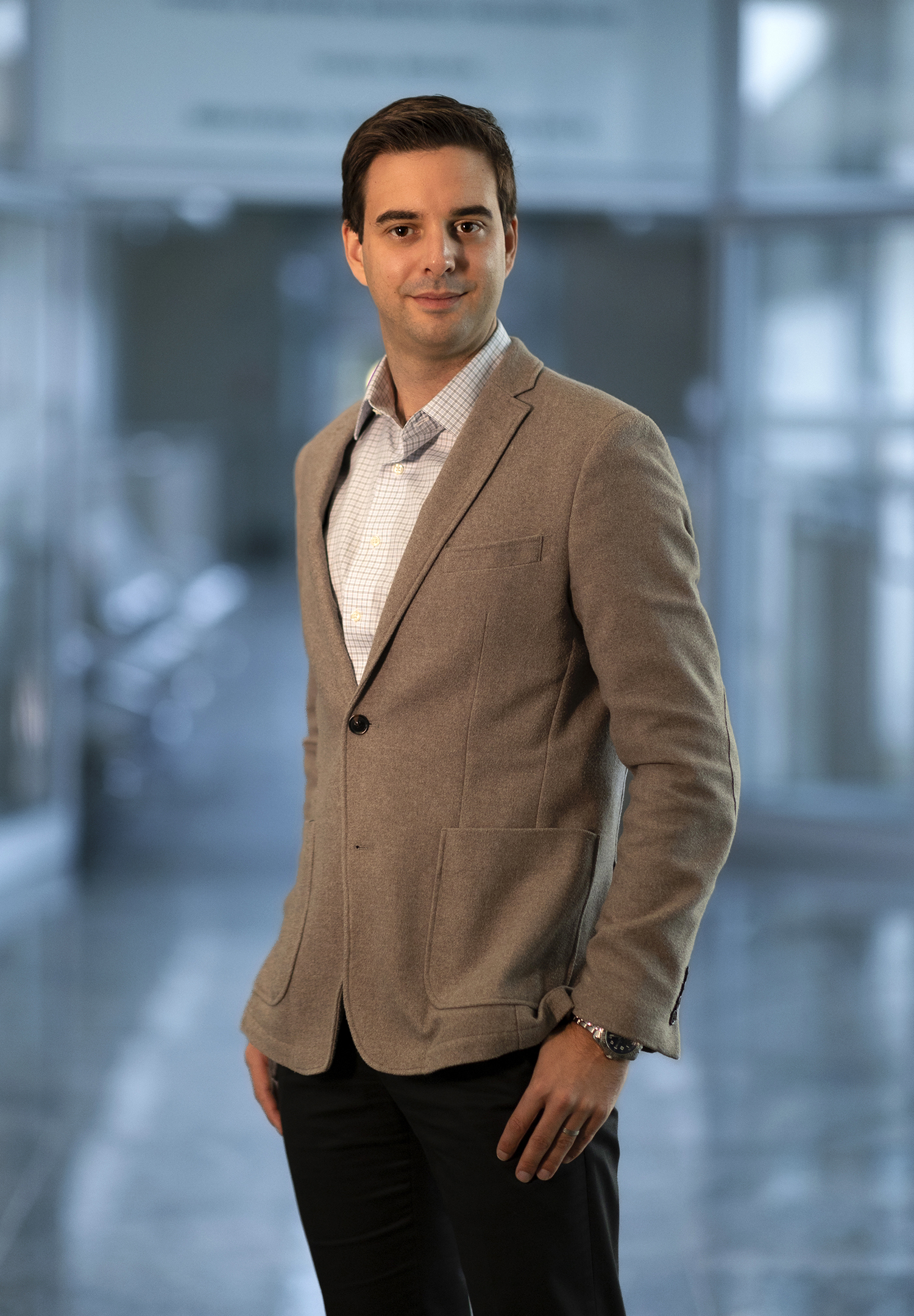
Guillem Ylla
Faculty of Biochemistry, Biophysics and Biotechnology Jagiellonian University, Krakow, Poland
Dr. Guillem Ylla graduated in Biotechnology and obtained a master's degree in Omics Data Analysis from the University of Vic – Central University of Catalonia. He subsequently completed his Ph.D. at the Institute of Evolutionary Biology (CSIC-UPF) in Barcelona, focusing on the transcriptomics basis of insect metamorphosis and evolution in the laboratories of Dr. Belles and Dr. Piulachs. Following his doctoral studies, he did a first postdoc at the Dr. Conesa laboratory at the University of Florida in Gainesville, where he worked on developing bioinformatic tools for studying gene expression regulation. For his second postdoc, Guillem went to the laboratory of Dr. Extavour at Harvard University where he worked on the genomic evolution of insects. In 2022 Guillem established his laboratory in Bioinformatics and Genome Biology at the Jagiellonian University in Krakow (Poland). His laboratory keeps exploring the evolution of genes, genomes, and gene regulatory networks through the integration of omics data and computational approaches.
Emerging Topics in Molecular Life Sciences
From Wnt to wisdom: Tackling Alzheimer's Disease

Güneş Özhan
İzmir Institue of Technology, İzmir, Turkey
Dr. Günes Özhan earned her bachelor’s degree in molecular biology and genetics from the Middle East Technical University, Ankara, Türkiye, in 2003, and her PhD in 2009 at the Max Planck Institute for Developmental Biology, Tübingen, Germany, with a thesis on the molecular evolution of embryonic development in arthropods. She pursued postdoctoral research on developmental biology and cell signaling using the zebrafish model at the Biotechnology Center of Dresden University of Technology. In 2014, Dr. Özhan returned to Türkiye and joined the Izmir Biomedicine and Genome Center, where she established an independent research laboratory and a zebrafish facility. Since then, she has received numerous awards, including the EMBO Installation Grant, the L'Oréal For Women in Science Award, the Turkish Academy of Sciences Young Scientist Award, and the UNESCO IOM Start-up Grant. Dr. Özhan’s research focuses on the signaling mechanisms involved in tissue regeneration and neurodegenerative diseases, as well as developing alternative therapies for neurodegenerative conditions using zebrafish models. She is currently a professor at Izmir Institute of Technology and a principal investigator at the Izmir Biomedicine and Genome Center
Leveraging artificial intelligence in biomedical and biological data analysis: Challenges and opportunities

Żaneta Świderska-Chadaj
Warsaw University of Technology, Warsaw, Poland
Dr. hab. inż. Żaneta Świderska-Chadaj, associate professor at the Warsaw University of Technology, is an expert in the field of biomedical and biological image analysis. Her research focuses on developing new solutions that utilize artificial intelligence to support medical diagnostics (histological and radiological) and analyze biological processes. Her work is both applied and interdisciplinary, bridging fields such as deep learning, machine learning, computer vision, biology, and medicine.
Dr. hab. inż. Żaneta Świderska-Chadaj obtained her habilitated doctorate in Biomedical Engineering from the Warsaw University of Technology in 2022, her PhD in Computer Science from the same institution in 2017. She gained experience working in international research teams during a postdoctoral fellowship in the renowned Computational Pathology research group at Radboudumc in Nijmegen, Netherlands (2017-2020), through a study visit to Cedars-Sinai in the USA (2019), and the internship at the University of Castilla La Mancha in Ciudad Real, Spain (2017). She is a member of IEEE and ELLIS Unit Warsaw. She has received several academic awards, including the Rector's Scientific Prize from the Warsaw University of Technology, the Outstanding Young Scientist Award from the Start FNP (2020), the Minister's Scholarship (2021), and the POLITYKA Scientific Award (2022). Dr. hab. inż. Żaneta Świderska-Chadaj has also led projects funded by the National Science Centre (NCN) and internal grants at the Warsaw University of Technology. She is actively engaged in promoting science through participation in initiatives such as the Women in Tech monitoring program and numerous guest lectures aimed at promoting science.
Hydrocolloid-based bioplastics as biocompatible and sustainable composite materials
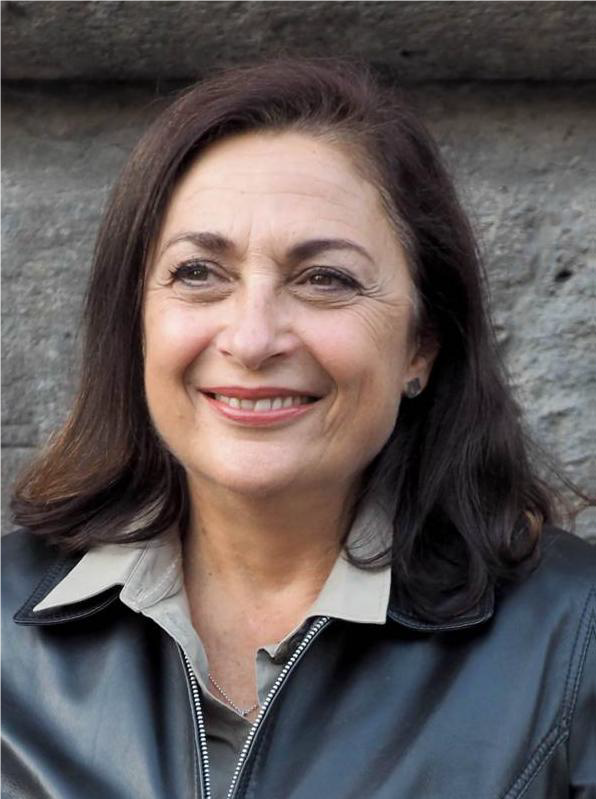
Loredana Mariniello
University of Naples “Federico II”, Naples, Italy
Full professor of Biochemistry and leader of the Biochemical Biotechnology and Enzymology (BBE) groupat the Department of Chemical Sciences of University of Naples “Federico II”. Since 1993 to 1995 associateresearcher at the Department of Environmental Toxicology of the University of California in Davis (USA).Scientist expert in the use of enzymes as biotechnology tools to modify biological proteins of food interestand to prepare innovative bioplastics. Author of 91 papers, cited 2776 times, h-index 31 on Scopus, (on the22nd of January 2025). Author of many chapters in books about Food Technology. Editor or Co-Editor of several Special Issues of distinguished Journals concerning Biochemistry, Biotechnology and Food Technology. Two patents. Participation/coordination to national and international projects (PON ENERBIOCHEM, PON-BIOPOLIS, PON-BIP, PRIN, and other ministerial projects) . Invited speaker andchair in several national and international Congresses. Active as international tutor for several foreign ERASMUS students. Supervisor of a very high number of BSc and MSc in Food Technology and Biotechnology.
FEBS Press Session
How to prepare a perfect graphical abstract
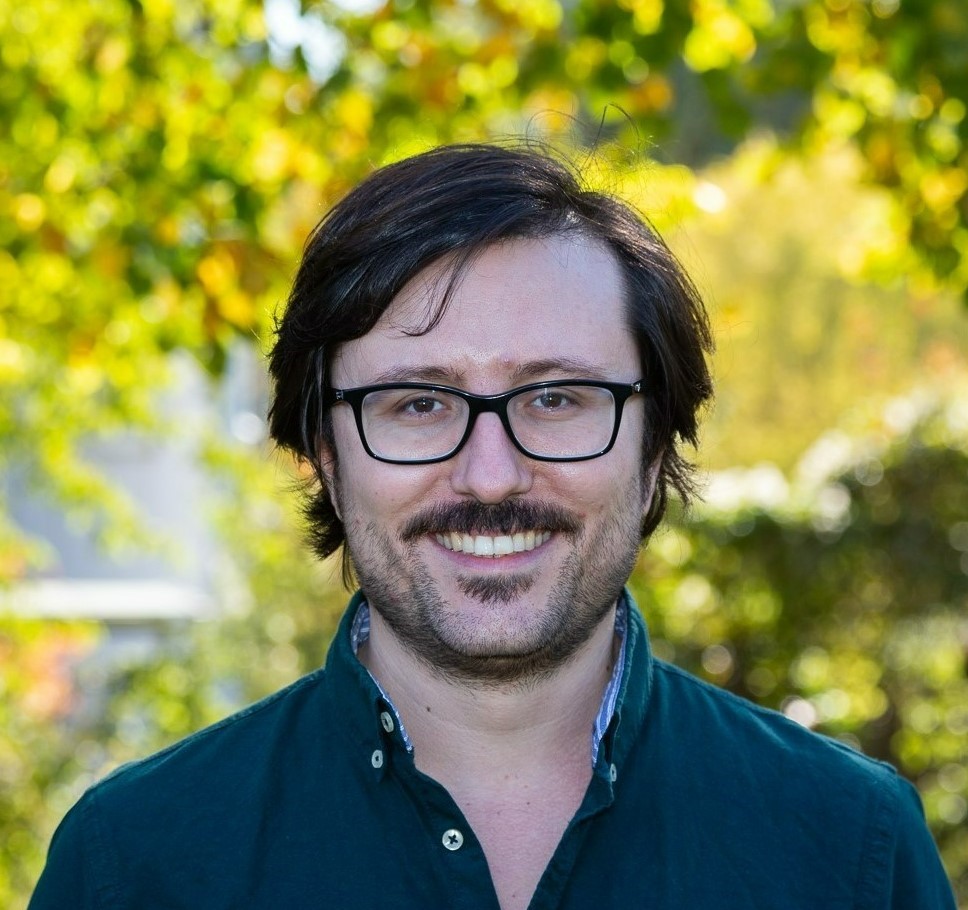
Matteo Oliverio
Taconic Biosciences, New York, USA
Dr. Matteo Oliverio is a scientific illustrator and researcher based in Cologne, Germany. His scientific expertise spans diverse fields, including DNA damage response, molecular metabolism, obesity, and leukemia. His graphic work reflects this breadth, encompassing a wide range of scientific disciplines such as neurobiology and infectious diseases. Dr. Oliverio earned his Master of Science at the Institute of Molecular Genetics (IGM-CNR) in Pavia, Italy, before pursuing a PhD in Genetics at the Max Planck Institute for Metabolism Research in Cologne. He later conducted postdoctoral research at CECAD and the University Hospital of Cologne. Currently, he serves as a Scientific Liaison at Taconic Biosciences, bridging science and communication through his work.
Immunity and Host-pathogens Interplay
Epithelial barrier theory and molecular mechanisms of inflammation and tissue injury in allergic and autoimmune diseases
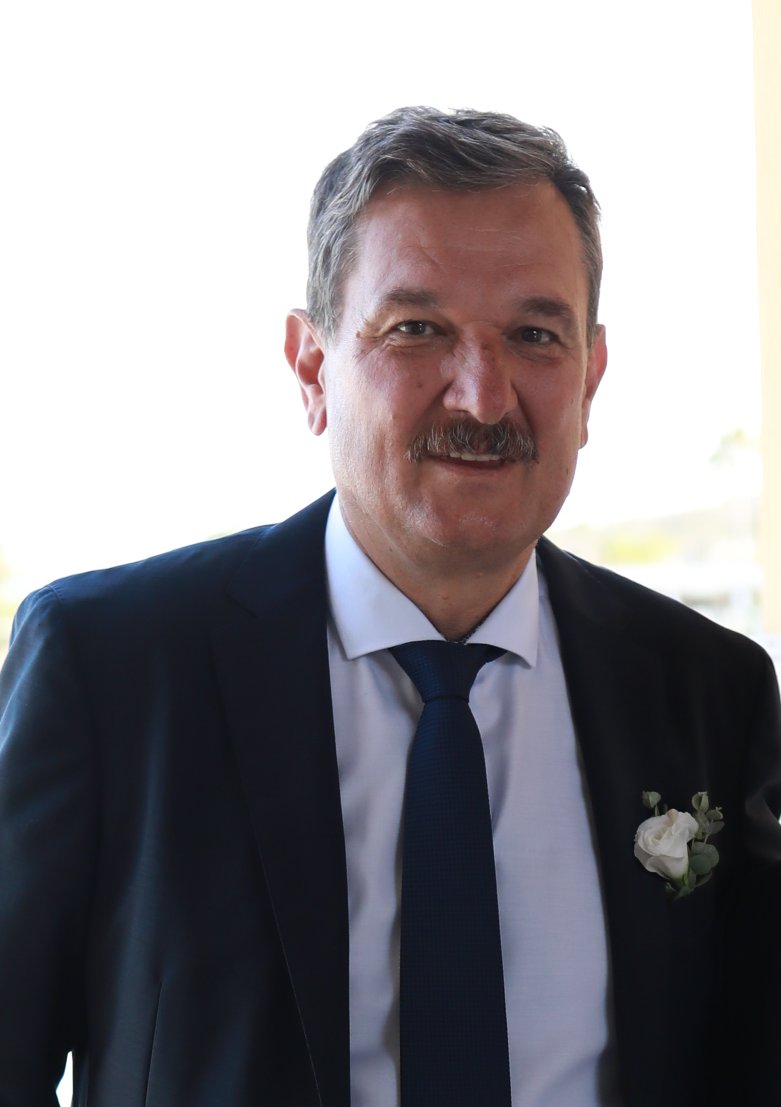
Cezmi Akdiş
University of Zurich, Zurich, Switzerland
Cezmi Akdis is the director of the Swiss Institute of Allergy and Asthma Research (SIAF) in Davos and Professor in Zurich University Medical Faculty. He has honorary professorships from Beijign (China), Wuhan (China) and Bursa Uludag Universities (Turkey), Harvard University (USA). He is a Senate Member of the Swiss Academy of Medical Sciences. Cezmi Akdis has published 720 peer-reviewed articles. His h-index is 156 and he was selected as a highly cited author consecutively in 2016-2023 by Clarivate (Thomson Reuters). Cezmi Akdis acted as the President of the European Academy of Allergy & Clinical Immunology (16’000 members) between 2011-2013. He was the editor of Global Atlases of Allergy, Asthma I-II, Chronic Rhinosinusitis and Allergic Rhinitis. He was the founder and organizer of the World Immune Regulation Meetings, Davos I-XVI. He is currently the Editor-in-Chief of the Allergy journal.
Cezmi Akdis’s major scientific contributions are on immune regulation and allergen tolerance, plasticity of antigen-specific T cells 1995, human T regulatory cells 1996, immune suppressive role of histamine receptor 2 2000, human Type 2 NK cell subset 2001, human regulatory NK cells 2007, regulatory innate B cell subset 2017, regulatory innate lymphoid cells 2019. His current research is the continuation of his epithelial barrier theory studies starting from mechanisms of eczema 2000, mechanisms of epithelial shedding in asthma and chronic rhinosinusitis 2003, endotypes of asthma, chronic rhinosinusitis and atopic dermatitis 2011, epithelial barrier theory for the development of allergic and autoimmune diseases 2006 - 2024. Cezmi Akdis is also the author of more than 40 publications on COVID including one of the first ones published on 19 February 2020, including pathophysiology, risk factors, severity, clinical characteristics and how to handle allergy and asthma patients during the pandemic.
Resolving how vaccine adjuvants promote T Cell responses
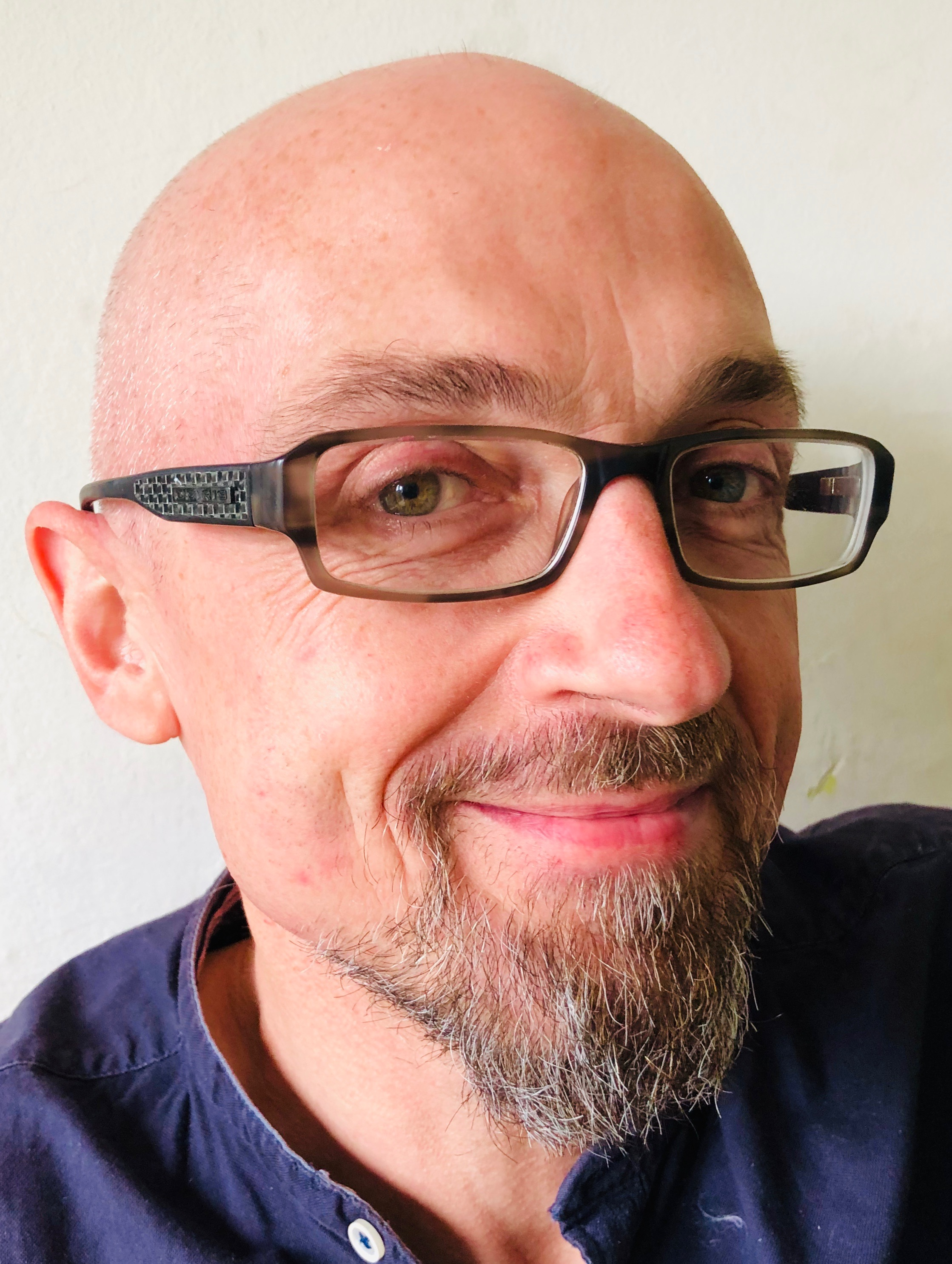
Ed C. Lavelle
Trinity College Dublin, Ireland
Ed Lavelle is an Immunologist, focusing on vaccine research. He was elected a member of the Royal Irish Academy (MRIA) in 2021 is currently President of ECI2024 and former President of the Irish Society for Immunology and head of the School of Biochemistry and Immunology at Trinity College Dublin, Ireland. He graduated with a BSc in Microbiology from University College Galway and a PhD in Immunology from the University of Plymouth and carried out postdoctoral research at the University of Nottingham and Trinity College Dublin on vaccine adjuvants and immunomodulation. He was appointed at Trinity College Dublin as a lecturer in 2004, associate Professor in 2012, Professor in Immunology in 2015 and Professor of Vaccine Immunology in 2022. His research has led to the development of adjuvants suitable for inclusion in injectable and mucosal vaccines for infectious diseases and resolving their mode of action. The lab is also focused on developing therapeutic vaccines for cancer and investigating vaccine strategies that promote immunogenic cell death, leading to enhanced protective immunity.
Molecular insights into the immune mechanism of bacterial antiviral defense system theories
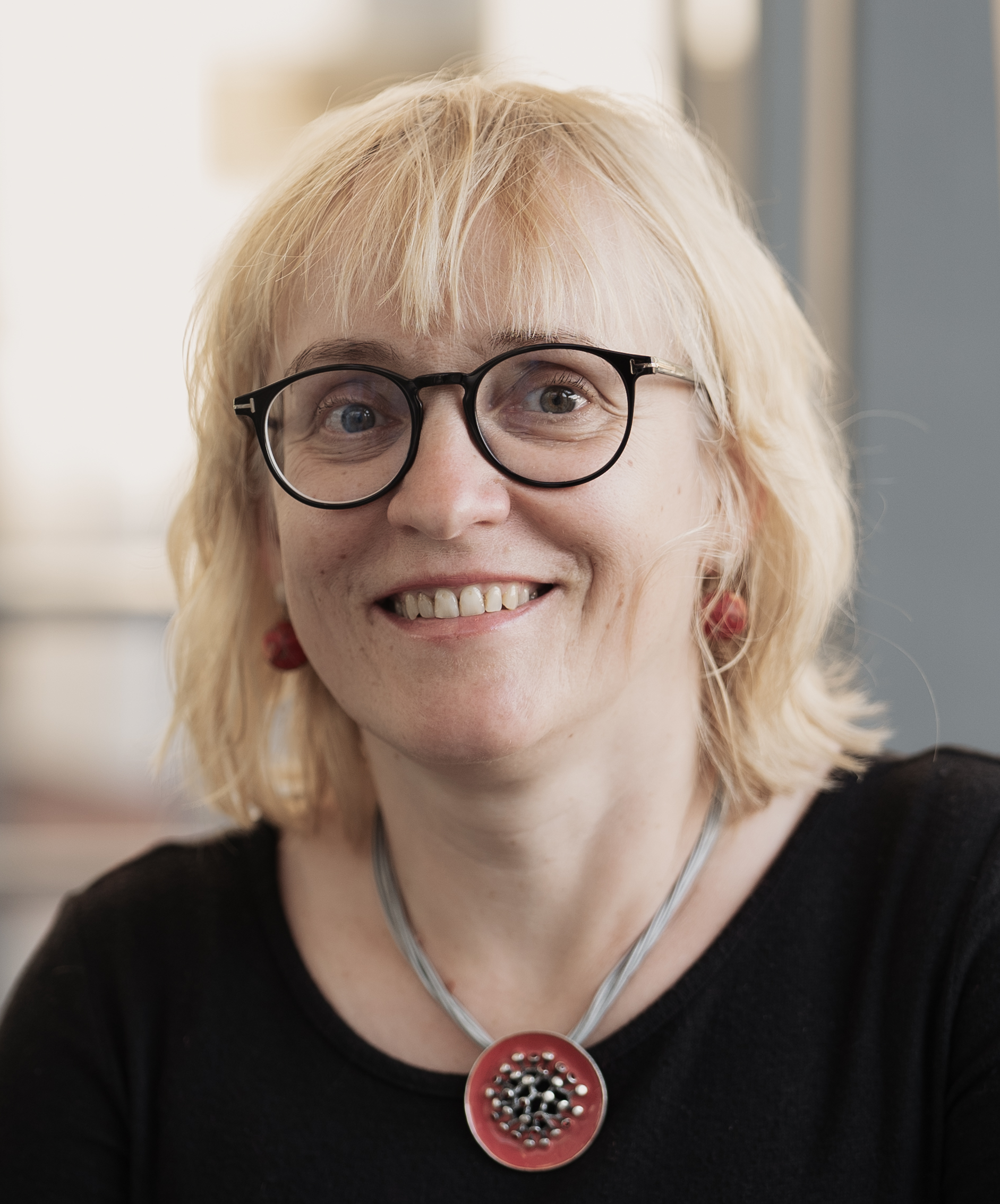
Giedre Tamulaitiene
Institute of Biotechnology, Life Sciences Center, Vilnius University, Vilnius, Lithuania
Giedre Tamulaitiene is a structural biologist and senior researcher at Vilnius University. After graduating in Biochemistry from Vilnius University in 1999, she obtained her PhD in 2007 under the supervision of Prof. S. Grazulis with research on structural-functional relationships and DNA recognition mechanisms of restriction endonucleases. She then joined the group of Prof. V. Siksnys and worked in the field of bacterial antiviral defence. She carried out structural-functional studies of different types of CRISPR-Cas systems. More recently, she has focused on the novel bacterial antiviral defence systems containing TIR (Toll-interleukin receptor like) and SIR2 (Sirtuin-like) domains, which also play important roles in the innate immune system and in the regulation of key cellular processes in eukaryotes.
RNA Biology: Coding and Non-coding RNAs
RNA mechanisms associated with C9orf72 mutation
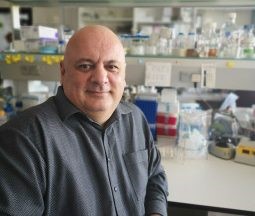
Boris Rogelj
Department of Biotechnology, Jožef Stefan Institute, Ljubljana, Slovenia
Boris Rogelj is head of the Department of Biotechnology at the Jožef Stefan Institute, full professor at the University of Ljubljana, and president of the Slovenian Neuroscience Association. His research interests include the molecular and cellular mechanisms of neurological diseases, with a particular focus on amyotrophic lateral sclerosis (ALS) and frontotemporal dementia (FTD). He has 90 publications in SCI journals, including prestigious journals such as Science, Nature Neuroscience, Nature Communications, Acta Neuropathologica, Brain, etc., with more than 10,000 citations. He has led ten research projects funded by the Slovenian Research Agency and three international projects and has been involved in more than 20 national and international projects.
The 3’-end of the tale
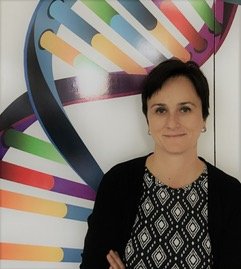
A. Elif Erson-Bensan
Department of Biological Sciences, Middle East Technical University, Ankara, Türkiye
1997 BSc Biological Sciences METU, Türkiye, 2001 MSc Human Genetics, University of Michigan, Ann Arbor MI, USA, 2004 PhD Human Genetics, University of Michigan, Ann Arbor MI, USA
Current Research Interests: Transcriptome diversity generated by splicing and alternative use of polyadenylation sites is still mostly a hidden complexity. We are interested in identifying and characterizing mRNA 3'-end isoforms in breast cancer cells. We use a combinatorial approach to decipher noncanonical mRNA and protein isoforms to understand protein interactions and intricate molecular mechanisms
RNA-binding proteins in health and disease
Nicola K. Gray
The Centre for Reproductive Health, The University of Edinburgh, UK
Life and life-long health relies on the regulation of genes to ensure they are expressed at the right time and place, and in the correct amounts. Work in recent years has revealed that the mis-regulation of mRNA translation is important in the aetiology of a wide range of human diseases including reproductive, neurological and metabolic disorders. RNA-binding proteins play a central role in regulating all aspects of mRNA lifecycle, including their translation. We examine the molecular mechanisms by which RNA-binding proteins regulate mRNA translation, as well as the consequences of their dysfunction. Current work focuses on interconnected families of multi-functional RNA-binding proteins that are best known for interacting with the 3’end of their target mRNAs to regulate their translation. Their dysfunction leads to a variety of clinically relevant phenotypes in mice including infertility, adverse pregnancy outcomes, impaired cardiovascular function and altered response to high-fat diet induced obesity and its co-morbidities.
FEBS & ORPHEUS Joint Session
The future of the doctorate in Europe in light of research assessment reforms and genAI
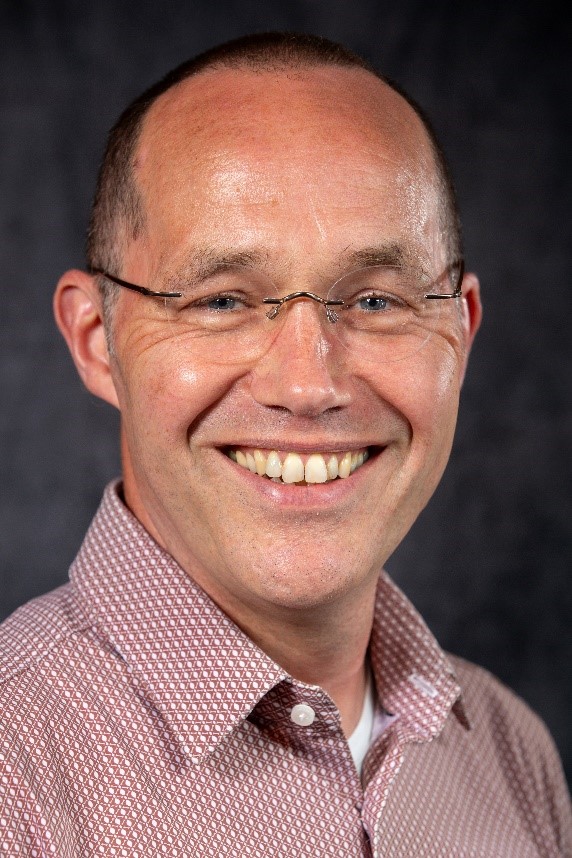
John Creemers
Department of Human Genetics, KU Leuven, Belgium
John Creemers holds an MSc degree in Chemistry from the Radboud University Nijmegen (Netherlands) and obtained his PhD in Medical Sciences from KU Leuven (Belgium) in 1994. He has worked as postdoc at the University of Cambridge (UK) and as Visiting Professor at the Barbara Davis Center for Childhood Diabetes (UCHCS, Denver, USA). Currently, he is Professor at the Department of Human Genetics (KU Leuven). His research interests are protein folding, maturation and sorting in the secretory pathway, and in particular, hereditary diseases in which these processes are disturbed. He teaches two courses for 2nd and 3rd year Bachelor students of Biomedical Sciences: Scientific Communication and the Bachelor Thesis. Since 2012, he is also the Director of the Doctoral School of Biomedical Sciences, responsible for the doctoral training of approximately 1700 PhD researchers and 500 postdocs. This training aims to prepare them for a career in frontline research, healthcare, and education or for high-level roles in professional sectors where creative, critical, independent and responsible thinking is required. He is currently also president of the Organisation of PhD Education in Biomedicine and Health Sciences in the European System, ORPHEUS. ORPHEUS aims to safeguard the PhD as a research degree by supporting graduate schools, faculties and departments, research students and their supervisors, through quality assurance mechanisms, advocation of best practices, professional development and training.
ORPHEUS Labelling: A thrive for perfection of PhD training
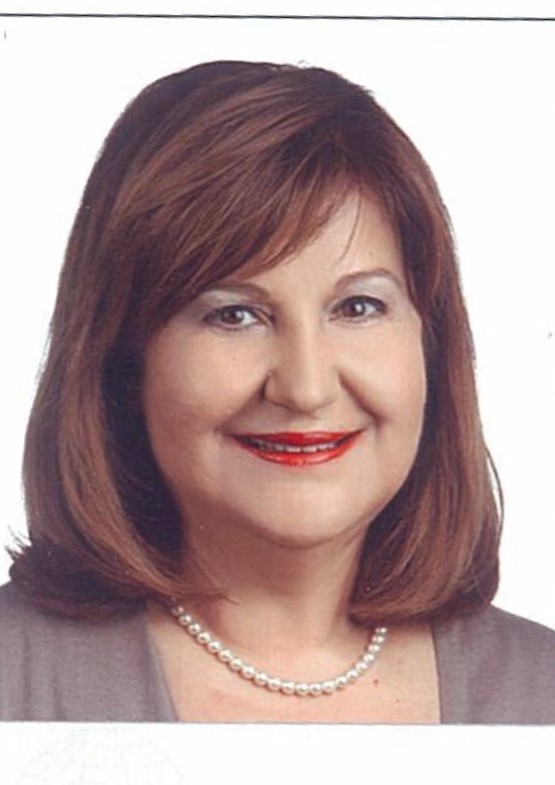
Gül Güner Akdoğan
İzmir University of Economics, School of Medicine, İzmir, Turkey
Gül Güner Akdogan is presently professor and chair of the Medical Biochemistry Department of the IEU School of Medicine, director of Basic Medical Sciences Division and coordinator for research training of the university.
Gül Güner Akdogan is holder of BS and MSc in Biochemistry from Geneva University, Switzerland. After completing her PhD degree in Istanbul University in 1980, she was post-doc in the biochemistry departments in Istanbul and then, a faculty member in Izmir Dokuz Eylül University (1986-2016).
In 1996, she was awarded an ECFMG (USA) fellowship (Educational Commission for Foreign Medical Graduates) and invited as a visiting professor to the Department of Biochemistry, WVU-SOM, USA. She was re-invited to the USA medical school for a short-term “revisit” in 2001.
Between 2008 and 2018 , Gül Güner-Akdoğan was Chair of FEBS Education Committee and Member of FEBS Executive Board. She worked on the Editorial Board of BAMBED (Biochemistry and Molecular Biology Education Journal) between 2007-2015 and served on the Editorial Board of “Bioscience Education”.
She was a member of the Executive Committee of ORPHEUS (Organisation for PhD education for Biomedicine and Health Sciences in the European system) between 2010-2016 and organised the 6th ORPHEUS Conference in Izmir in April, 2011. She was the General Secretary and Member of the Executive Board of this organisation between 2014- 2016, Co-Chair of ORPHEUS Labelling Committee between 2017 2024, and Chair of the Committee since 2024.
Gül Güner’s research activity is focused on the extracellular matrix in health and disease and its communication with cells including fibroblasts and endothelial cells.
Bioethics in PhD training
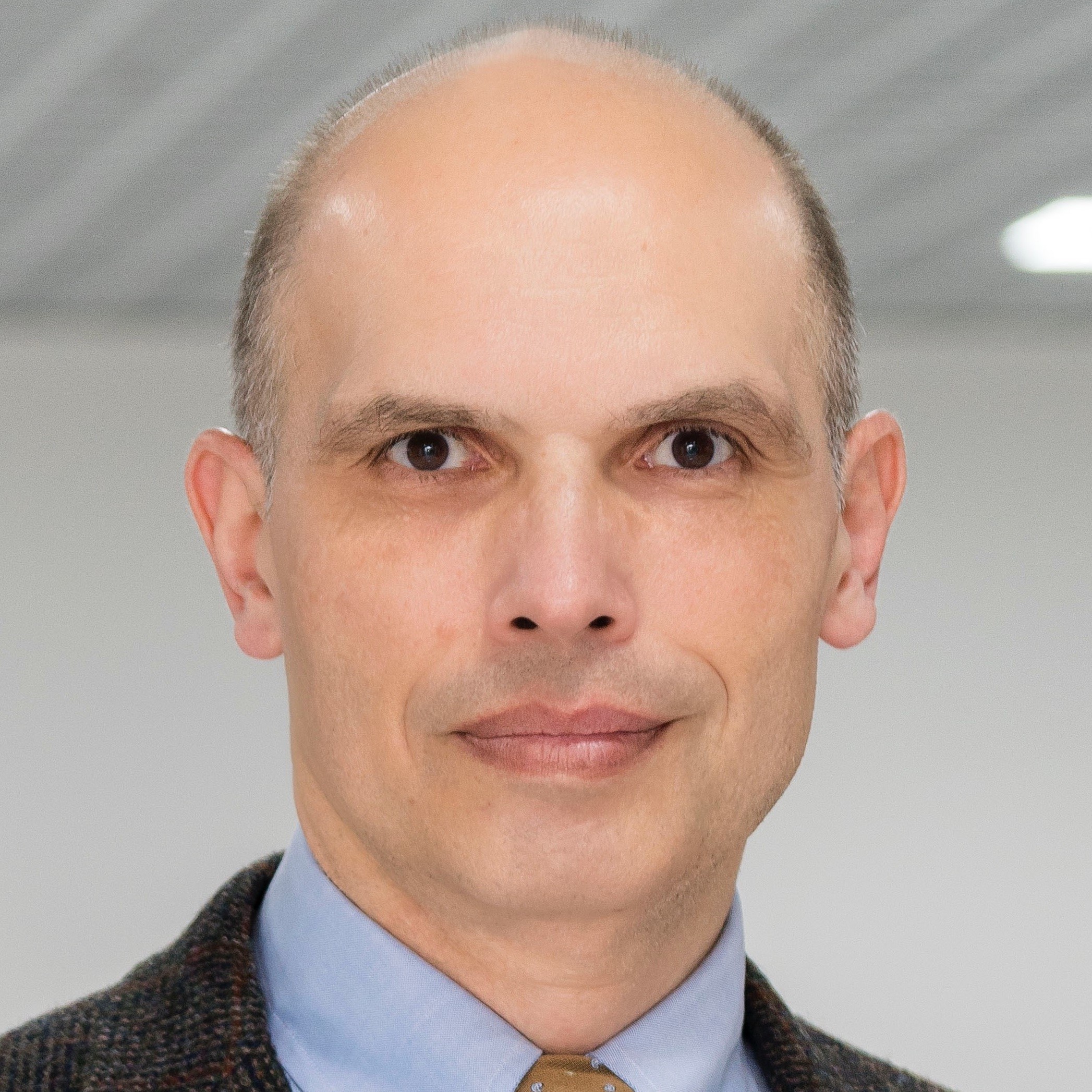
Hakan S. Orer
Koç University School of Medicine, İstanbul, Turkey
Hakan S. Orer graduated from Hacettepe University Medical School (Ankara, Turkey) in 1986. As a recipient of the French Government scholarship, he conducted his Ph.D. thesis under the supervision of Drs. R. Laguzzi and M. Hamon, at INSERM U 288 (Paris, France), received a Ph.D. in pharmacology in 1992 from Hacettepe University. In 1993-95, he worked as a post-doc in the laboratory of Dr. G.L. Gebber at Michigan State University. Dr. Orer started working at Hacettepe University Medical School after returning to Turkey in 1995 and served as the director of graduate studies in health sciences at the same University from 2003 to 2012. He is currently a professor at the Department of Pharmacology and the chair of the All-University Ethics Committees at Koç University, Istanbul. Dr. Orer is a member of the UNESCO International Bioethics Committee (IBC) since 2016. He is also a member of the executive board of the Organisation for the Ph.D. Education in Health Sciences in the European System (ORPHEUS) and serves as a special consultant for the Labelling Board. Dr. Orer was elected the Science Academy (Turkey) president in 2024. He is also a member of the Turkish Pharmacological Society and the American Physiological Society. His main research interests are central autonomic control, peripheral neuropathies and inflammation, animal disease models, early-phase clinical trials, bioethics, and pharmacotherapy education. He has also served as an expert and member of several committees and boards of the TUBITAK and the Ministry of Health.
Unlocking your research potential: How mentorship, leadership and support can shape a bright career path

Cecilia Arraiano
Universidade Nova de Lisboa, Lisbon, Portugal
Cecilia Maria Arraiano graduated in Biology at the University of Lisbon and later she was a Fulbright Hays fellow and obtained her PhD in Genetics from the University of Georgia, USA. She is Coordinating Investigator (Full Professor equivalent) at Instituto de Tecnologia Química e Biológica António Xavier/Universidade NOVA de Lisboa, where she directs the Control of Gene Expression Laboratory. She was member of General Council of this University and President of the Portuguese Genetics Society. The main research area of Cecília M. Arraiano laboratory is to elucidate factors determinant for the control of gene expression. They have studied ribonucleases and their role in maturation, degradation, and quality control of RNA. They also characterized RNA chaperones, and small non-coding RNAs in the post-transcriptional control of gene expression. They also focus on microbial virulence, stress and survival, and the use of synthetic biology to reprogram bacteria for biotechnology use. Therefore, their work has many applications in Biotechnology and Health. Cecília M. Arraiano was the former Chair (2014-2022) of the FEBS Working Group on Women in Science, member of the FEBS Advanced Course Committee and member of the FEBS Executive Committee. She has many Awards of Excellence and Prizes for instance: she received the Prize Câmara Pestana /Glaxo Smith-Klein, she is an EMBO member, Fellow of the European Academy of Microbiology, Fellow of the American Academy of Microbiology, and member of the Portuguese Academy of Sciences. In 2023 she received the Diplôme d´Honneur from Federation of European Biochemistry Societies.
Roche Satellite Sypmosia Session
Exploring the Potential of Laboratories Together: A Laboratory Example
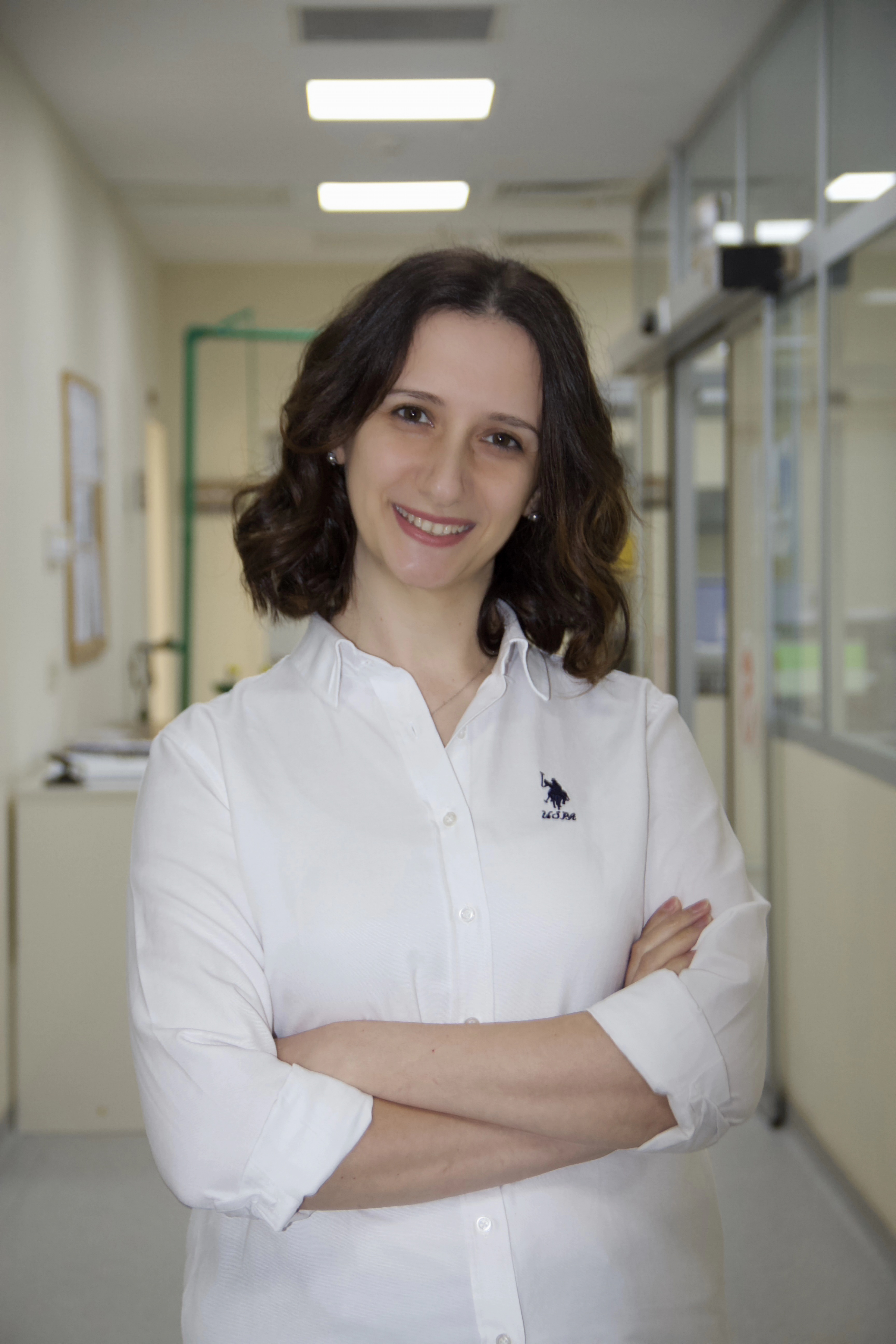
Havva Yasemin Çinpolat
Çanakkale Onsekiz Mart University Faculty of Medicine, Department of Medical Biochemistry, Çanakkale, Türkiye
Havva Yasemin Çinpolat, MD, EuSpLM, born in 1988 in İzmir, graduated from Trakya University Faculty of Medicine in 2012. Following her specialization at Abant İzzet Baysal University Faculty of Medicine in 2017, she served as a Medical Biochemistry Specialist in various state hospitals. Since 2020, she has been working as an Assistant Professor at Çanakkale Onsekiz Mart University Faculty of Medicine at Department of Medical Biochemistry. She has also been serving as the Medical Director of the Biochemistry Laboratory at the university hospital for the past five years.
Dr. Çinpolat is a member of the Turkish Biochemical Society (TBS) and the TBS Body Fluid Analysis Working Group. She has various national and international publications in the field of Medical Biochemistry. Her scientific interests include reference change values, quality control management, digitalization, laboratory information systems, implementation of autoverification algorithms, and data analysis.



